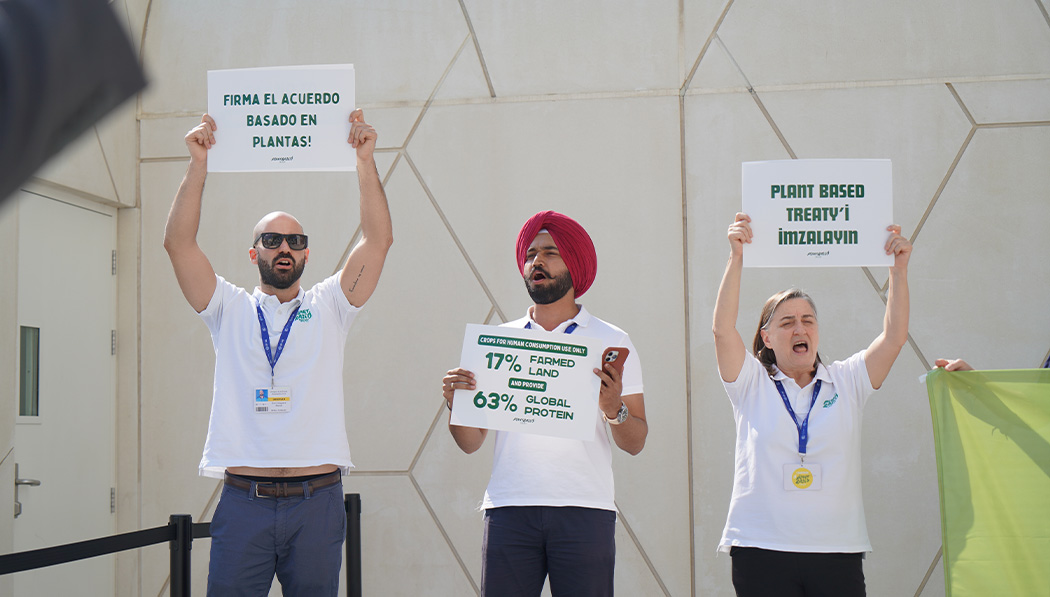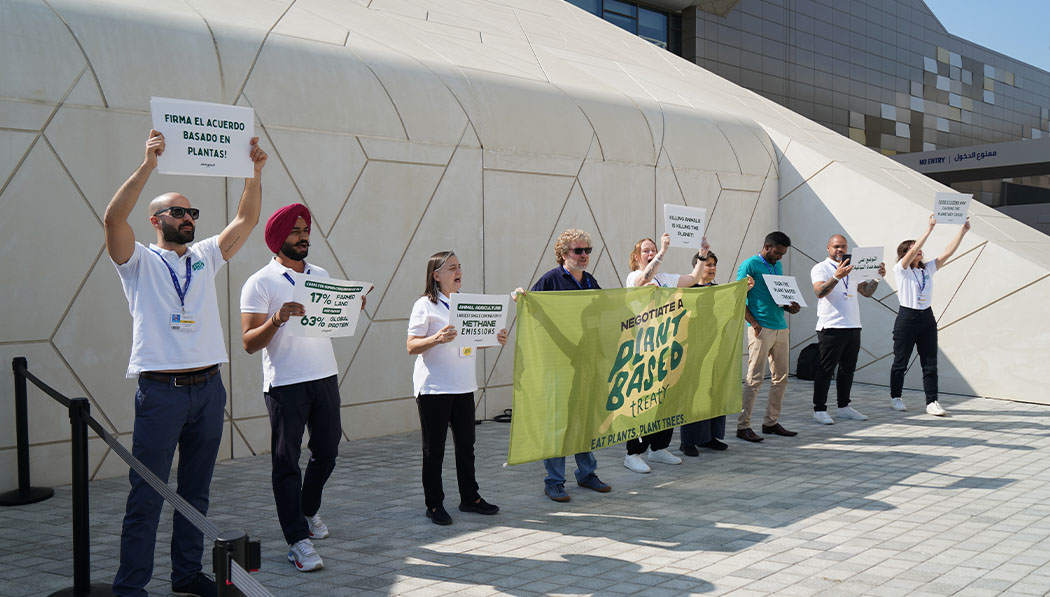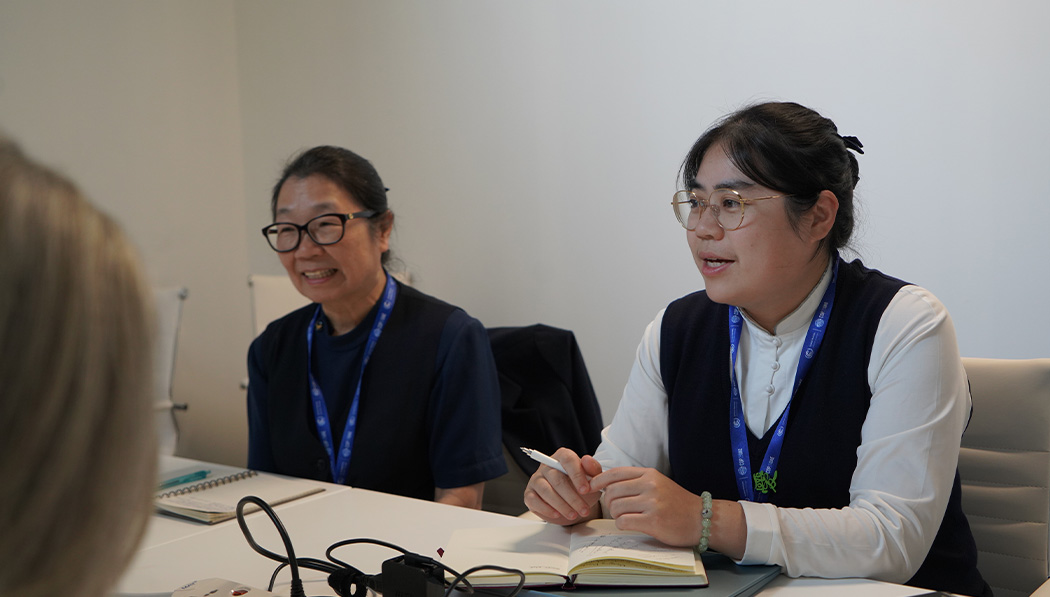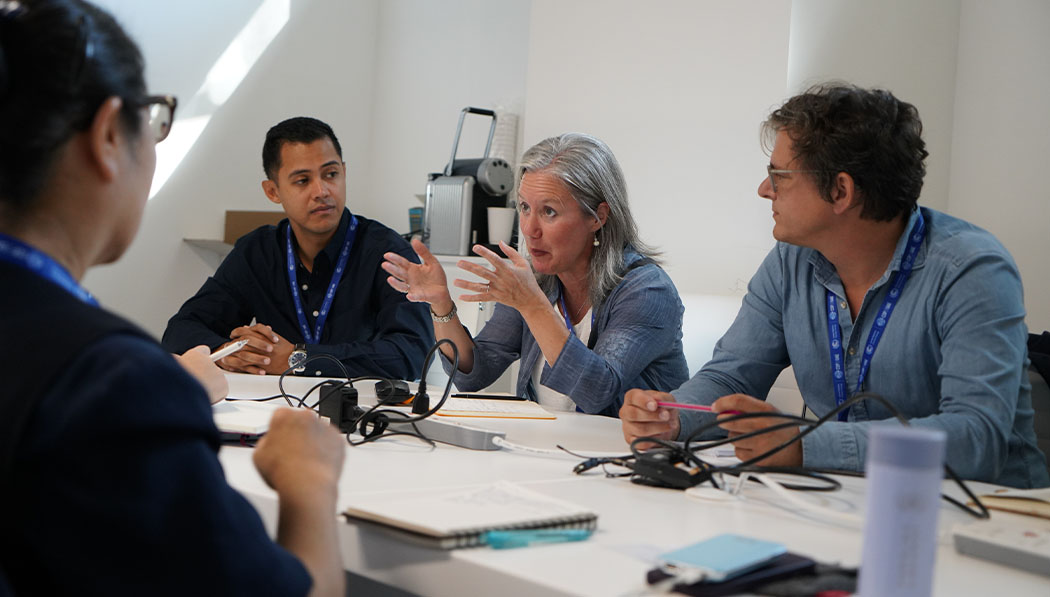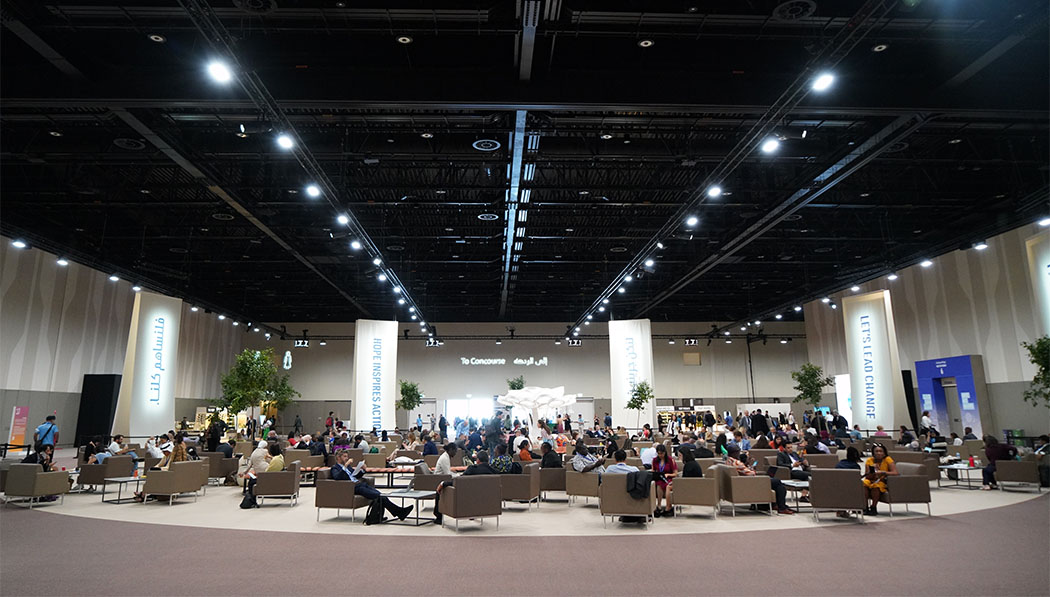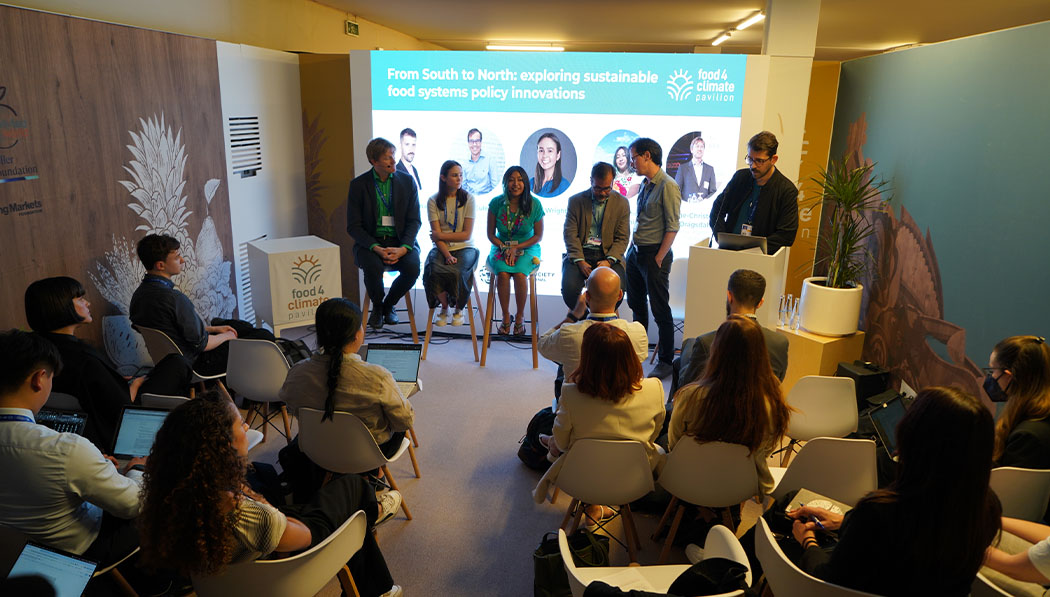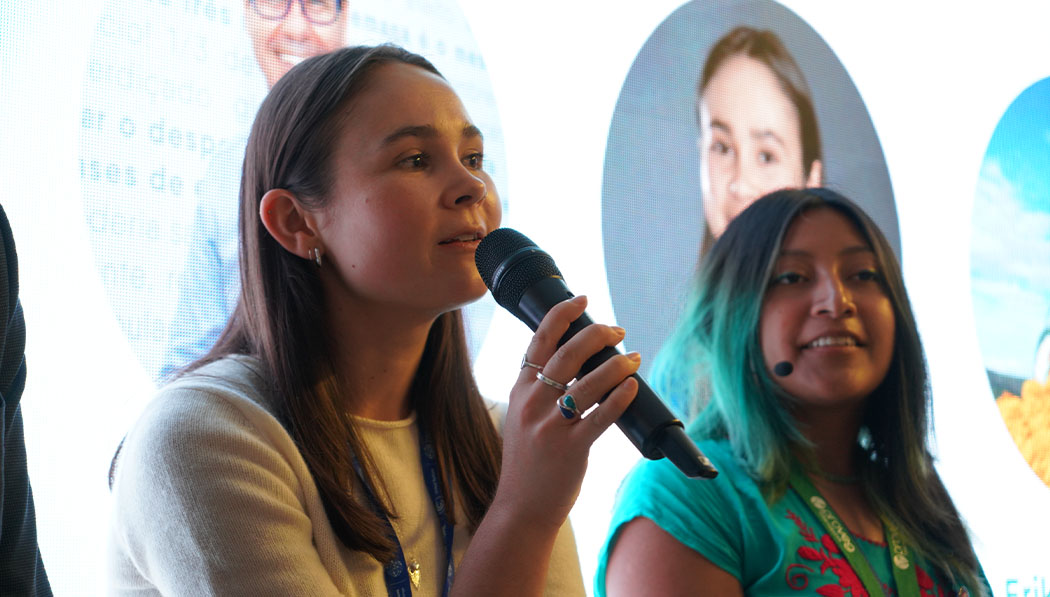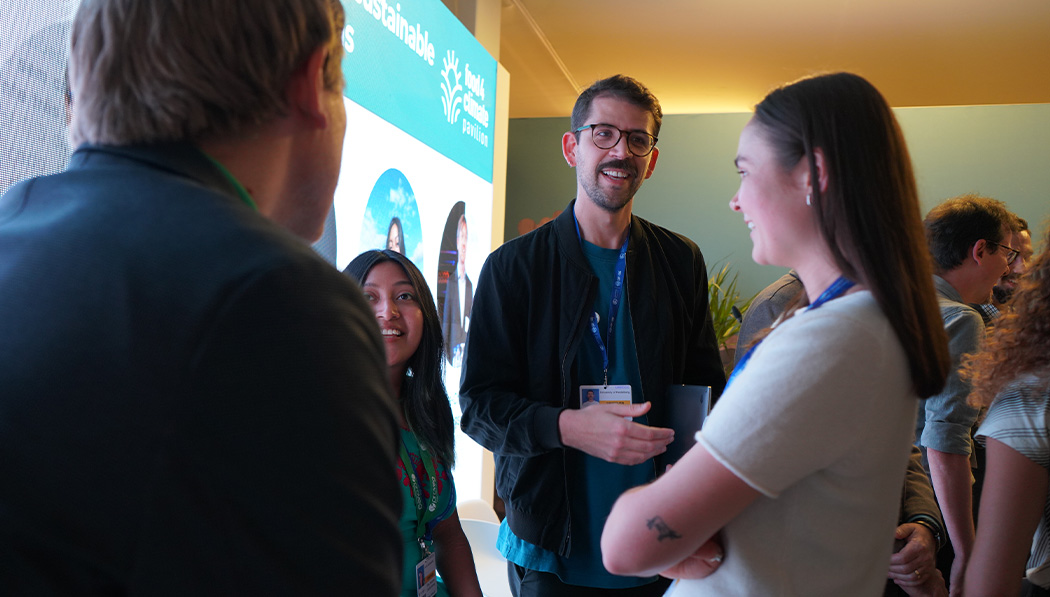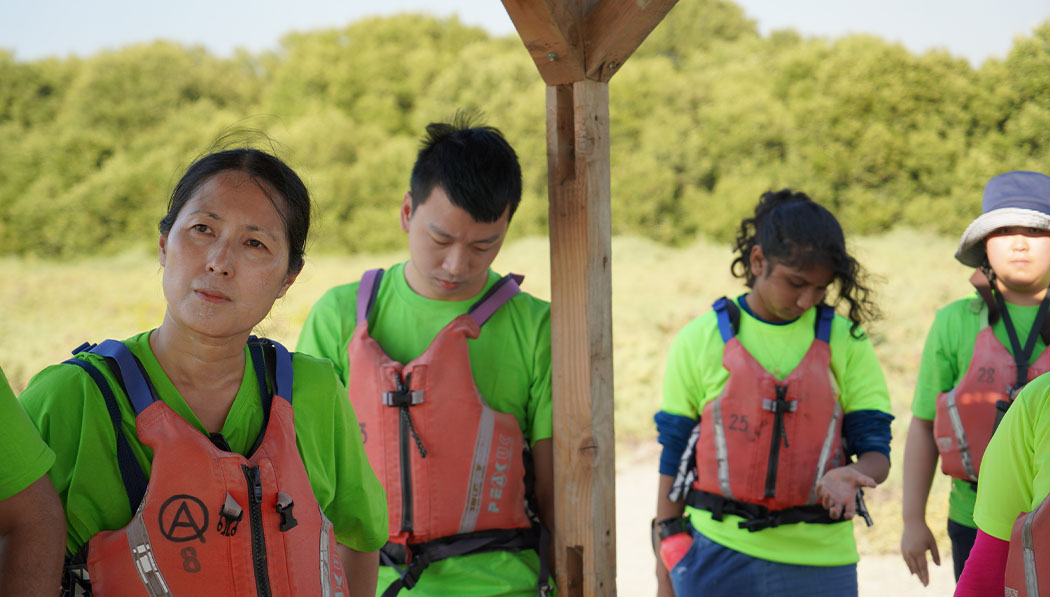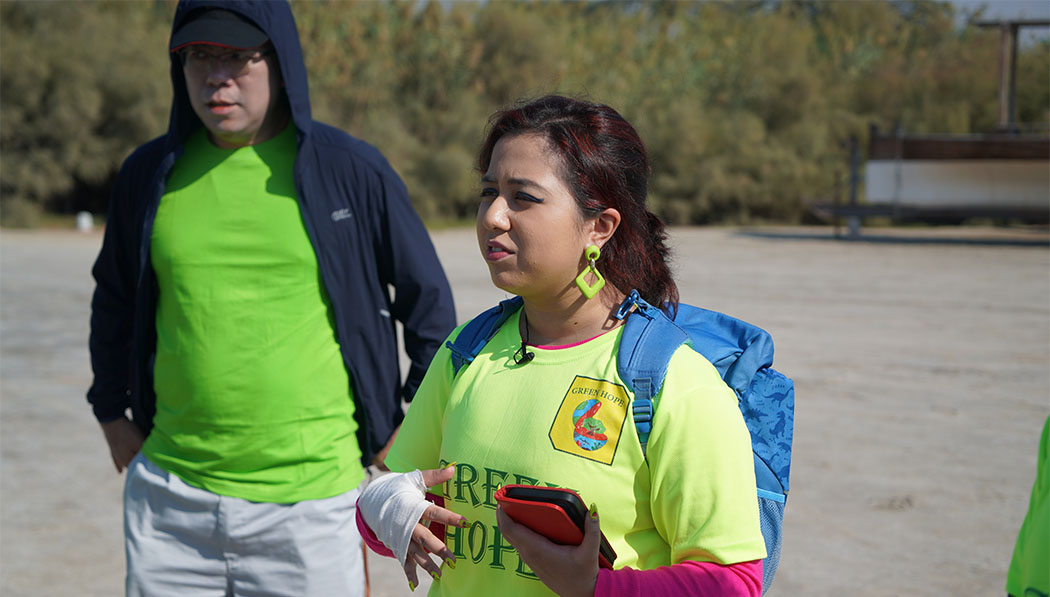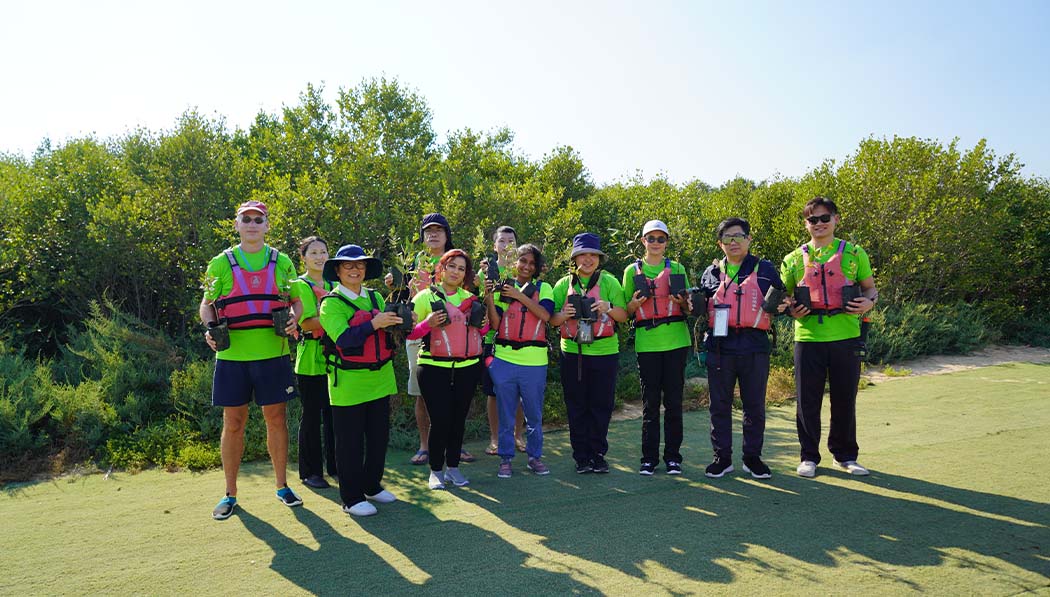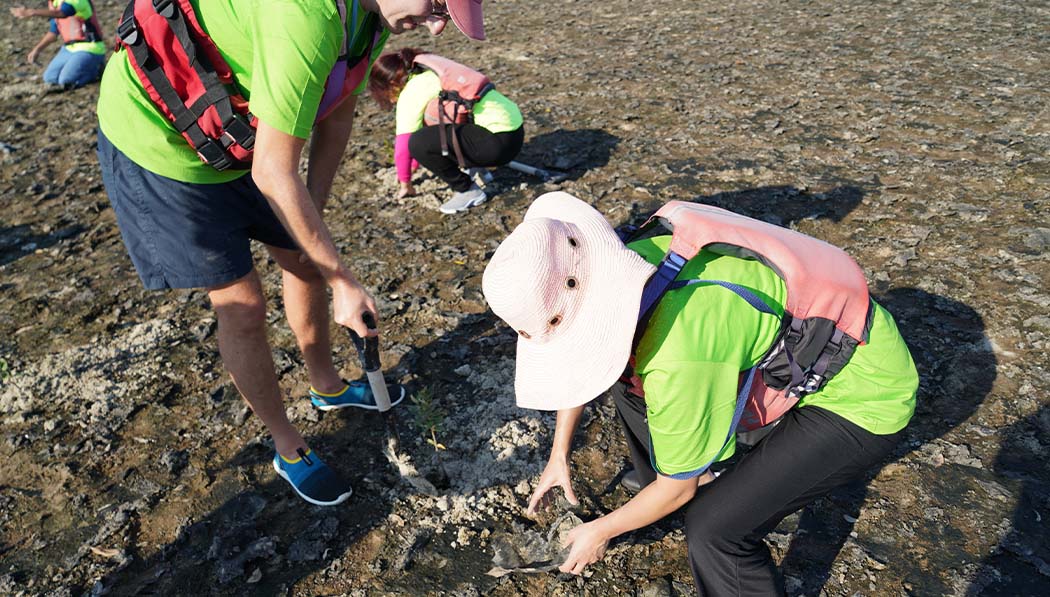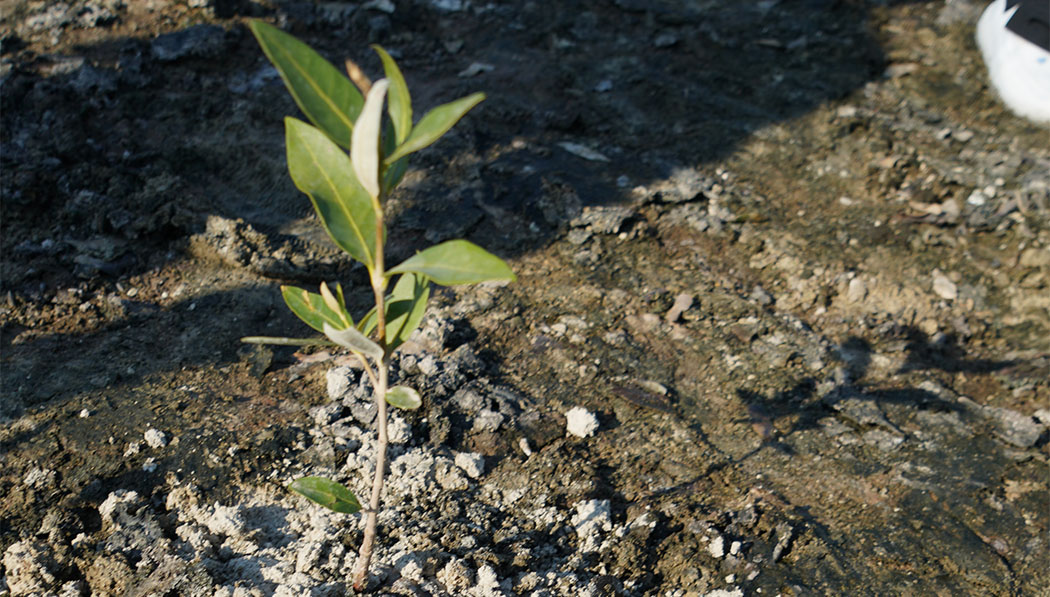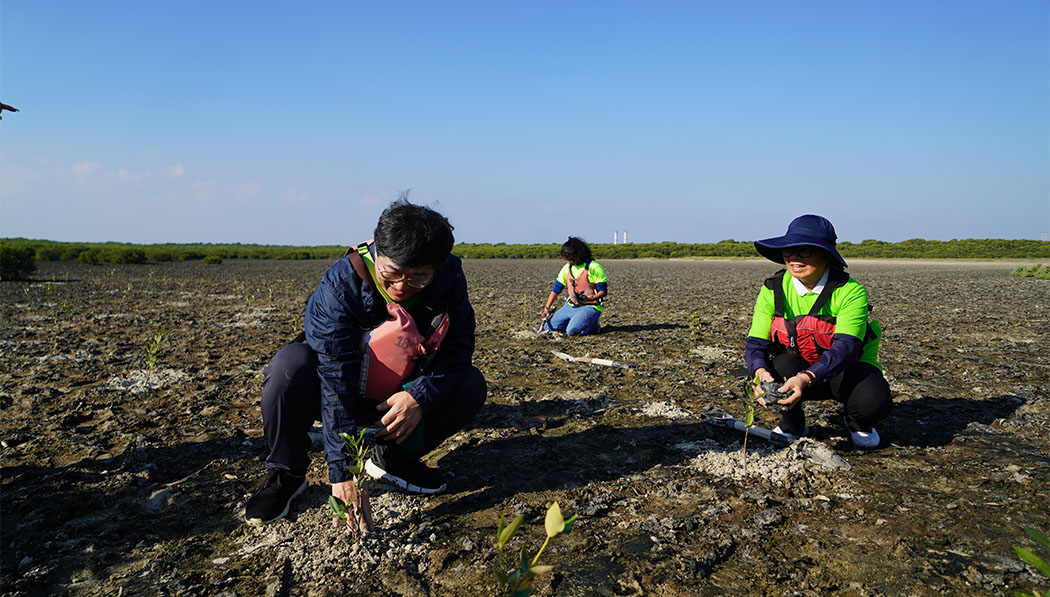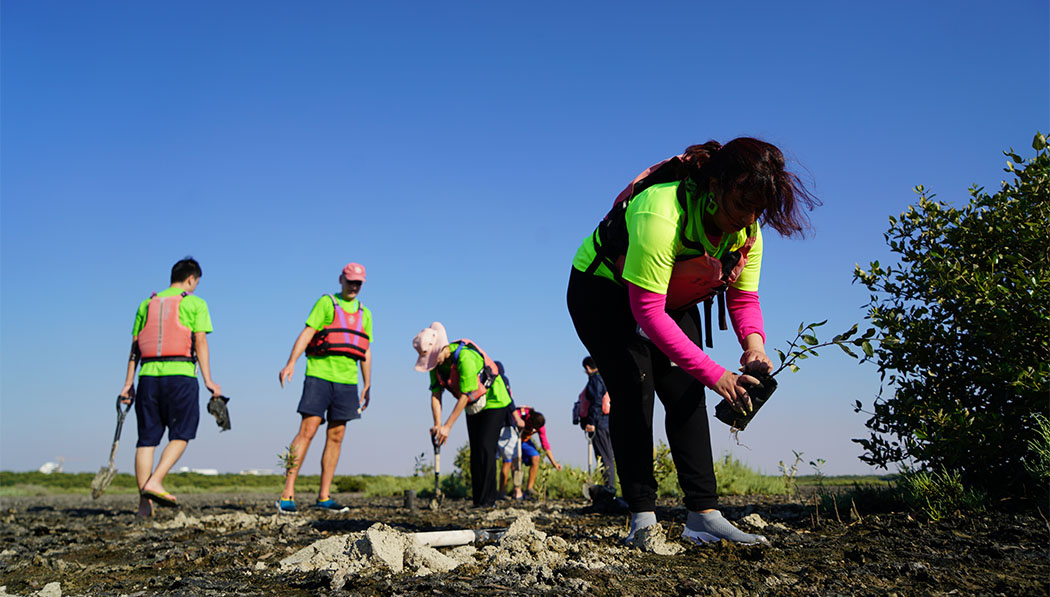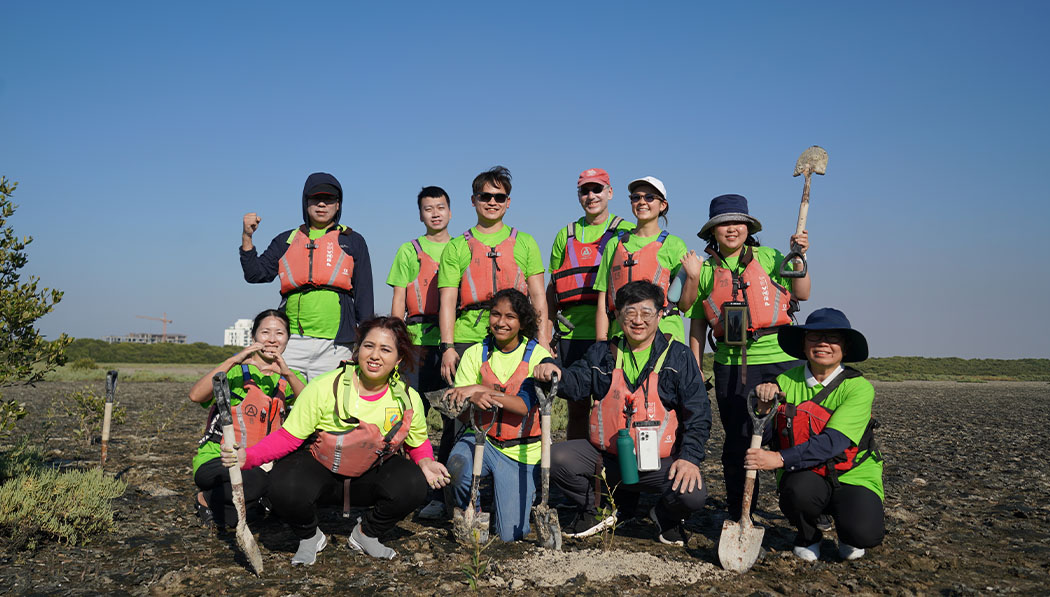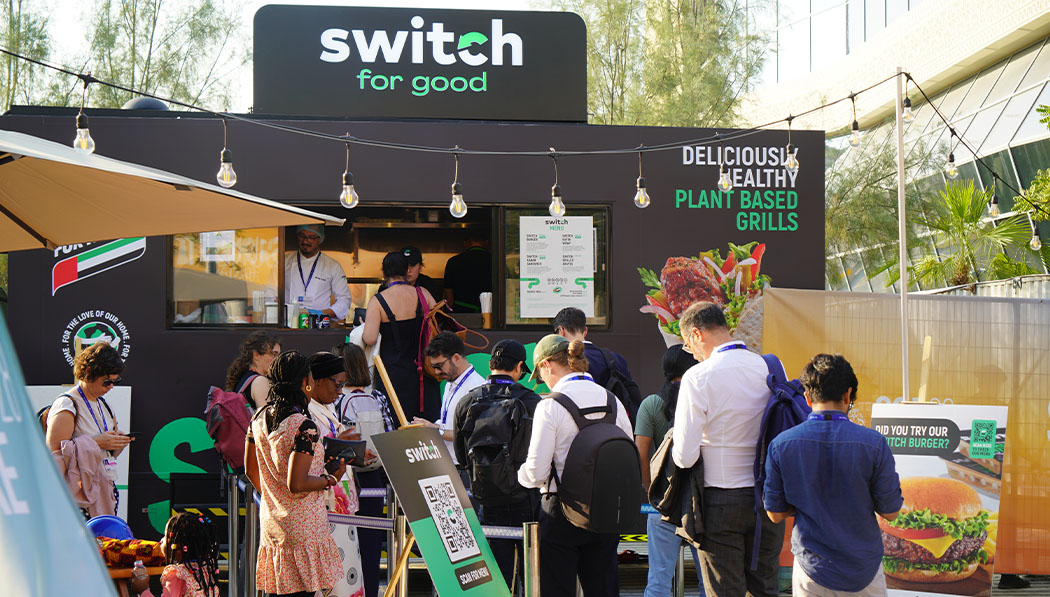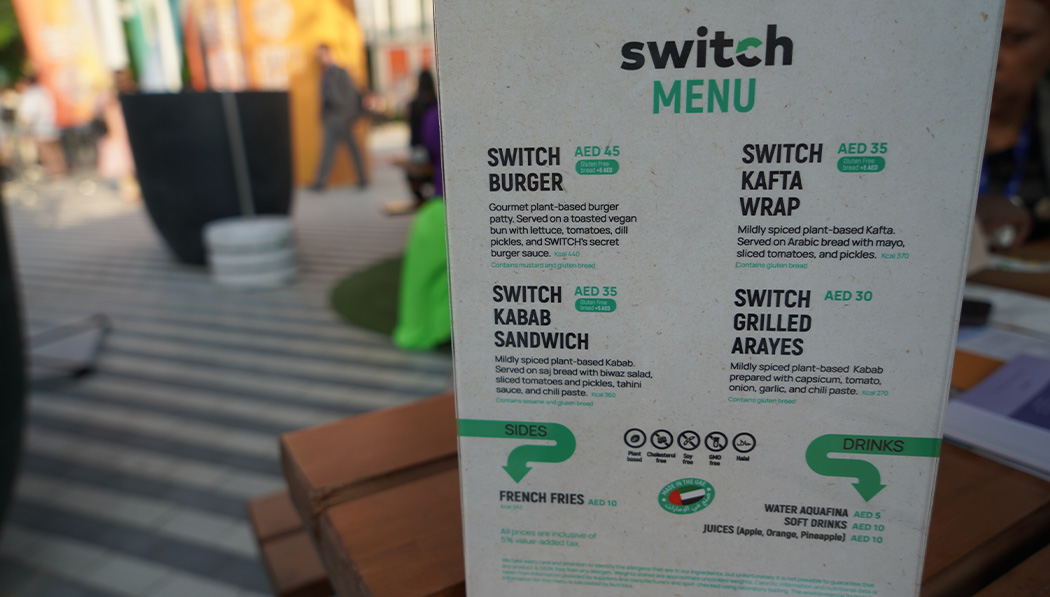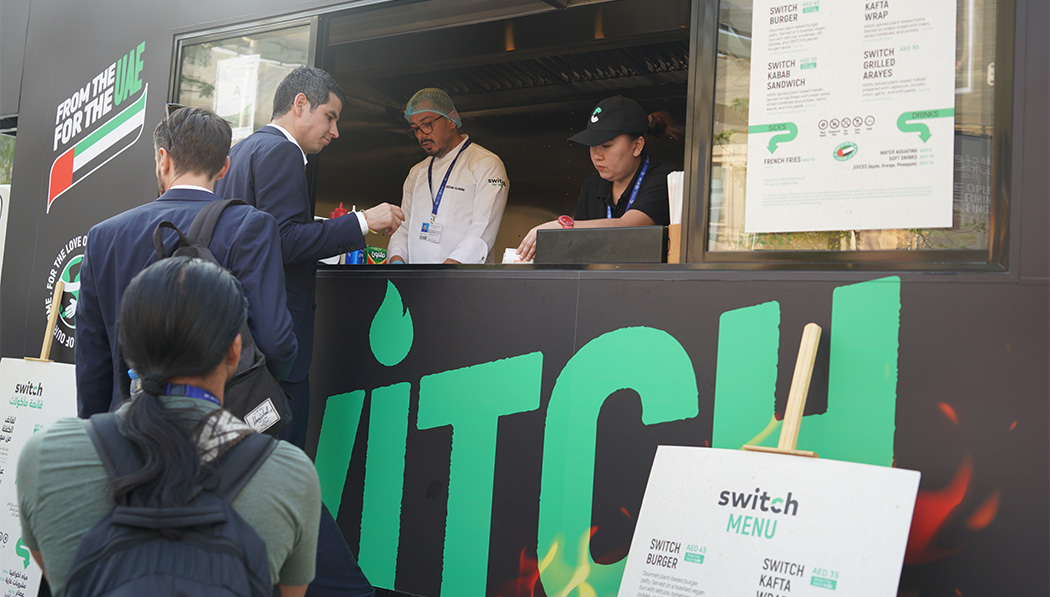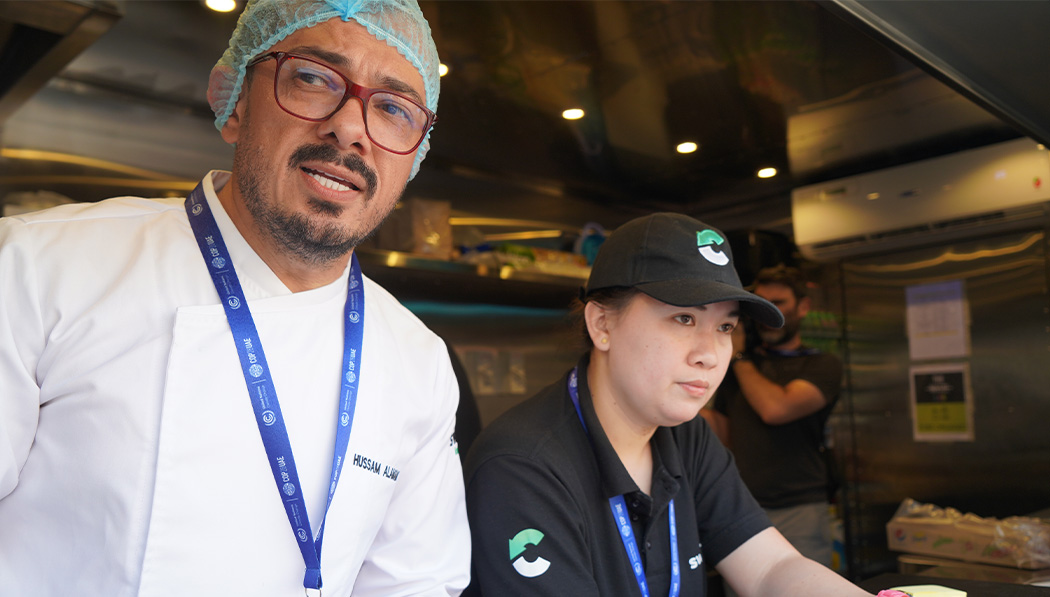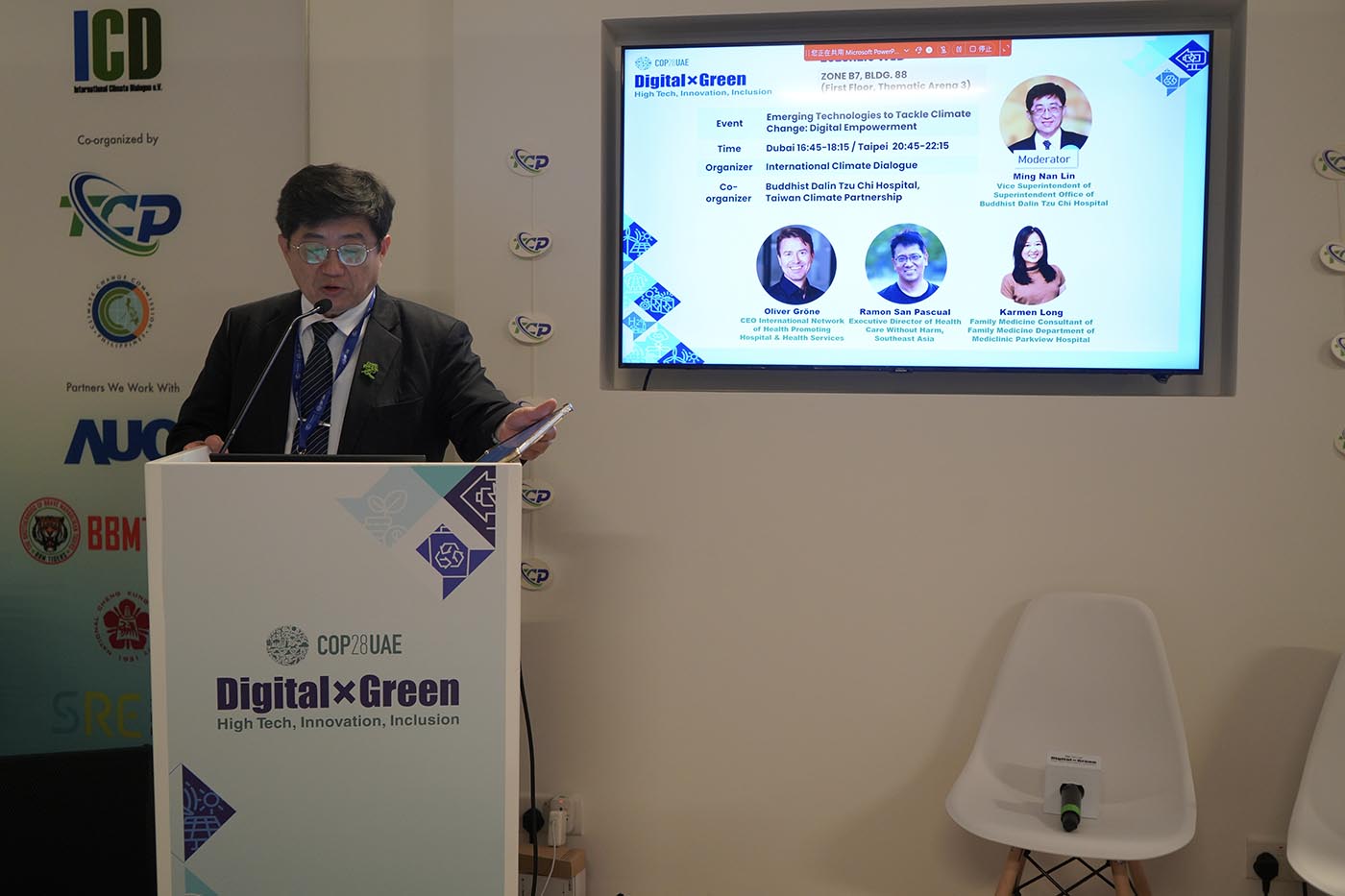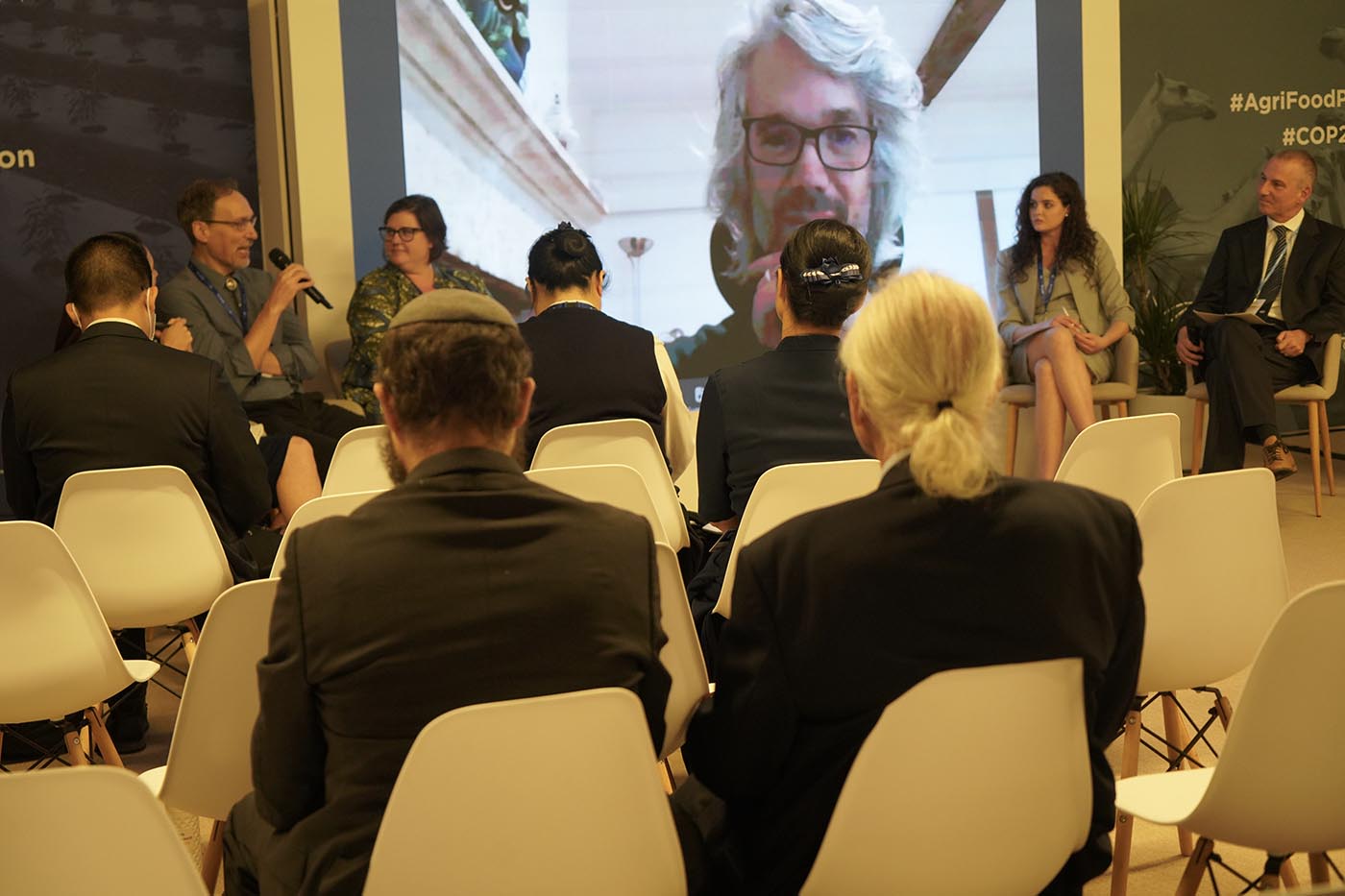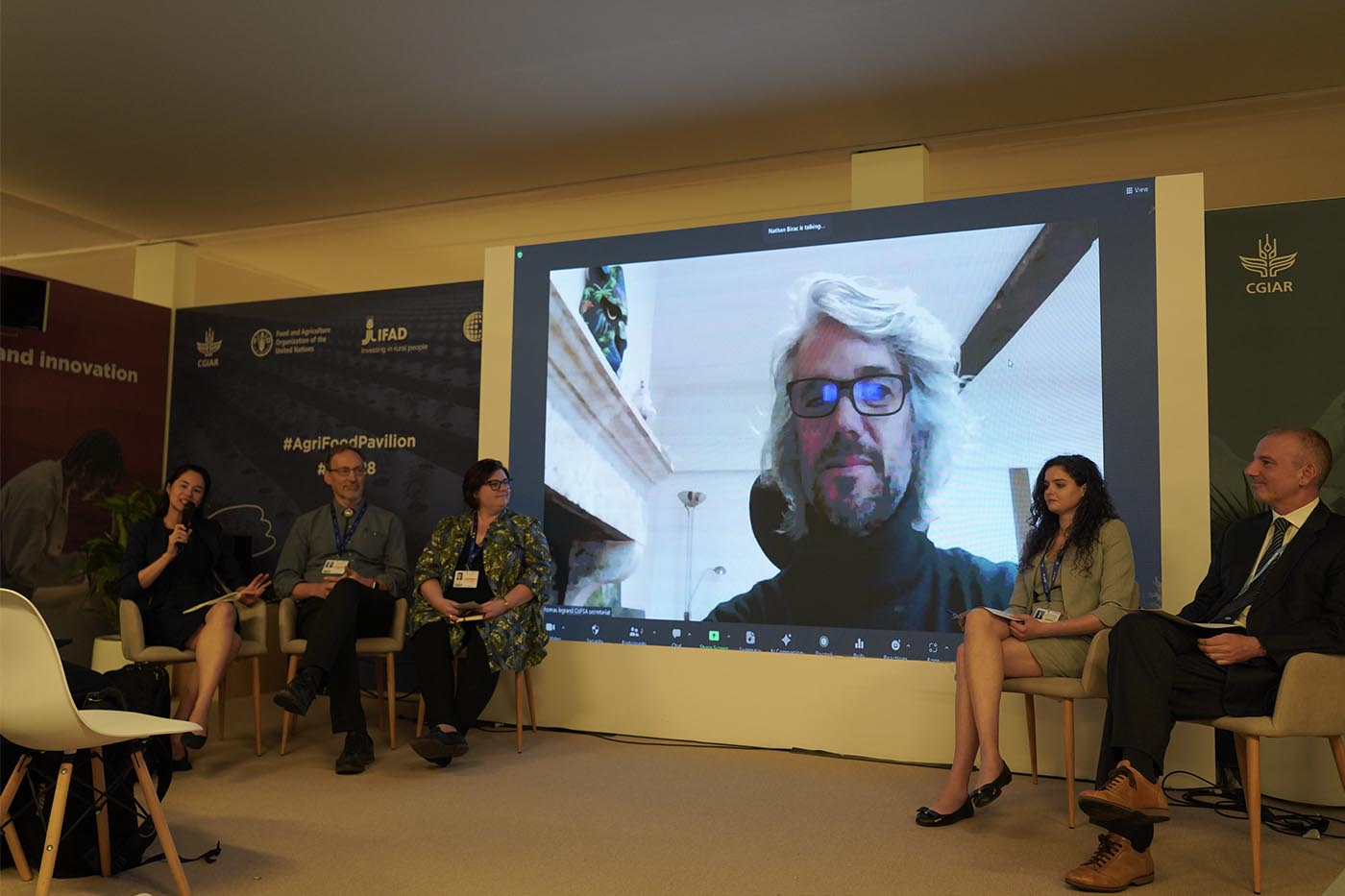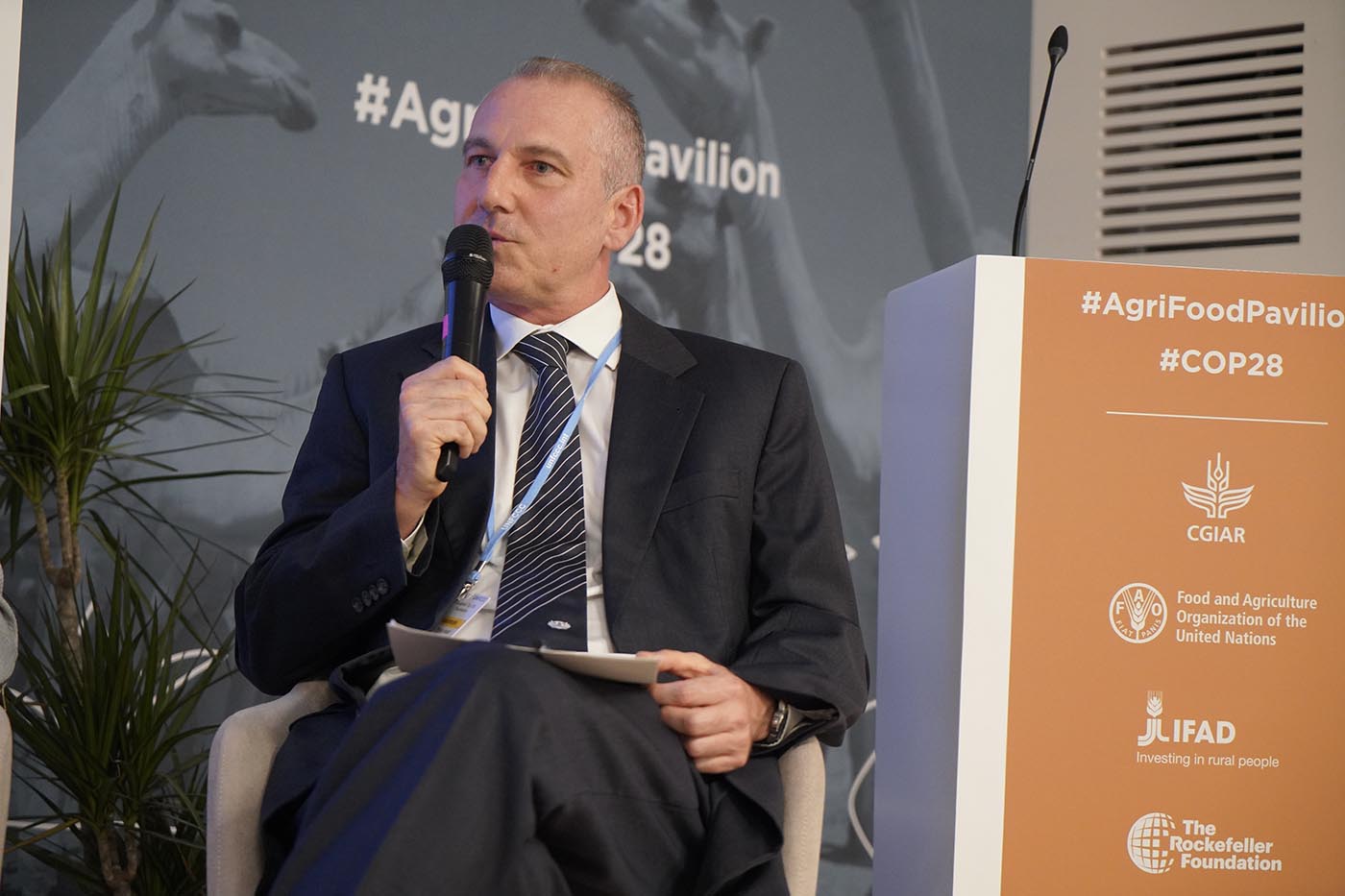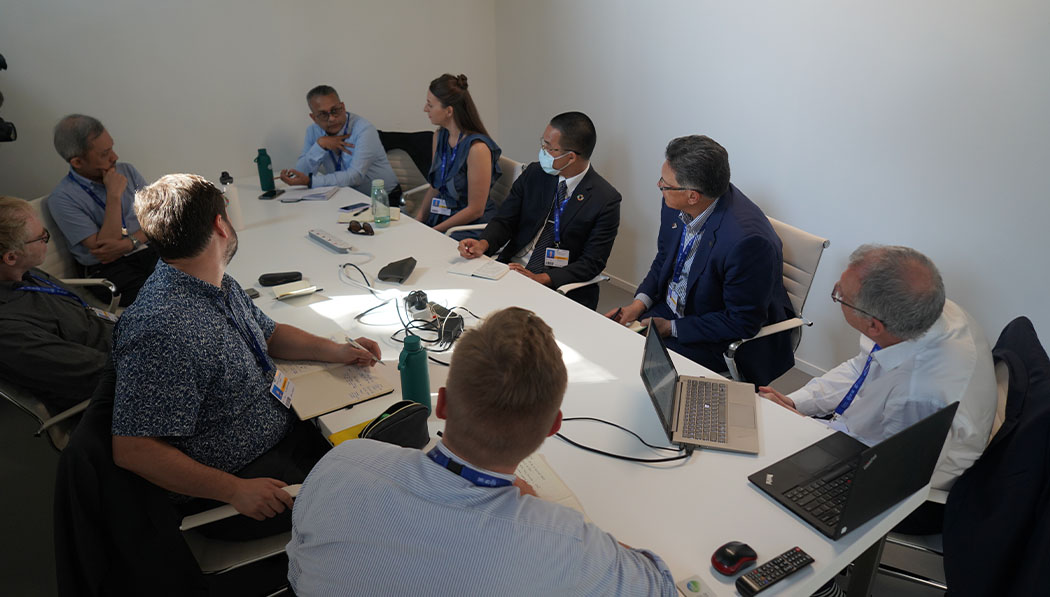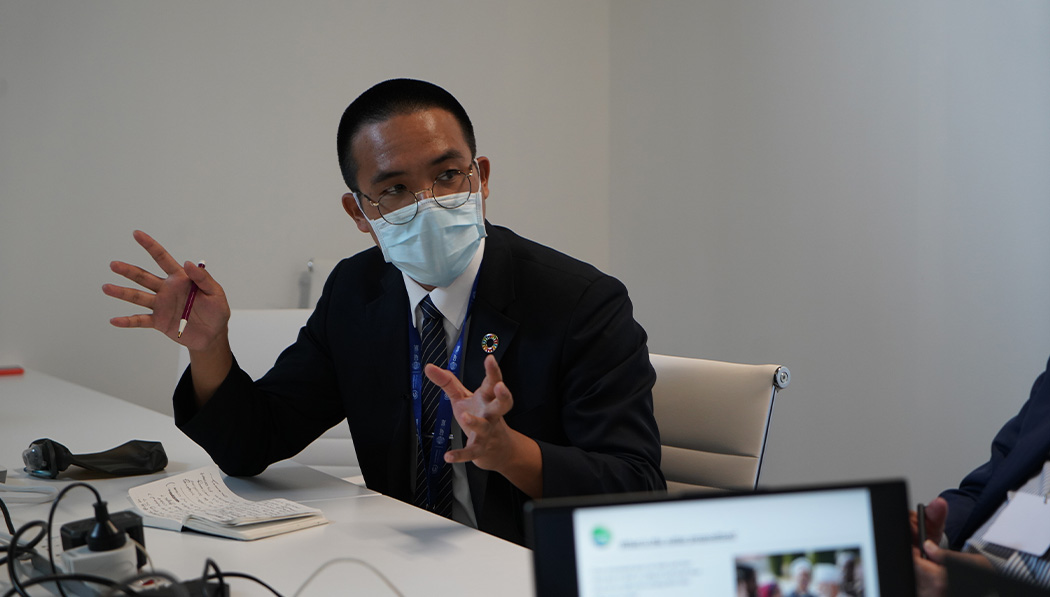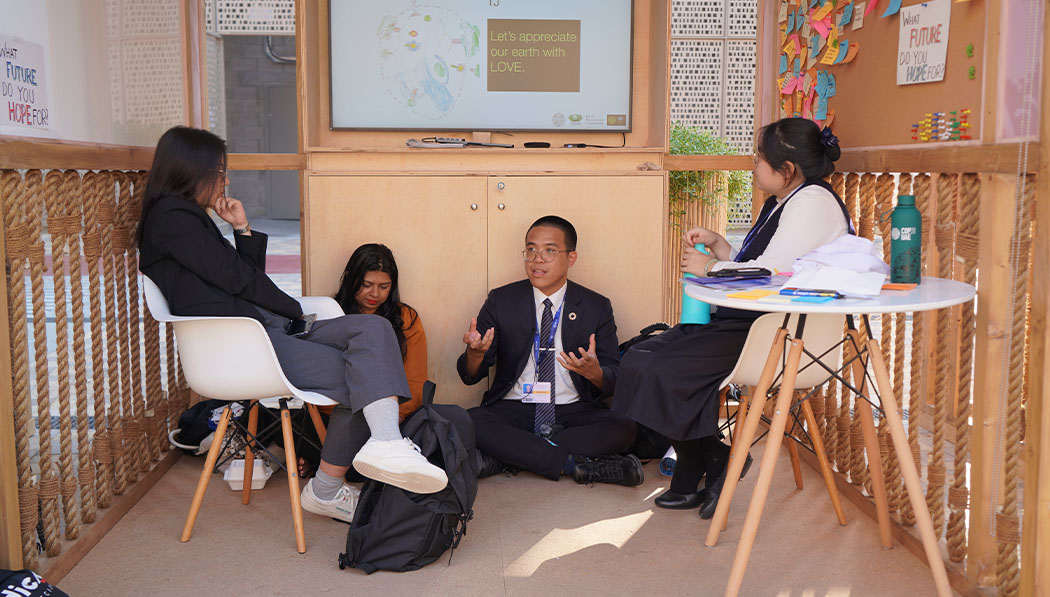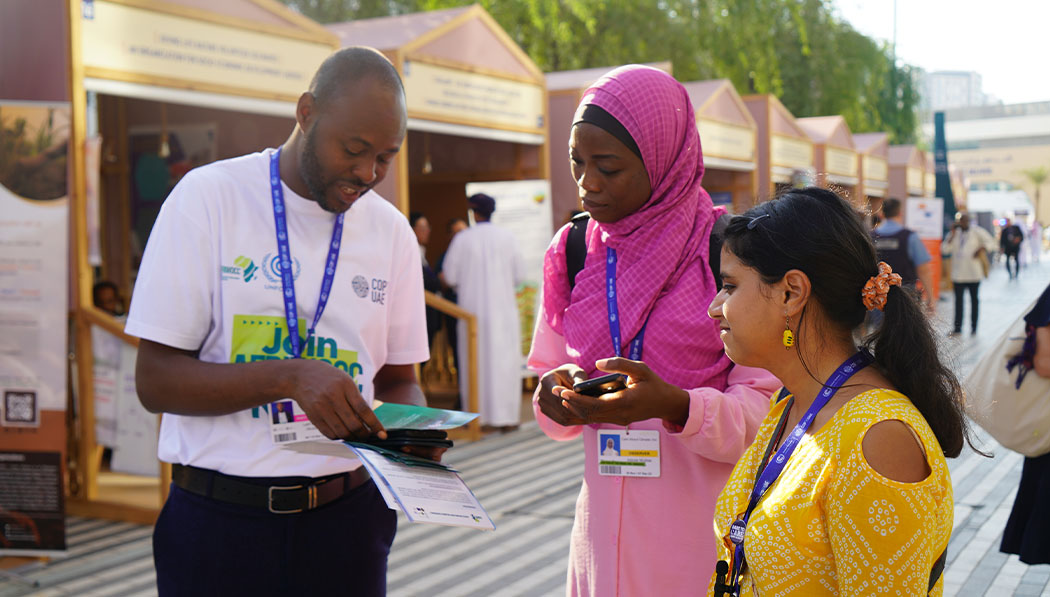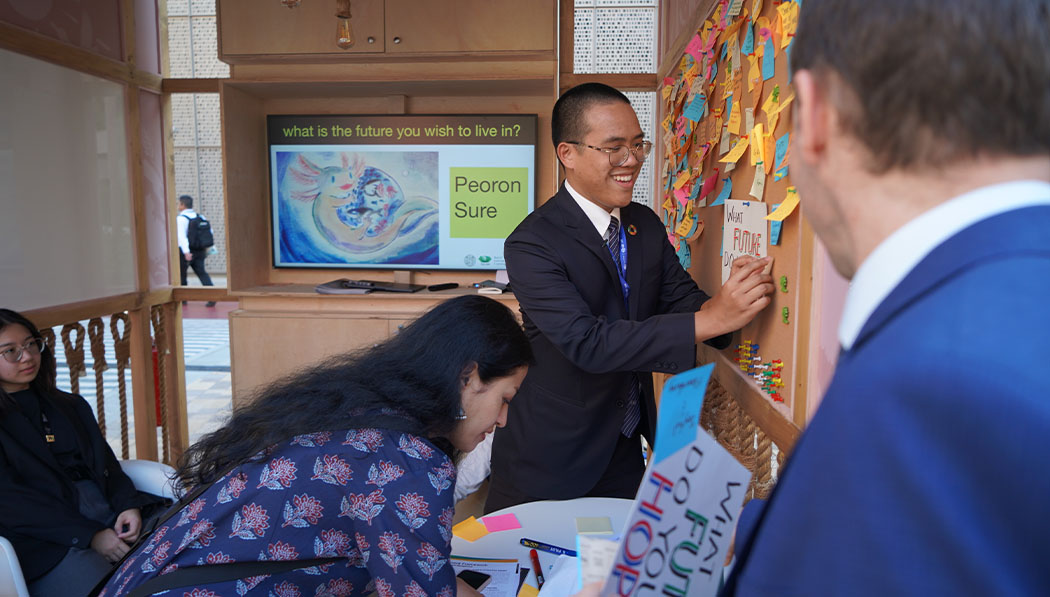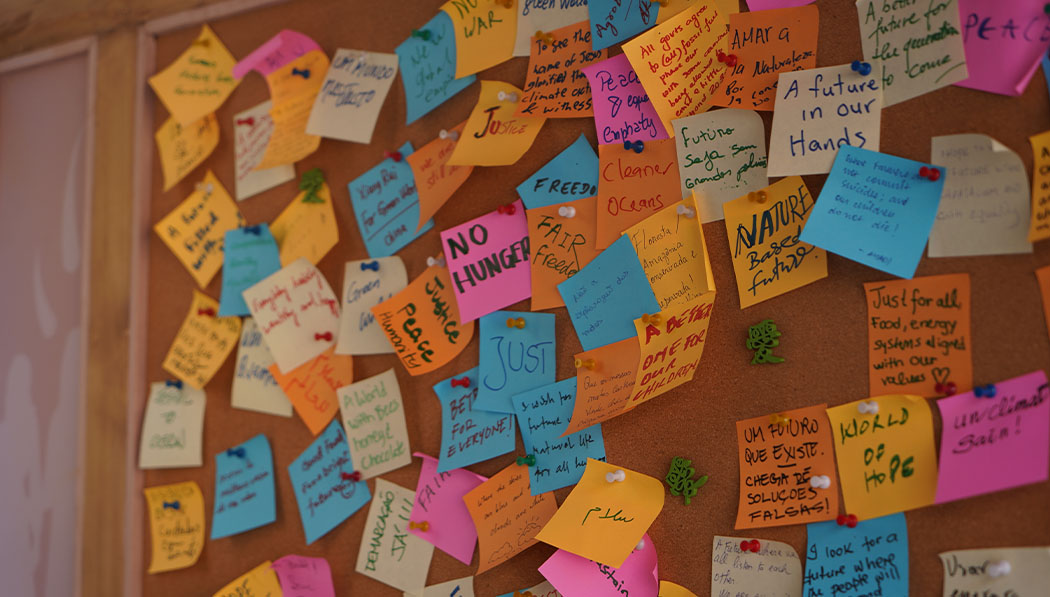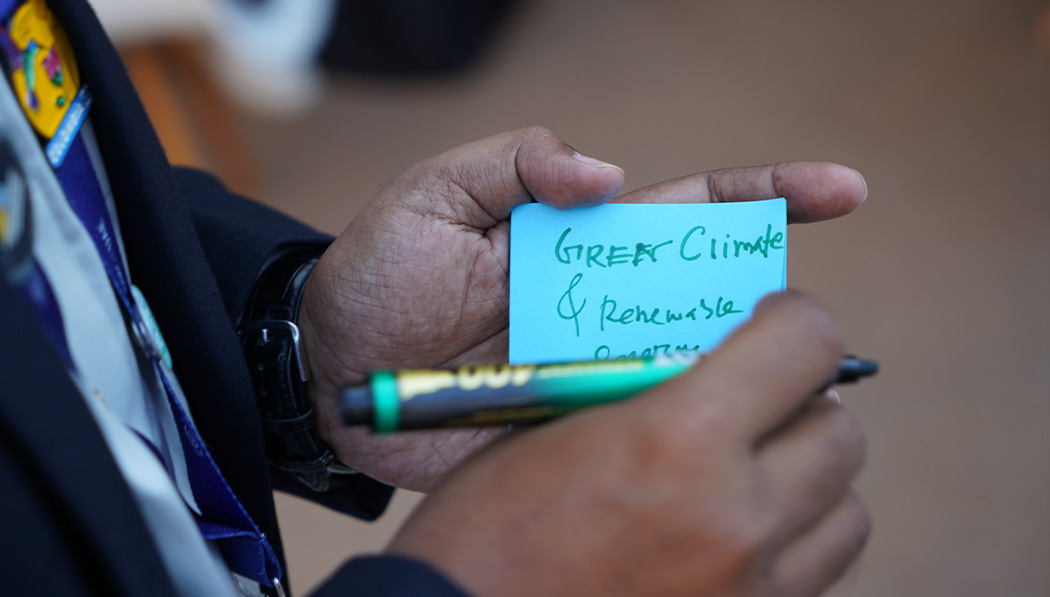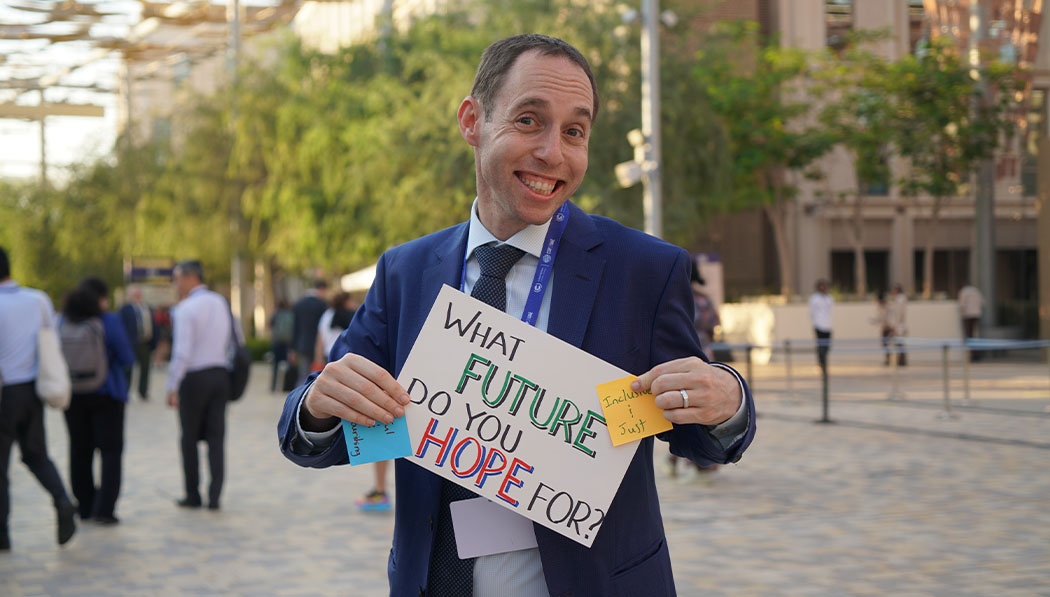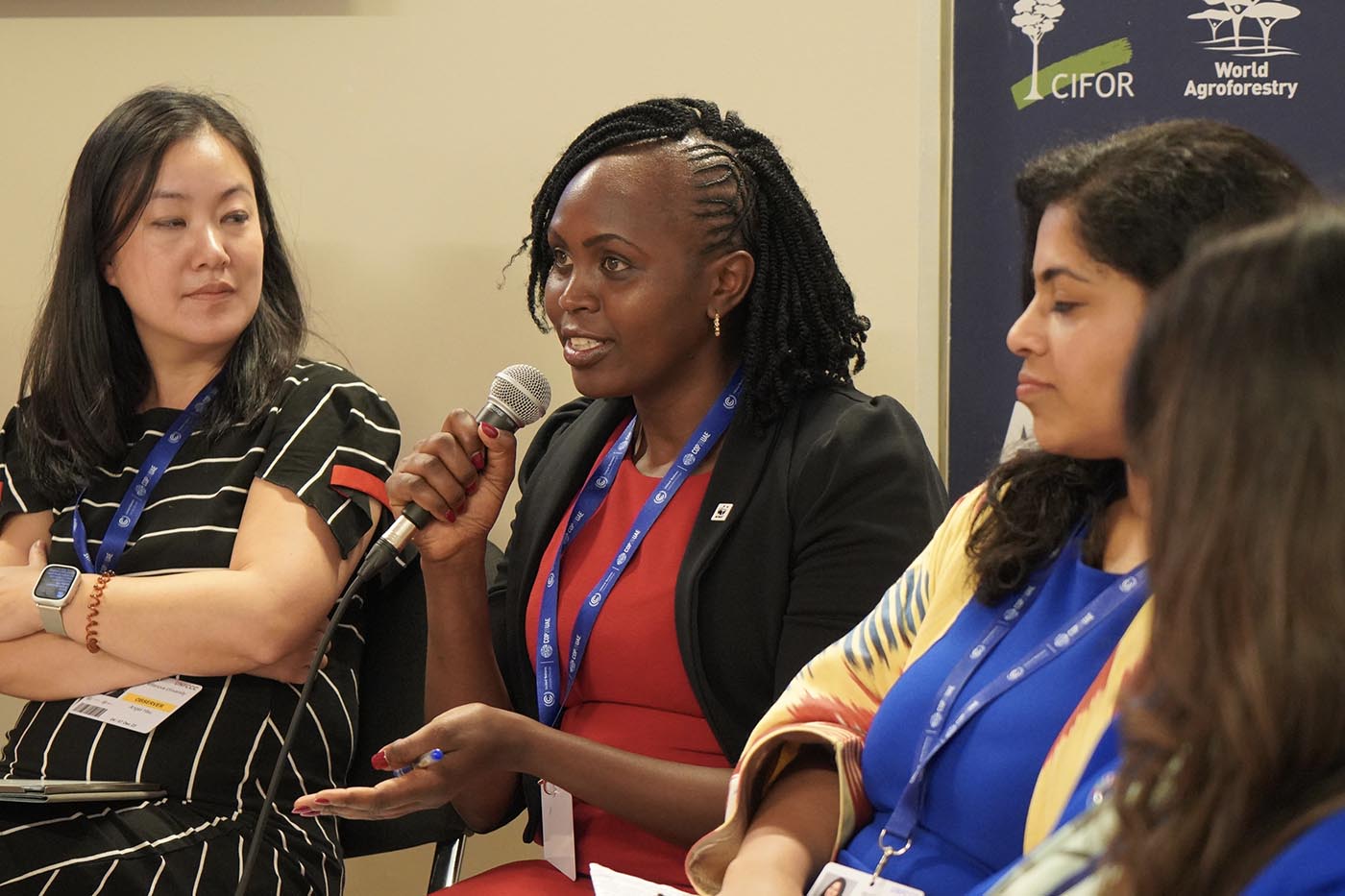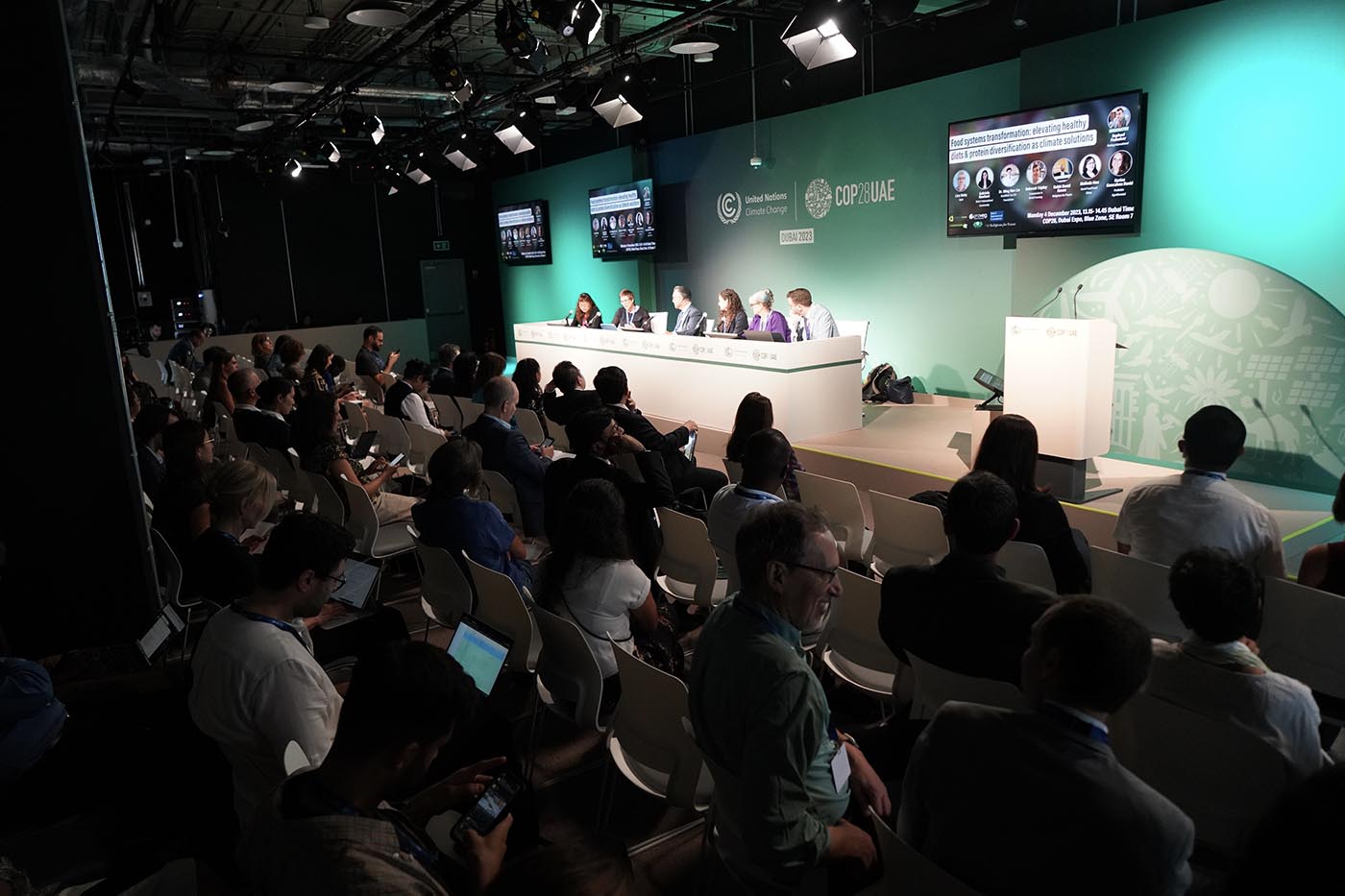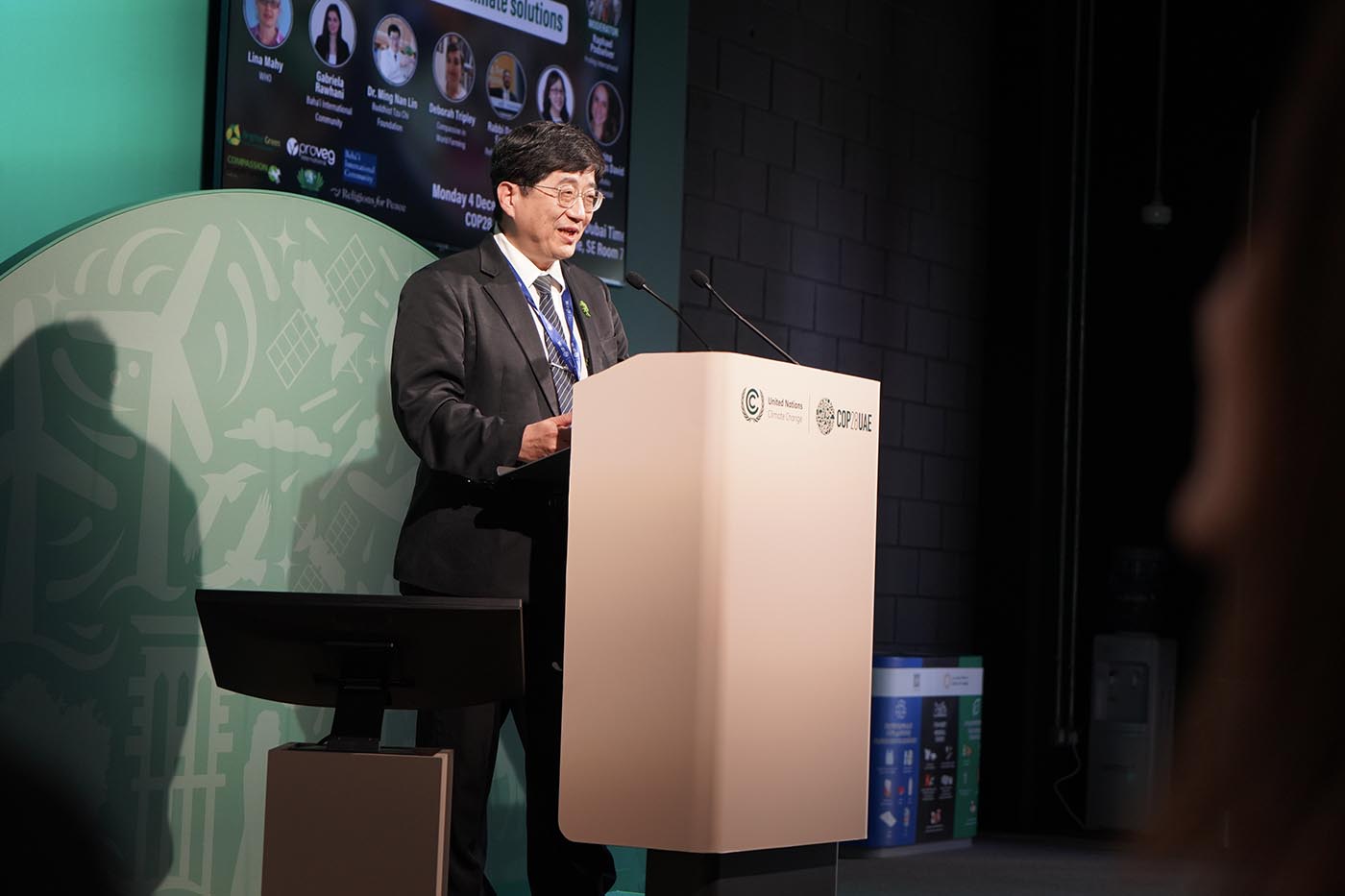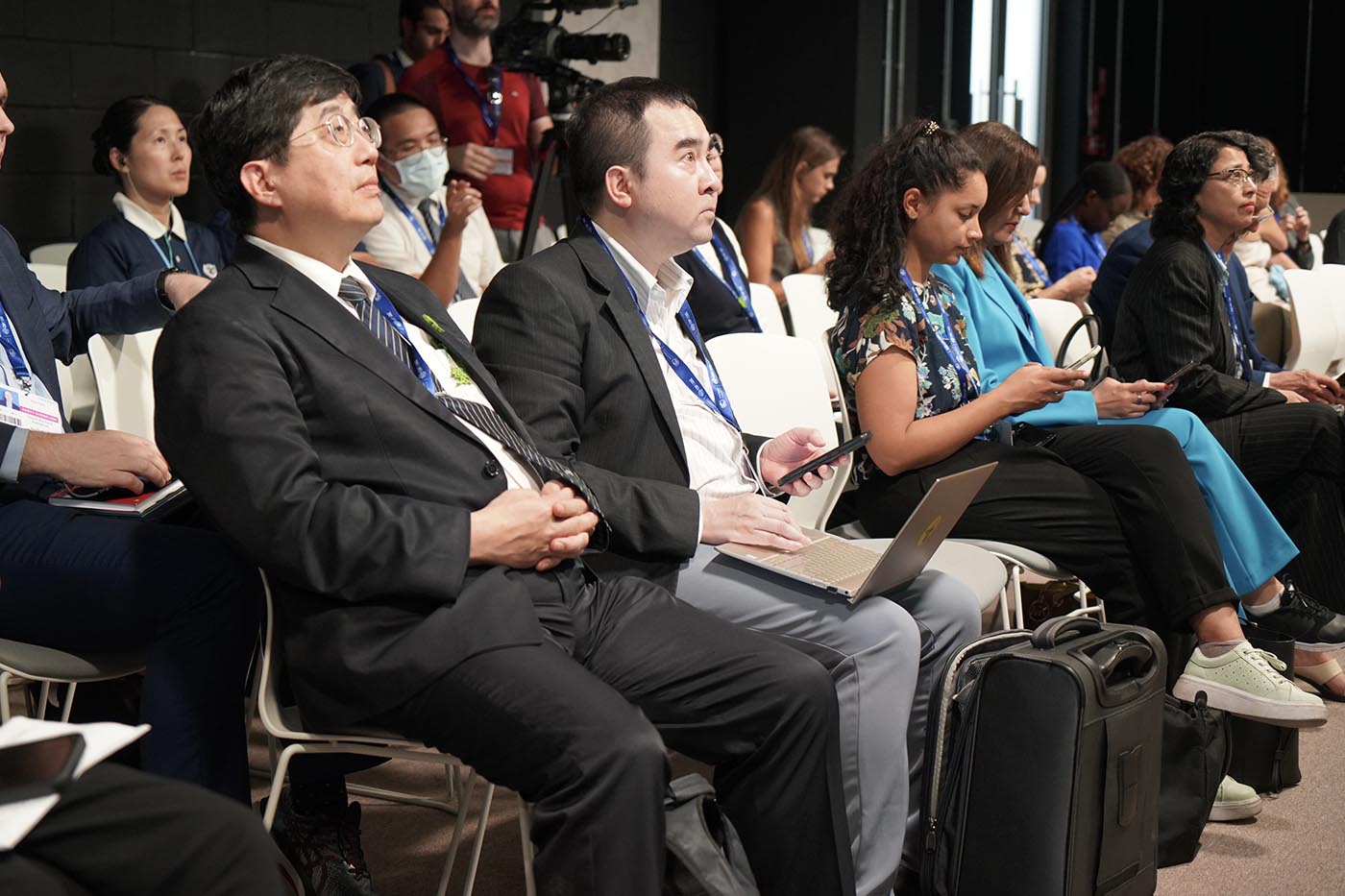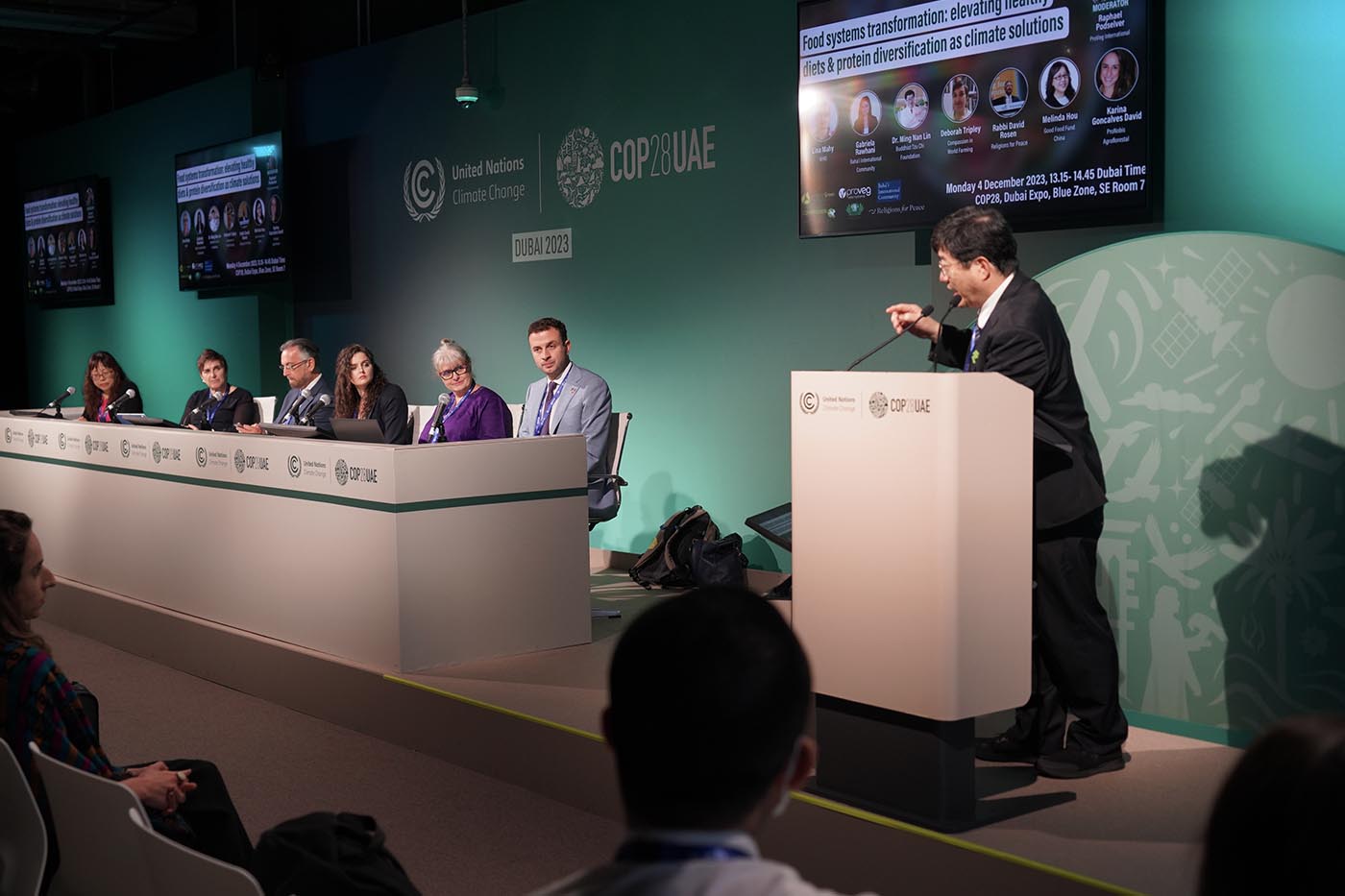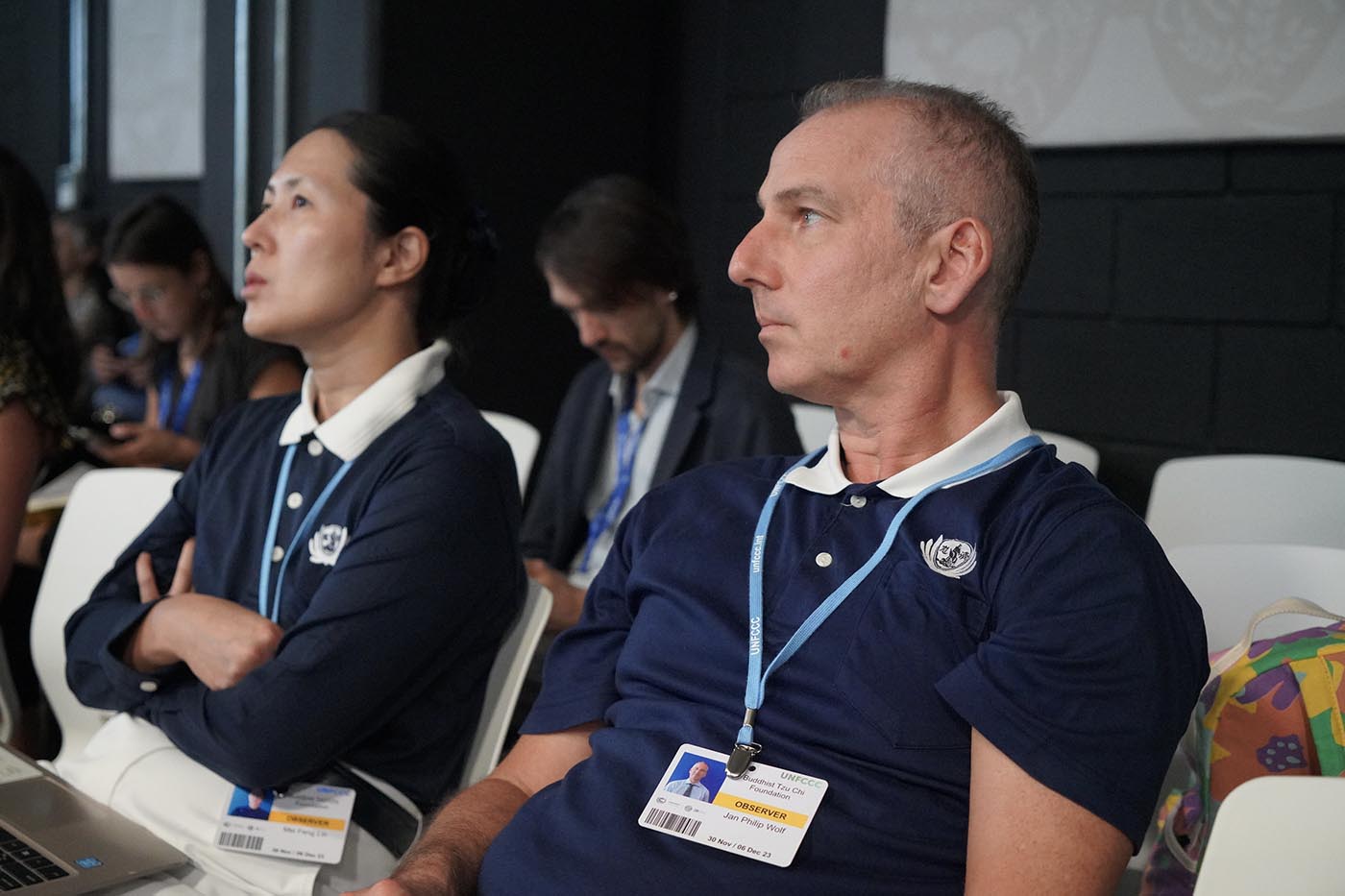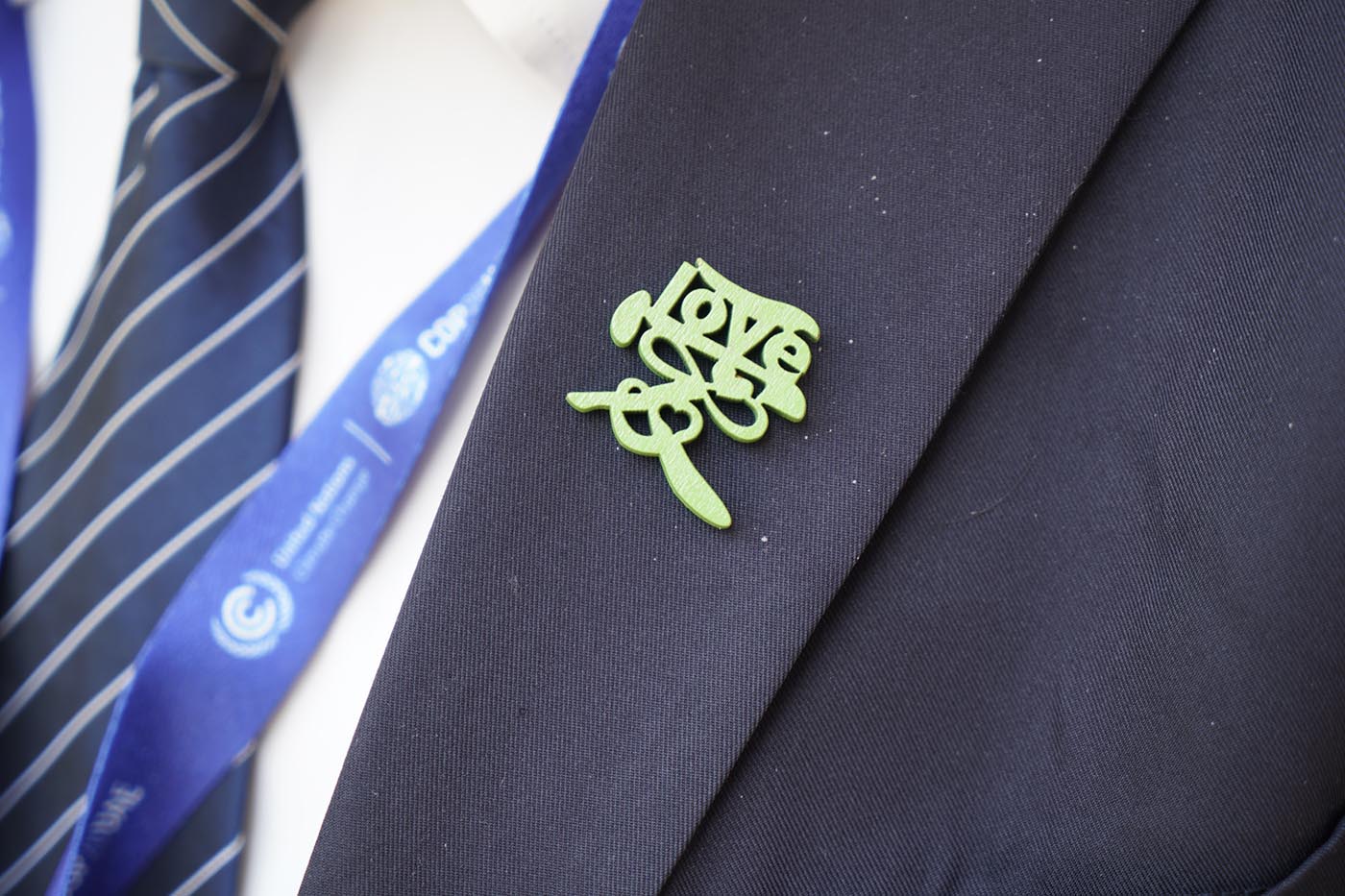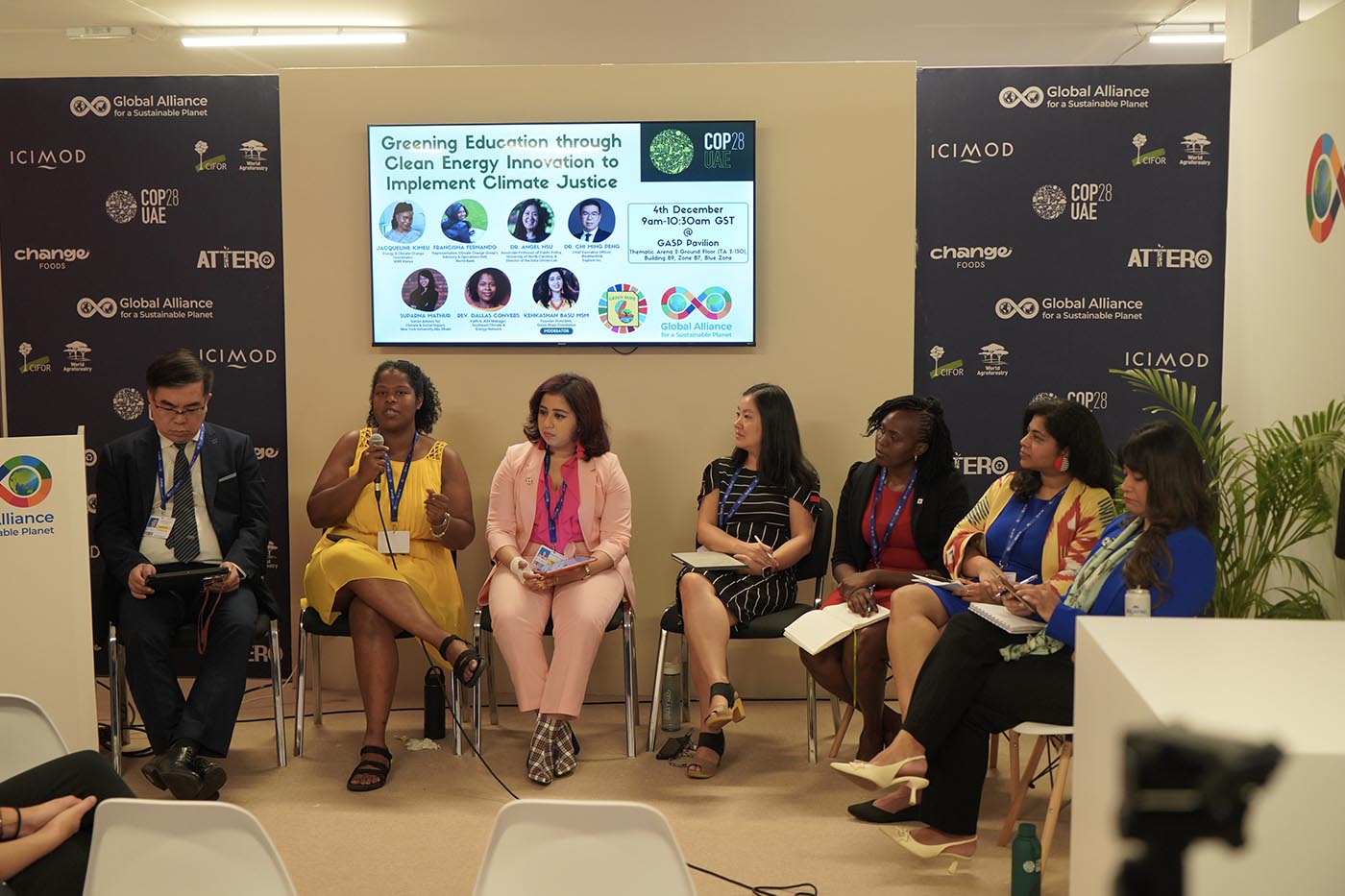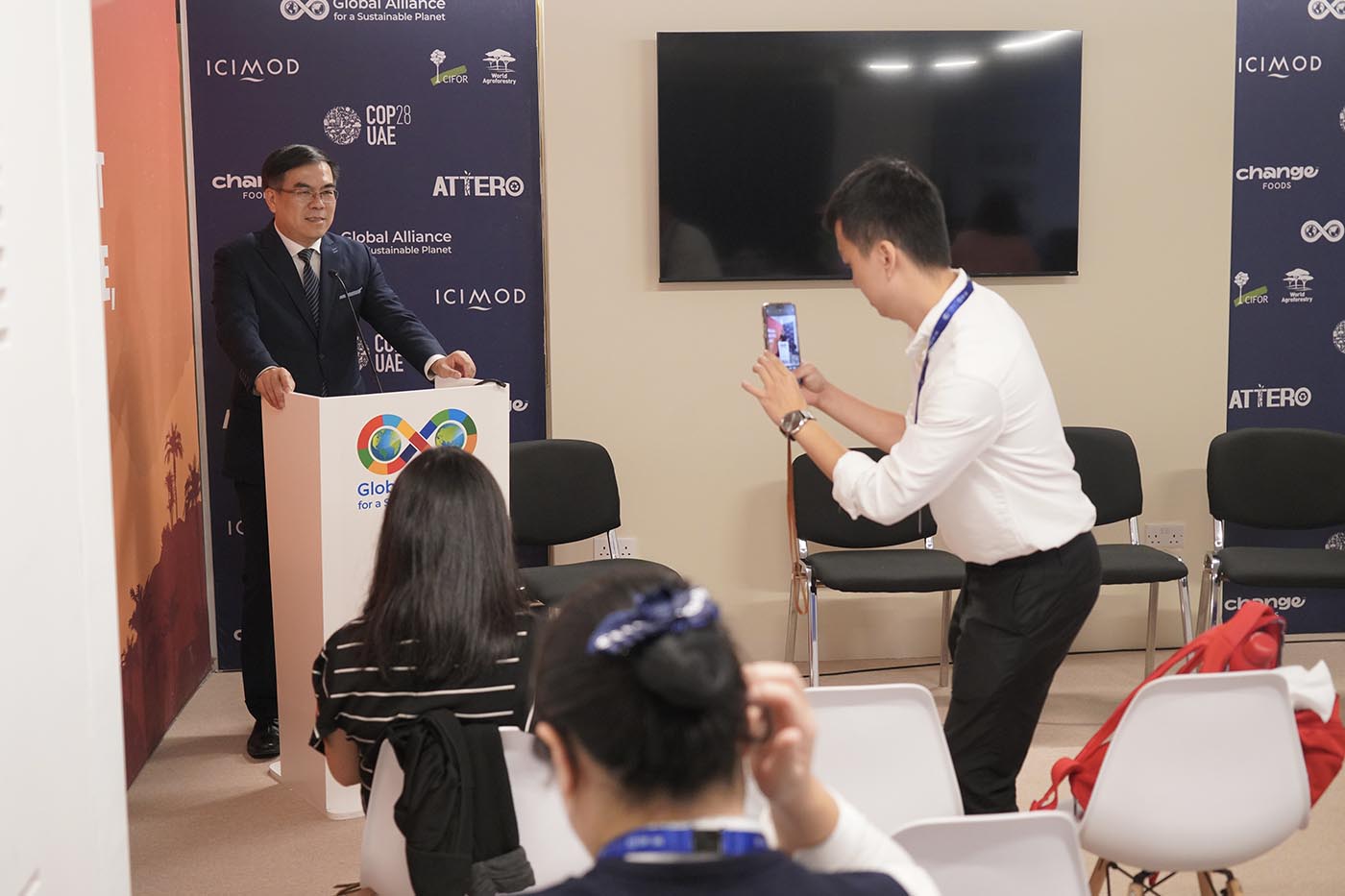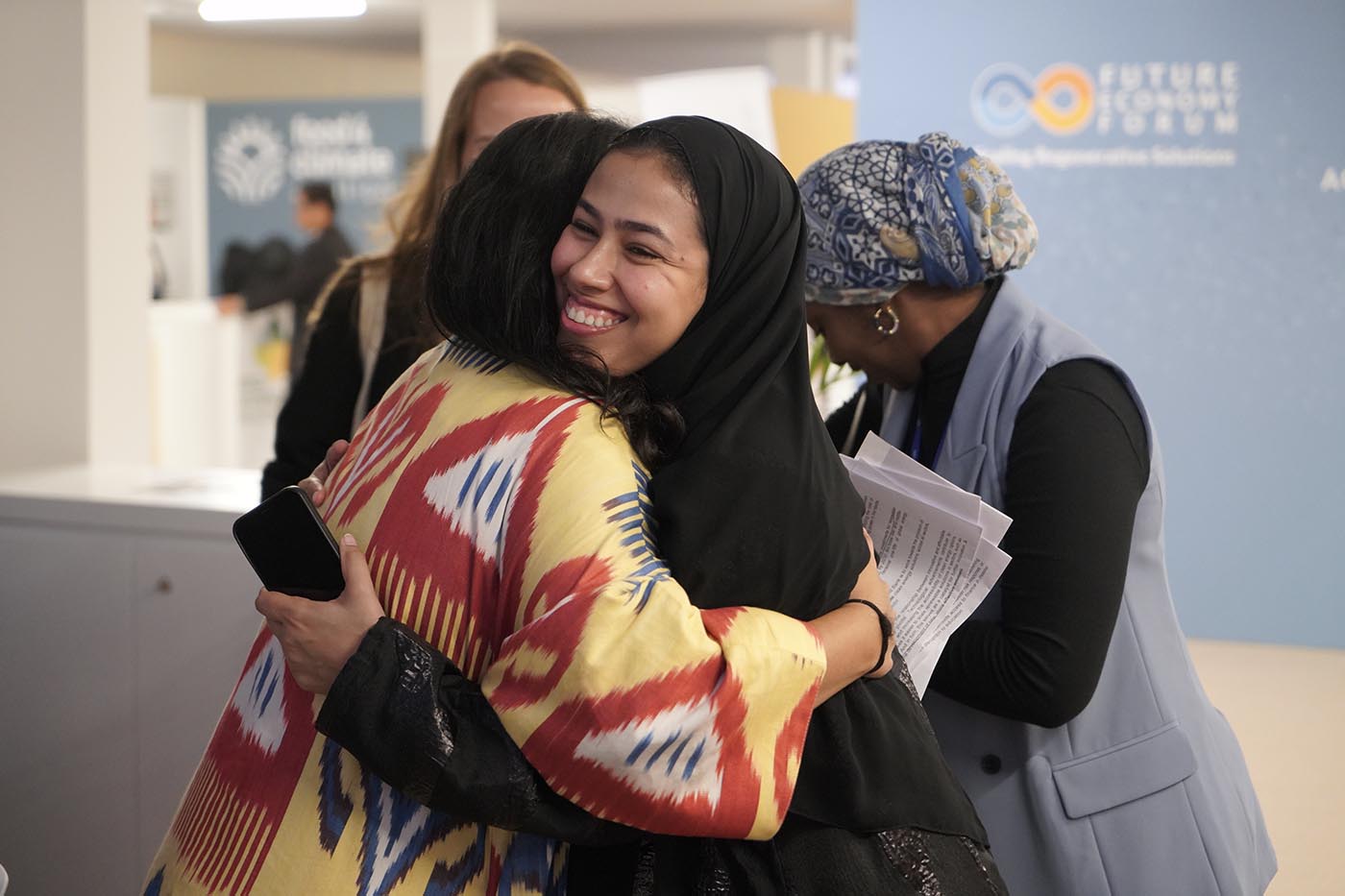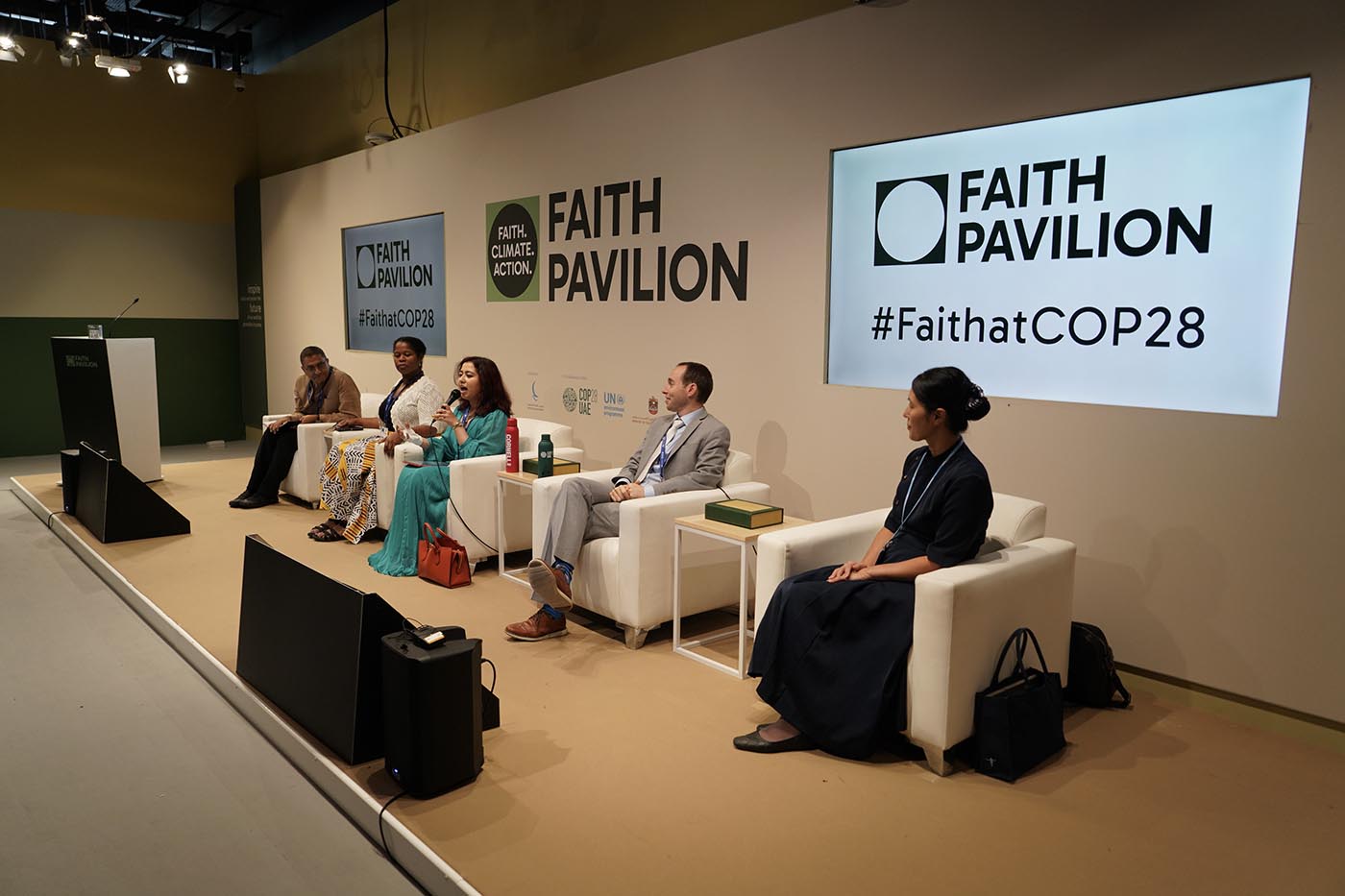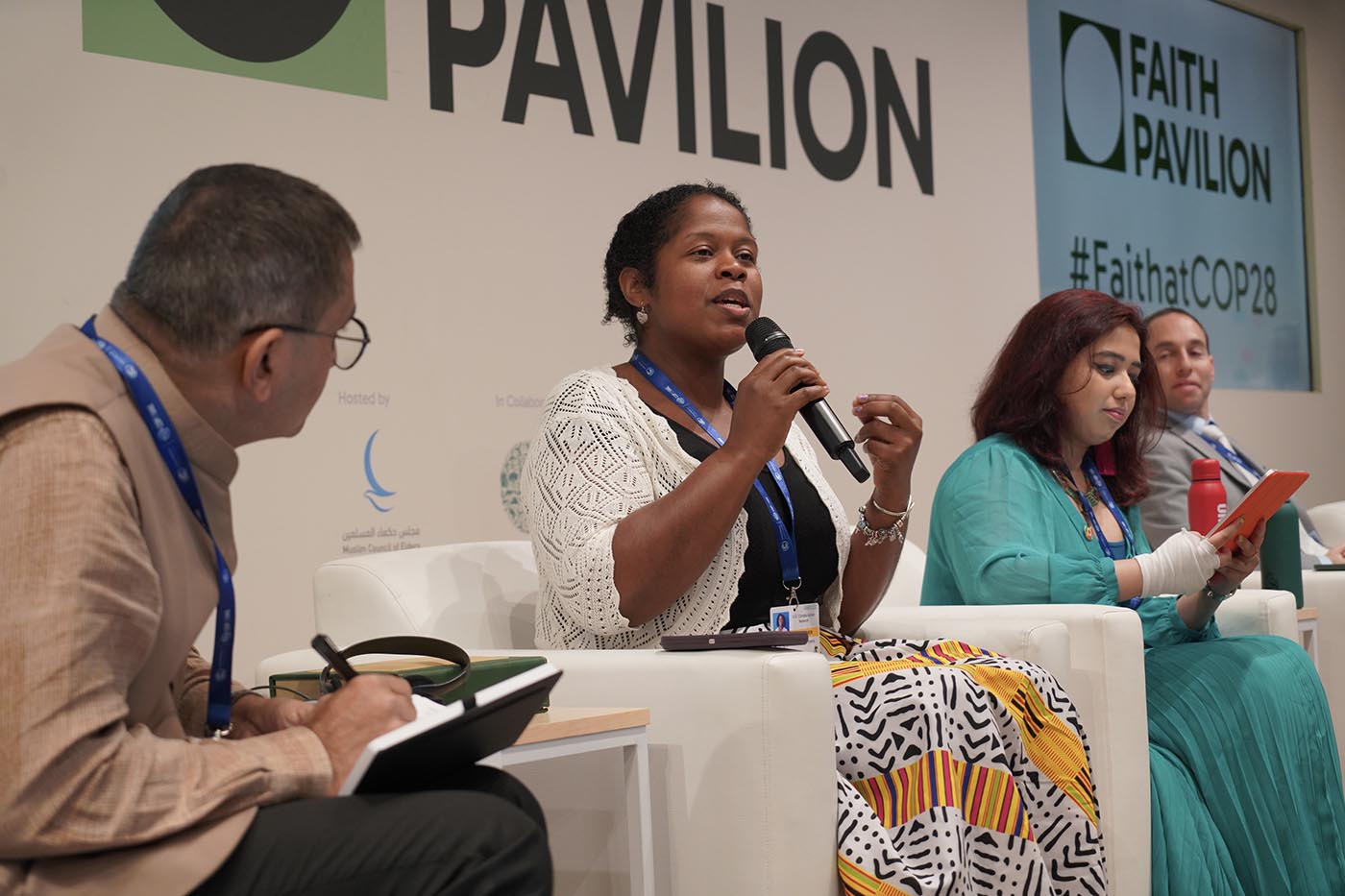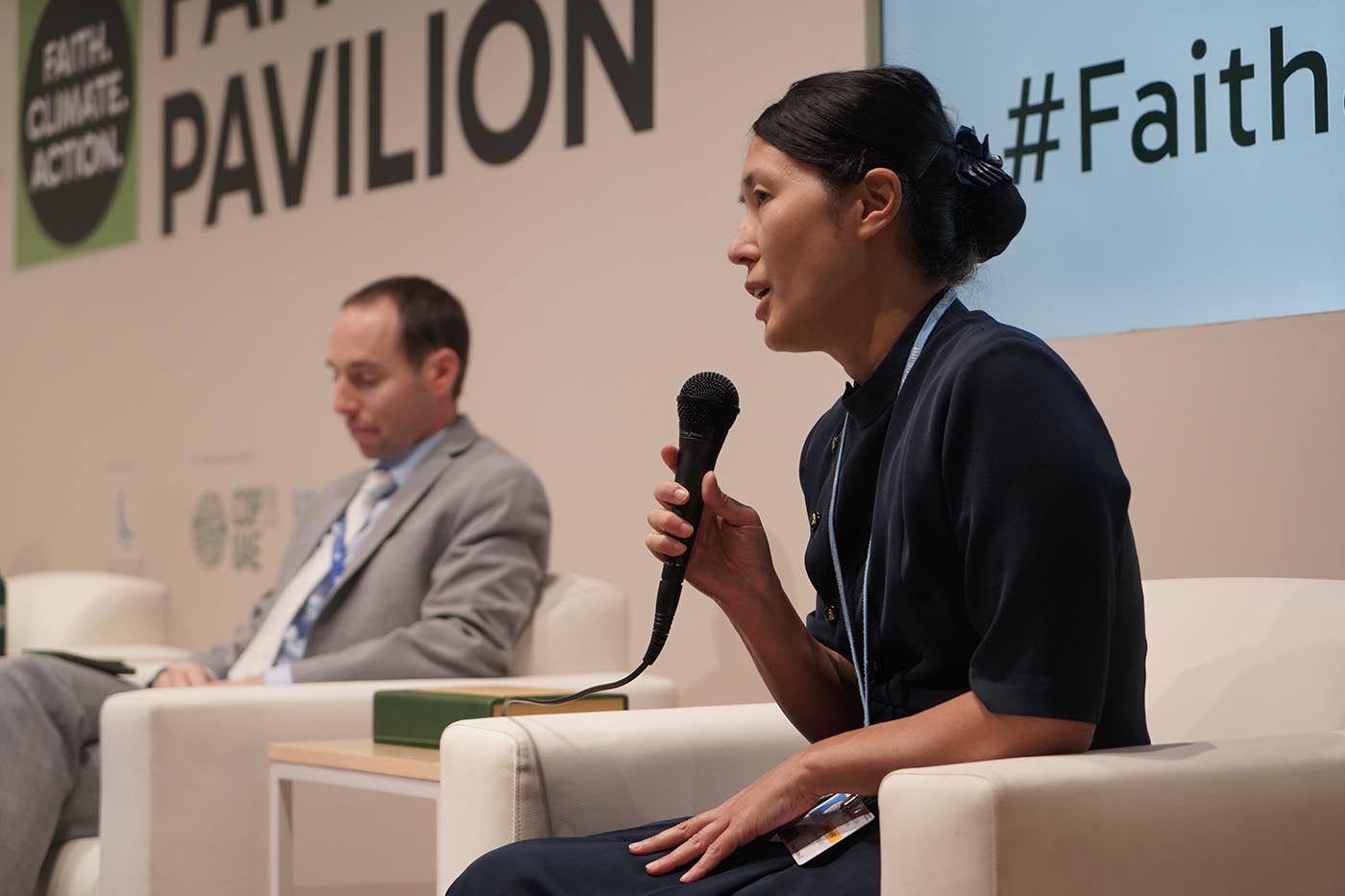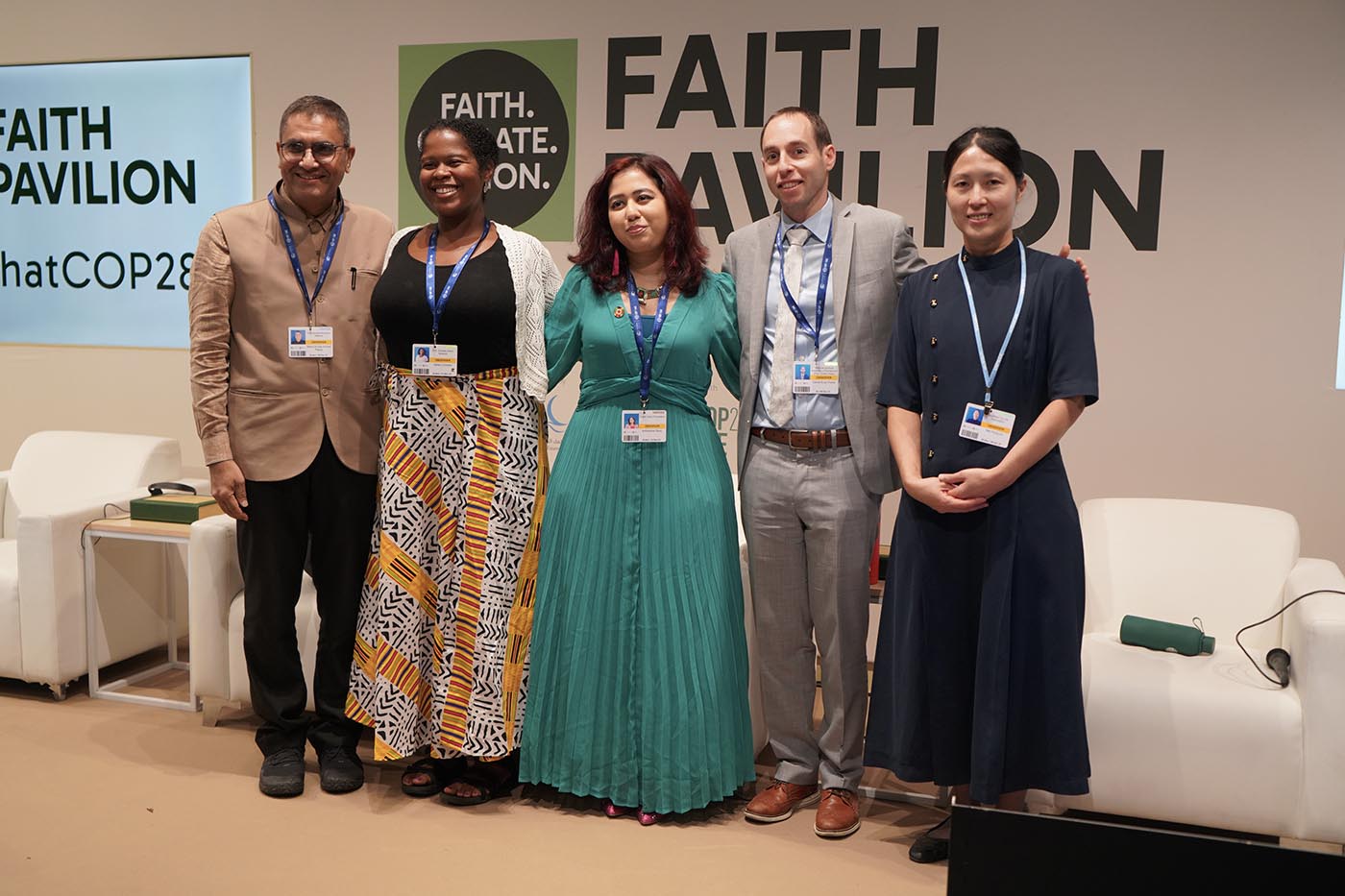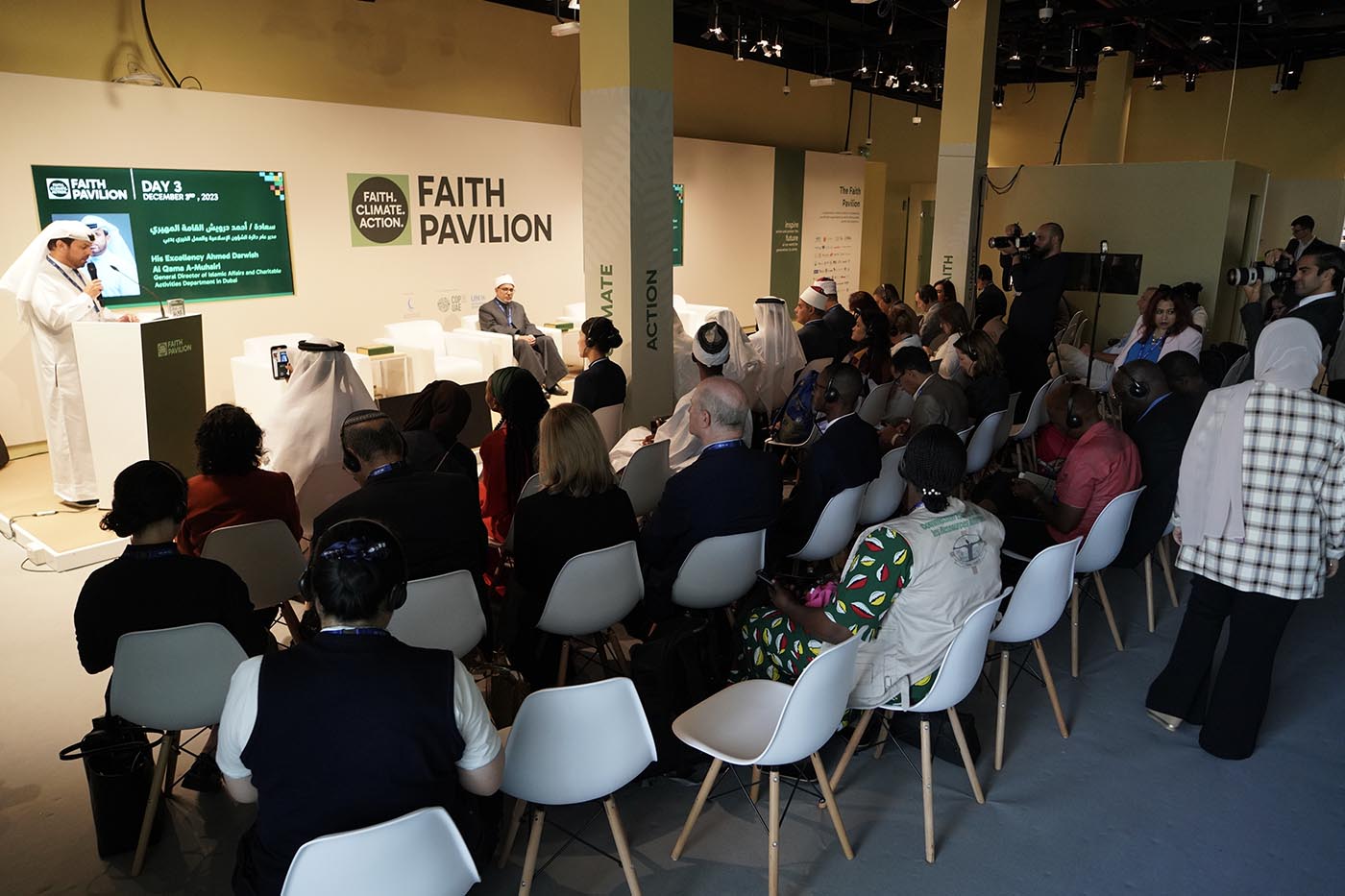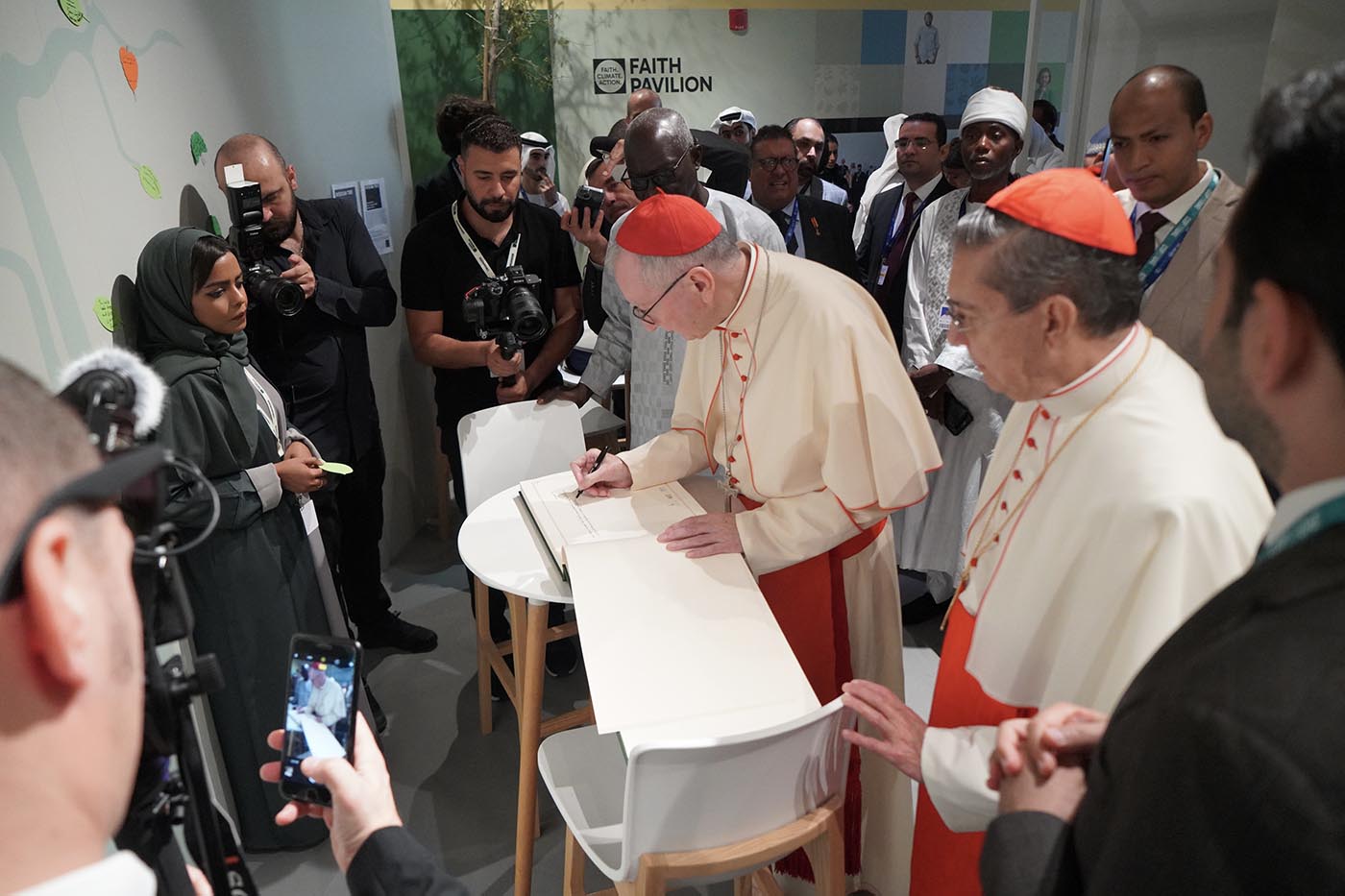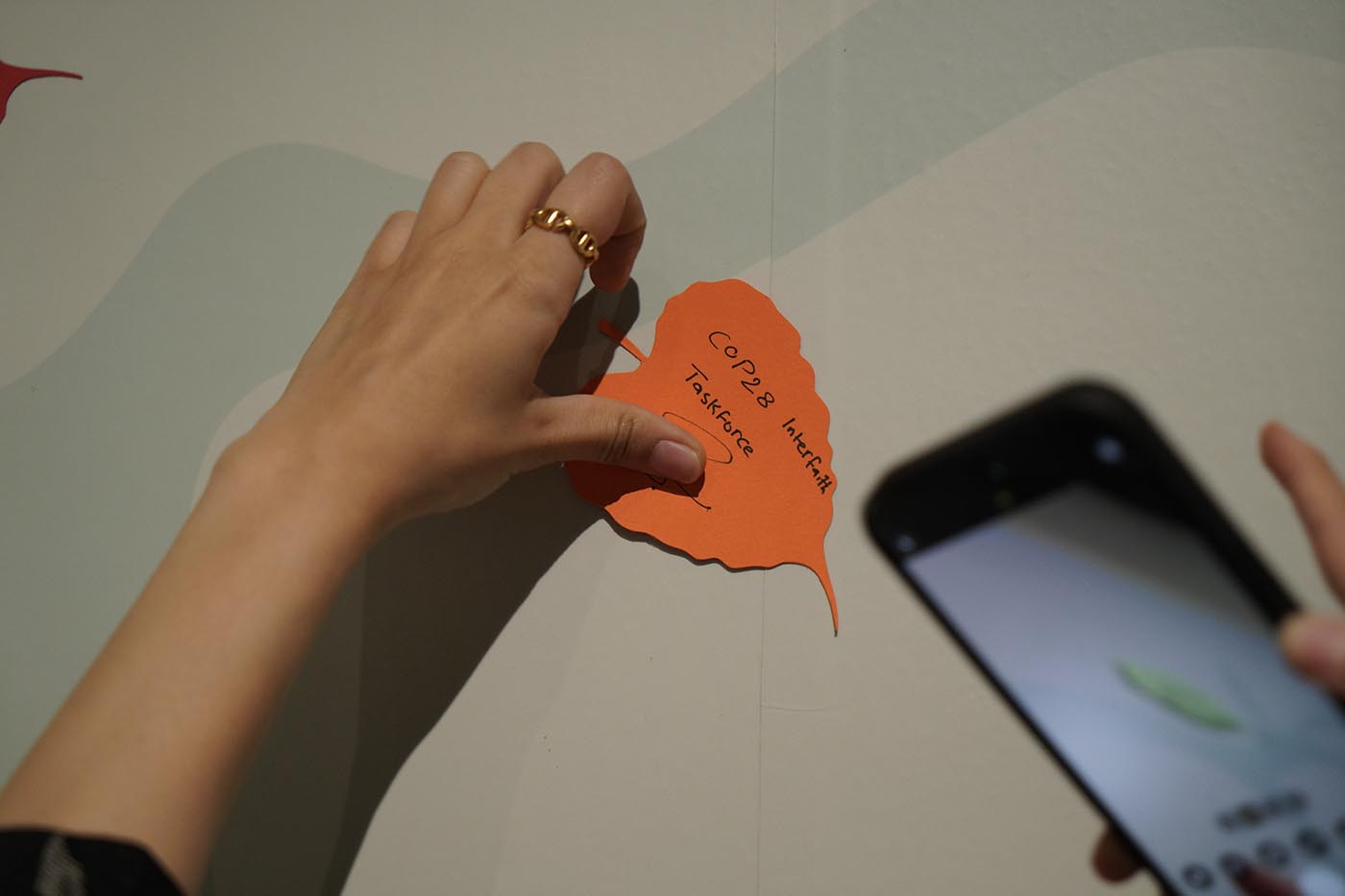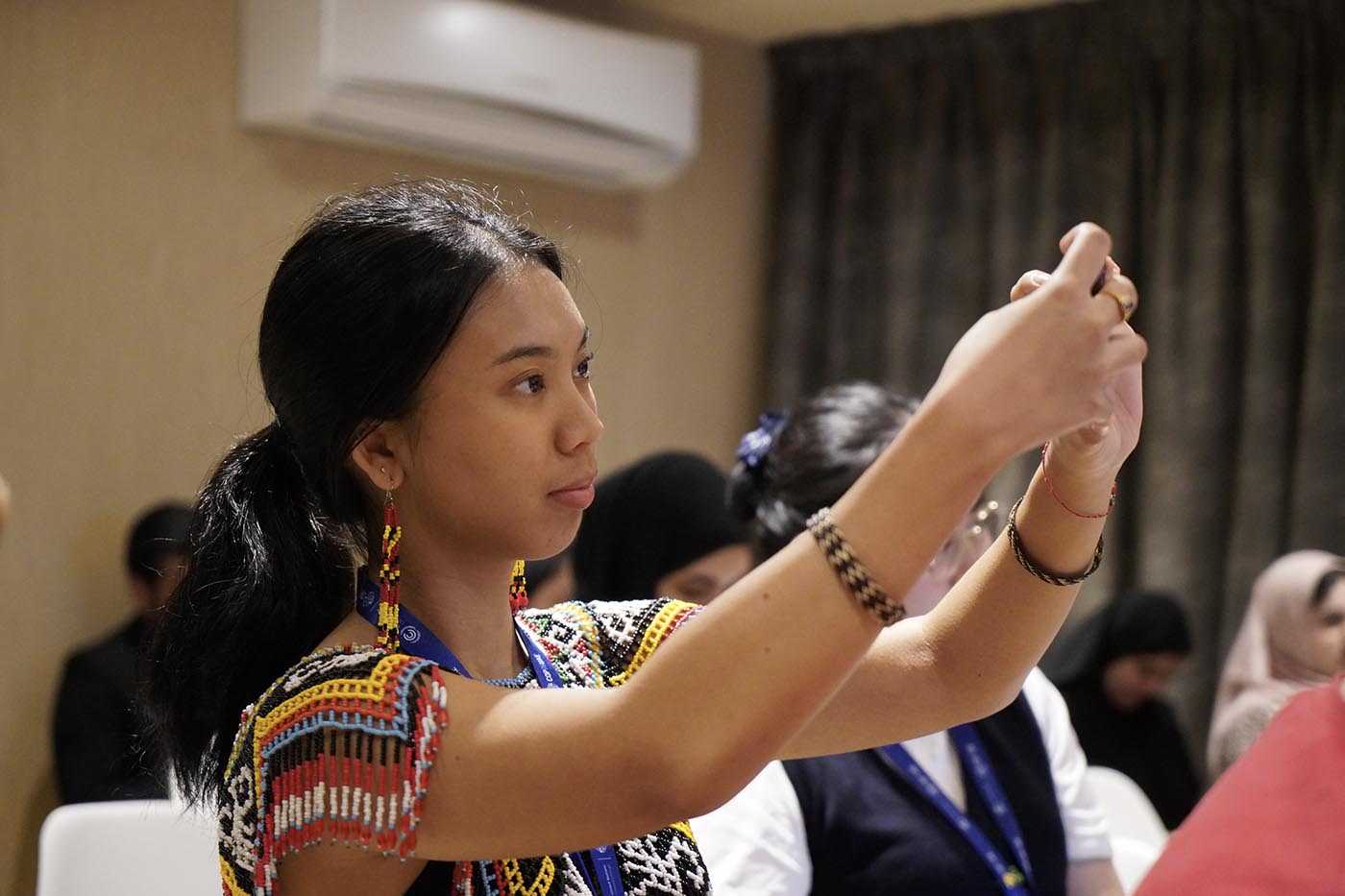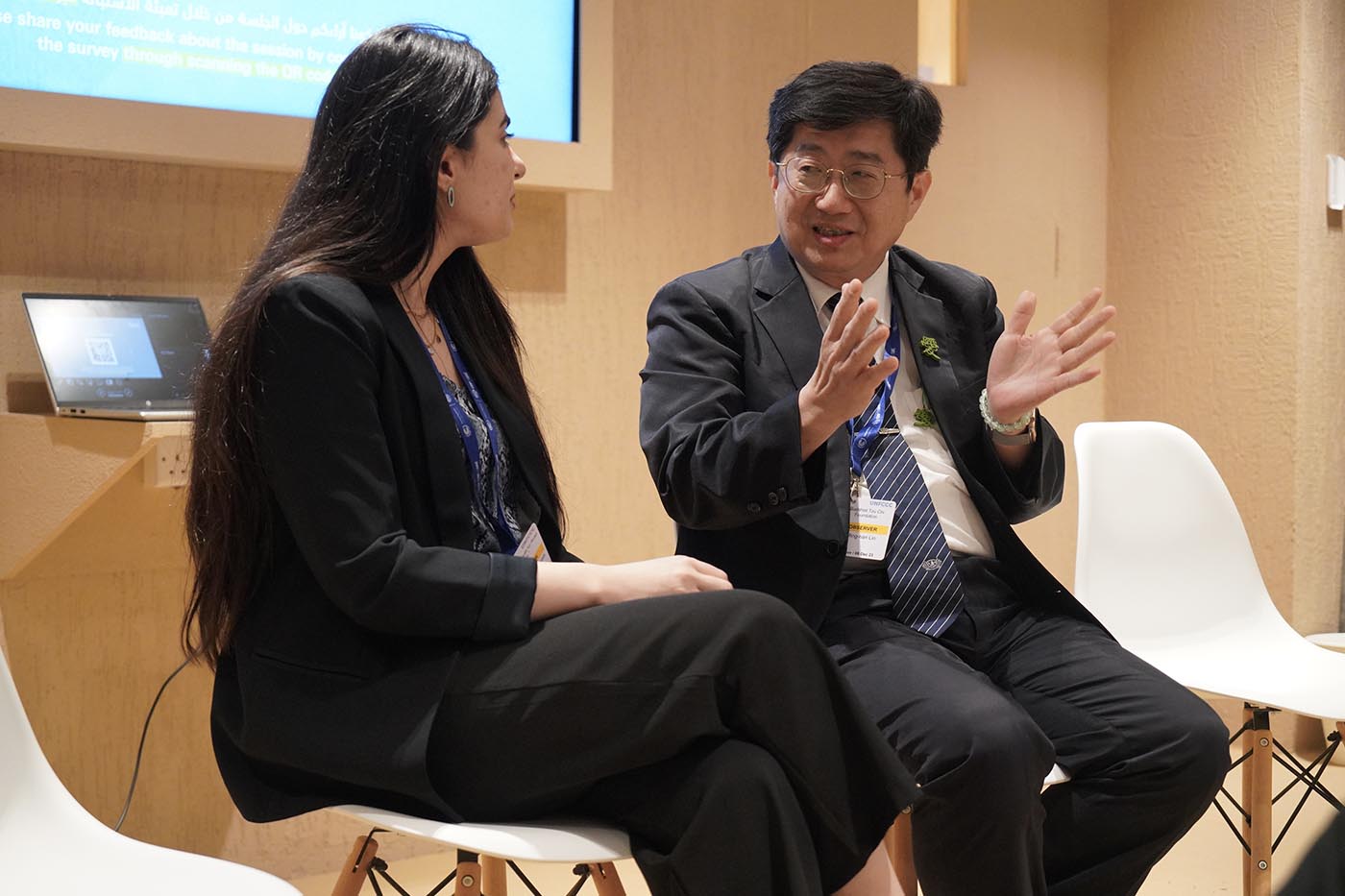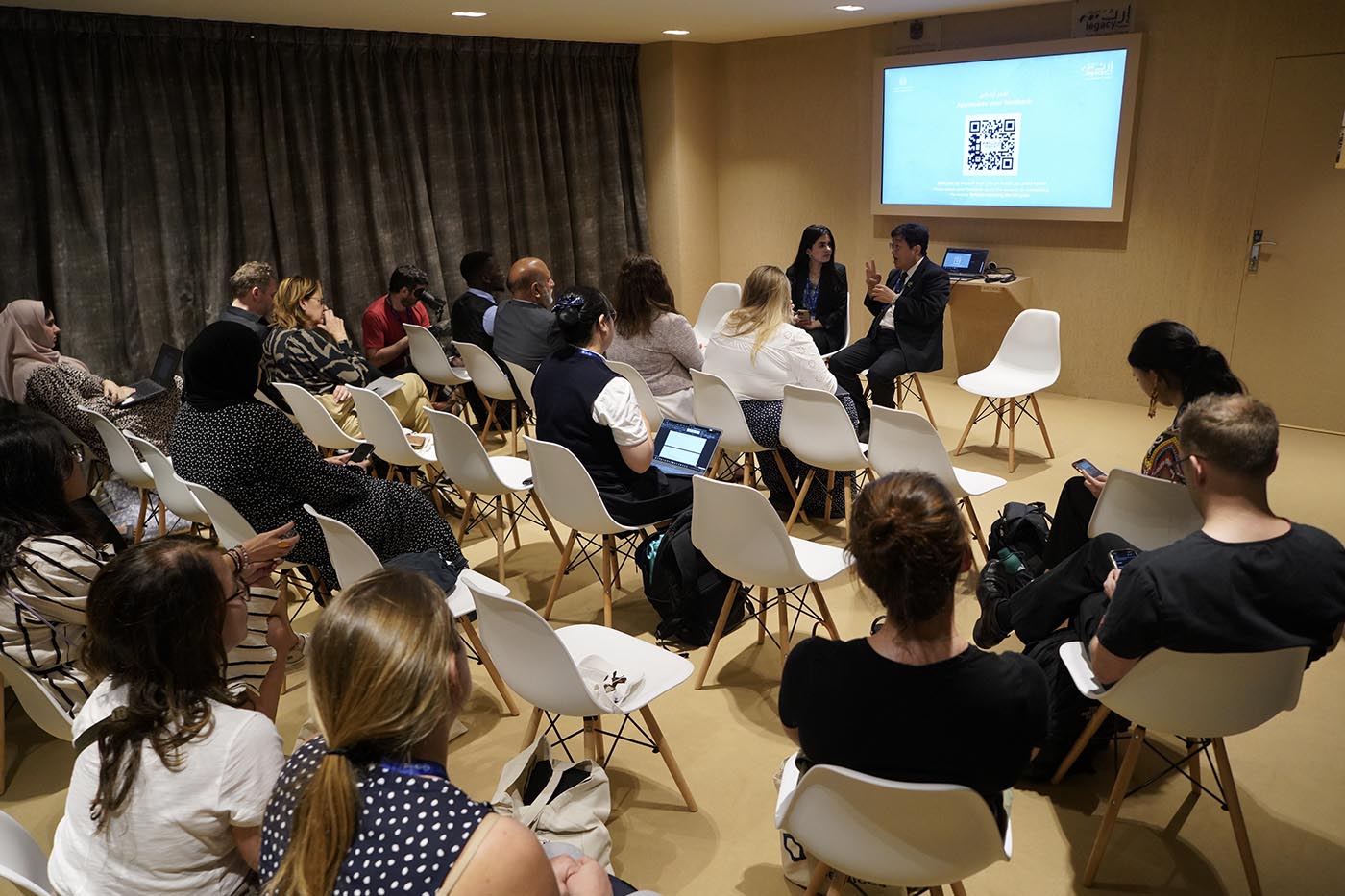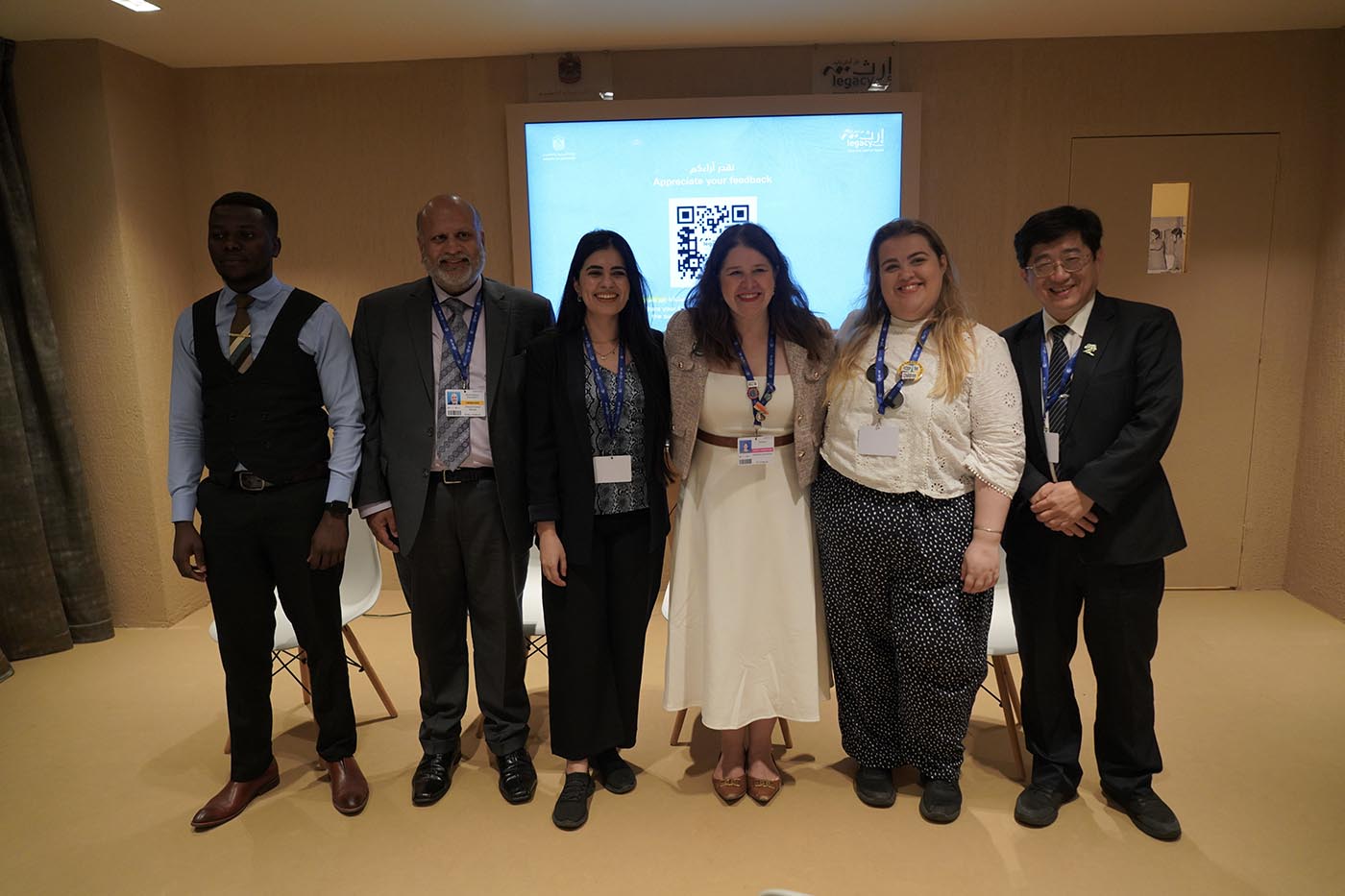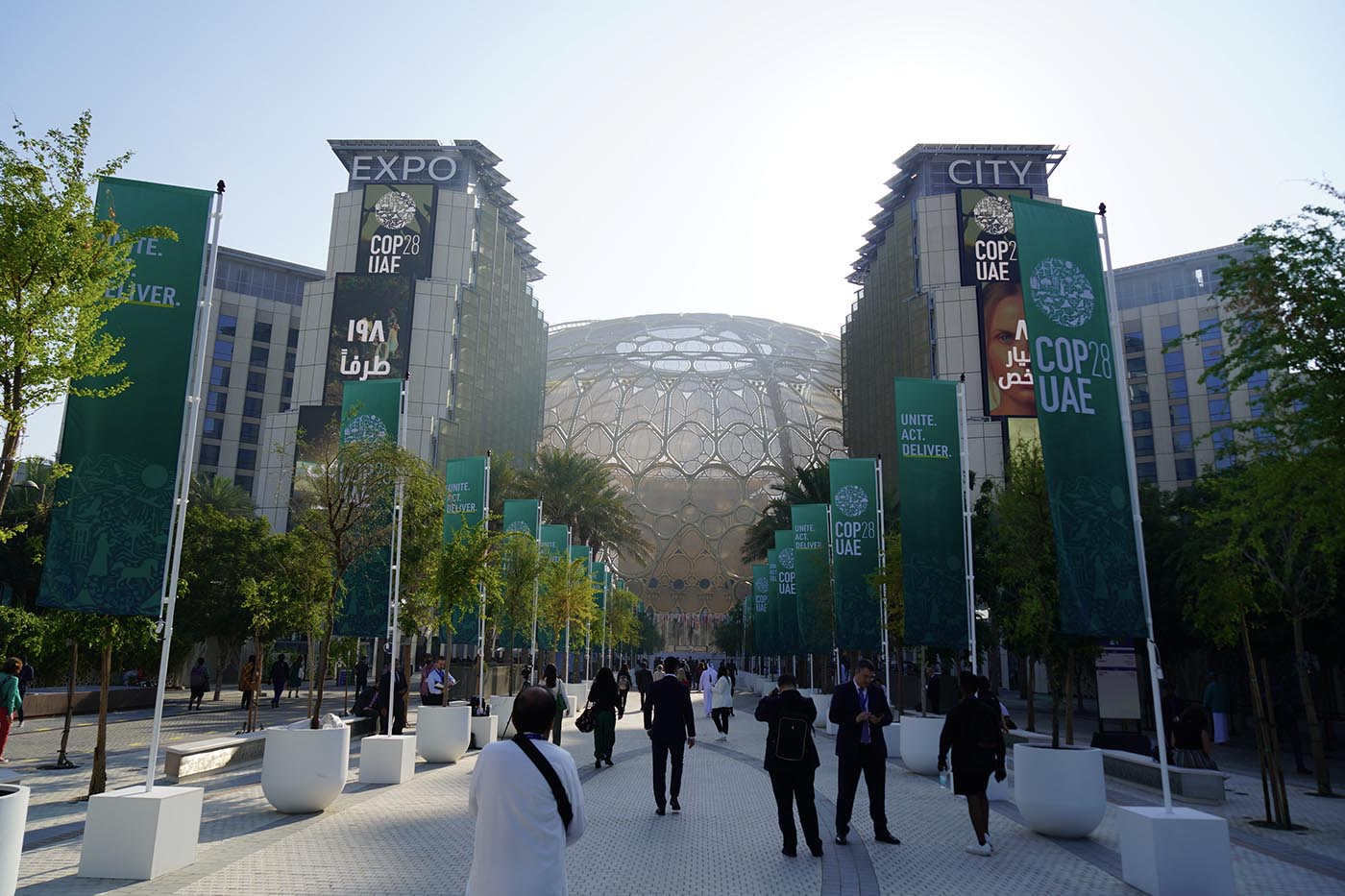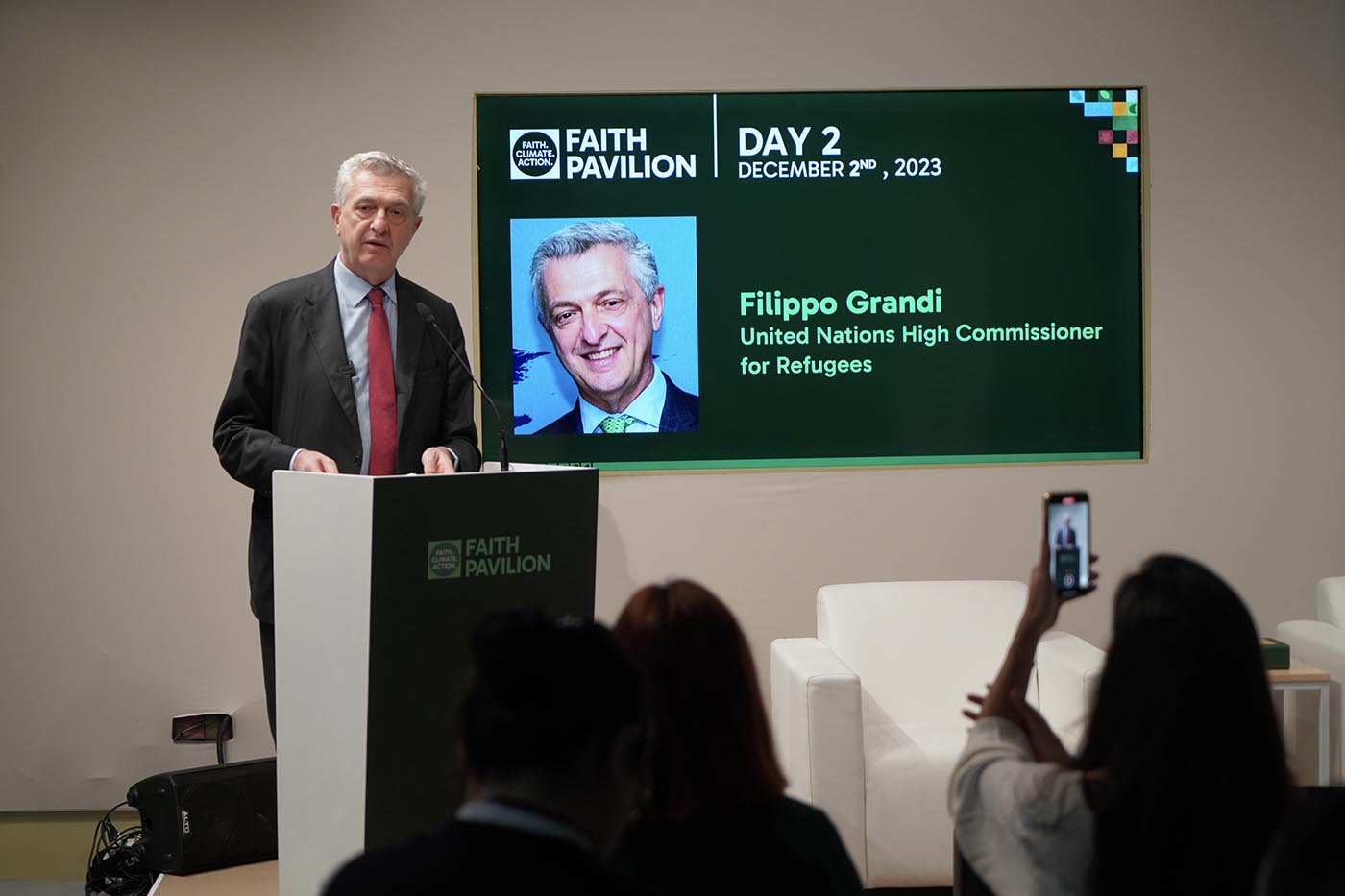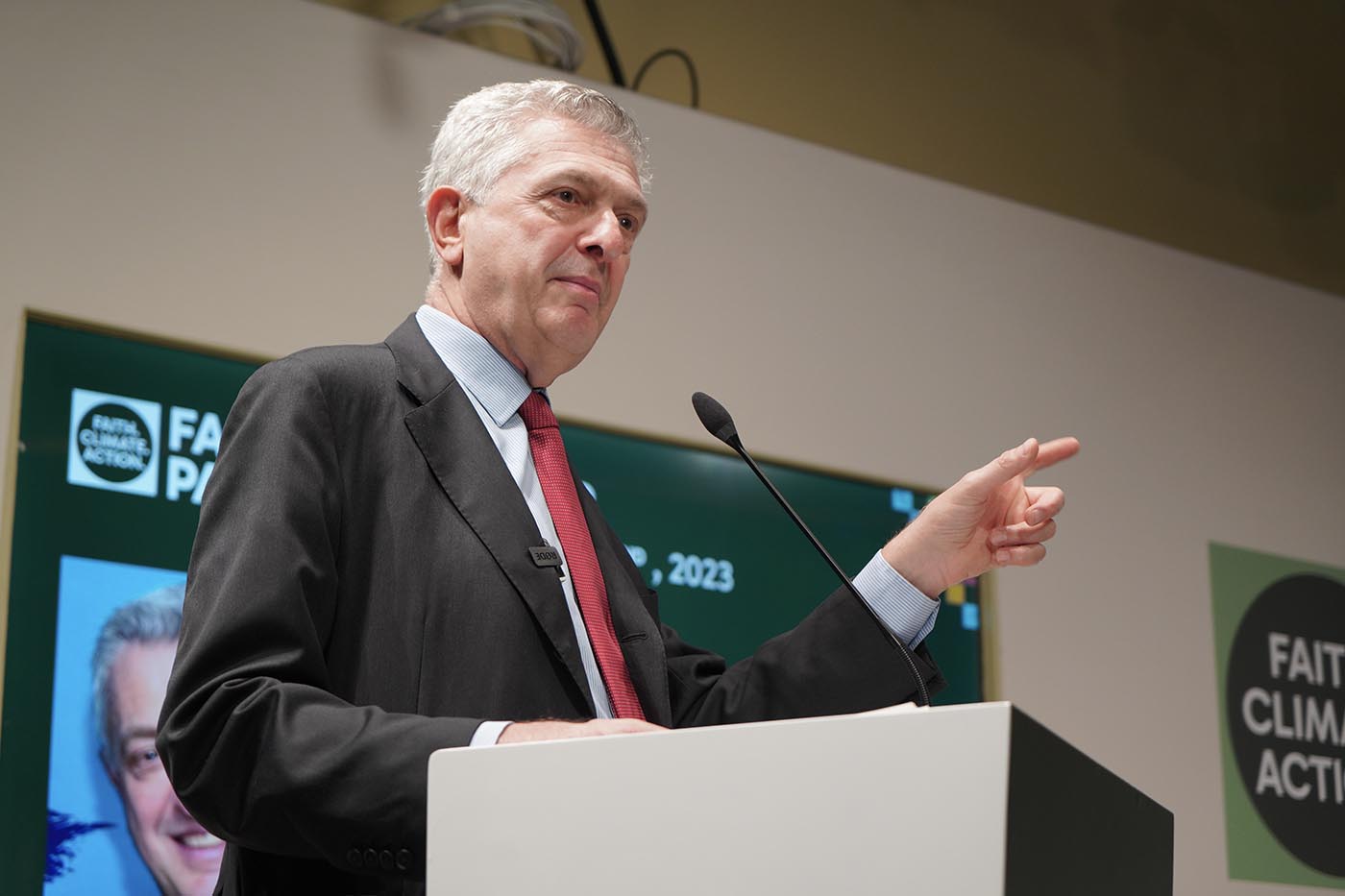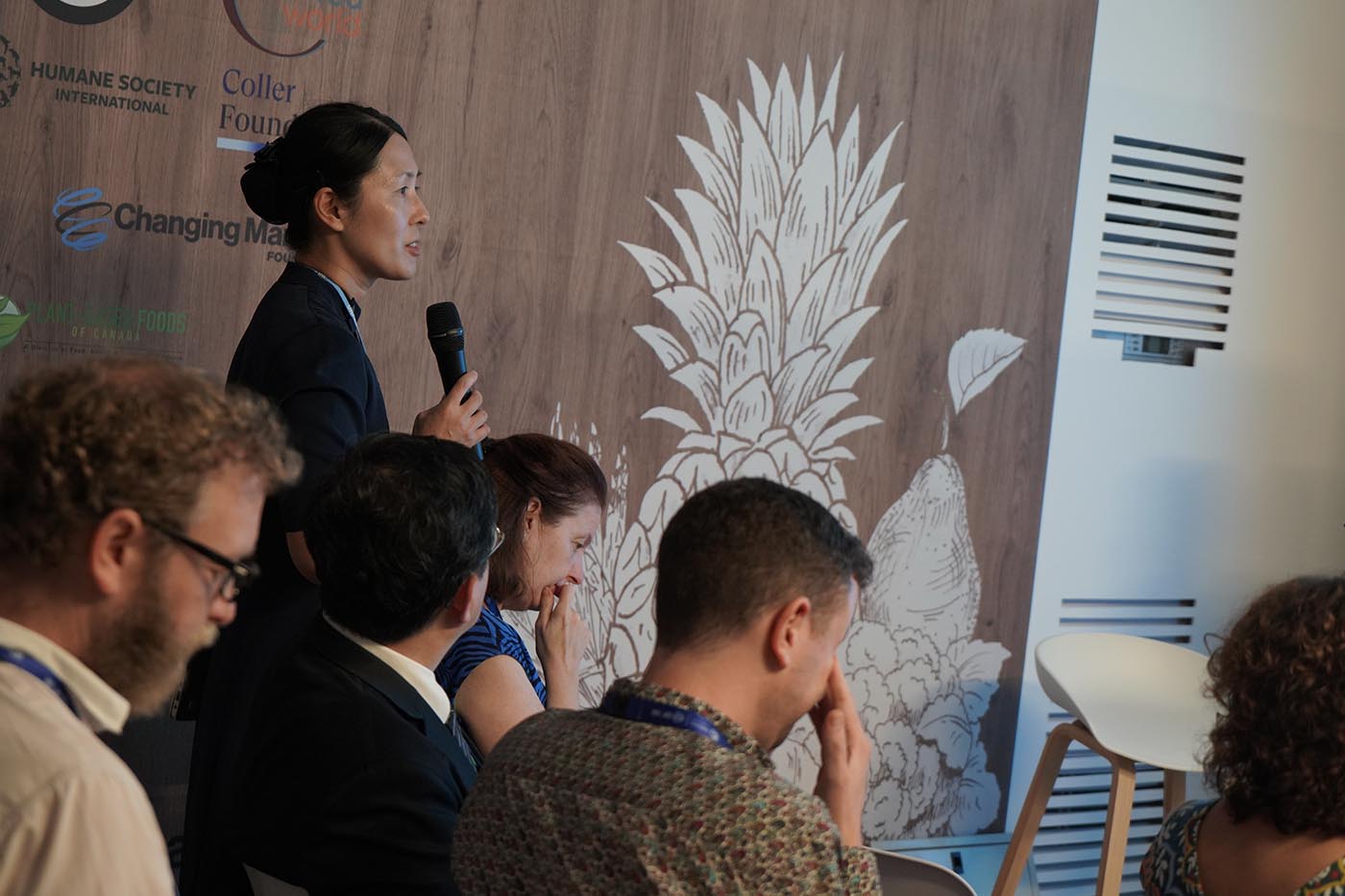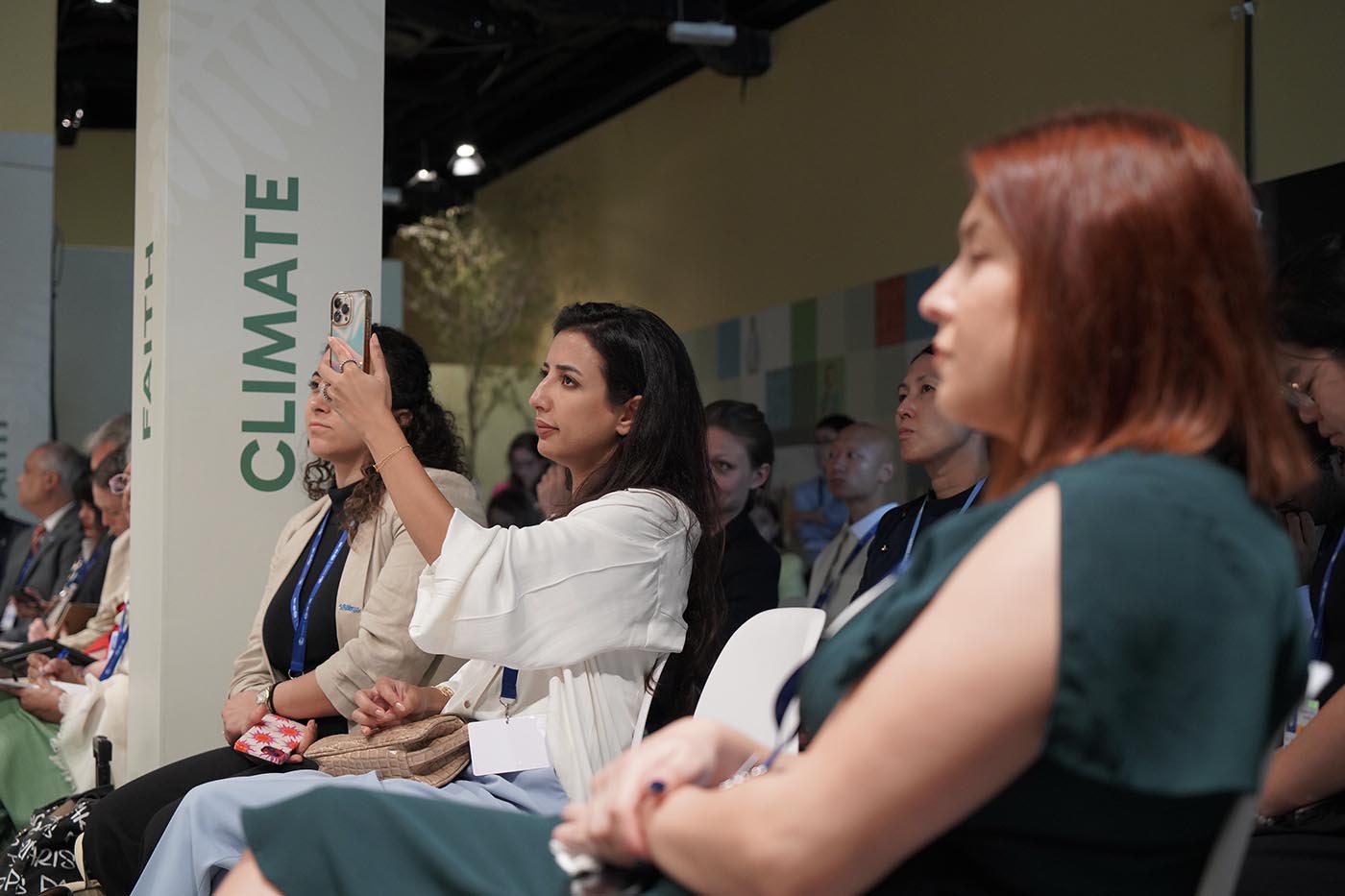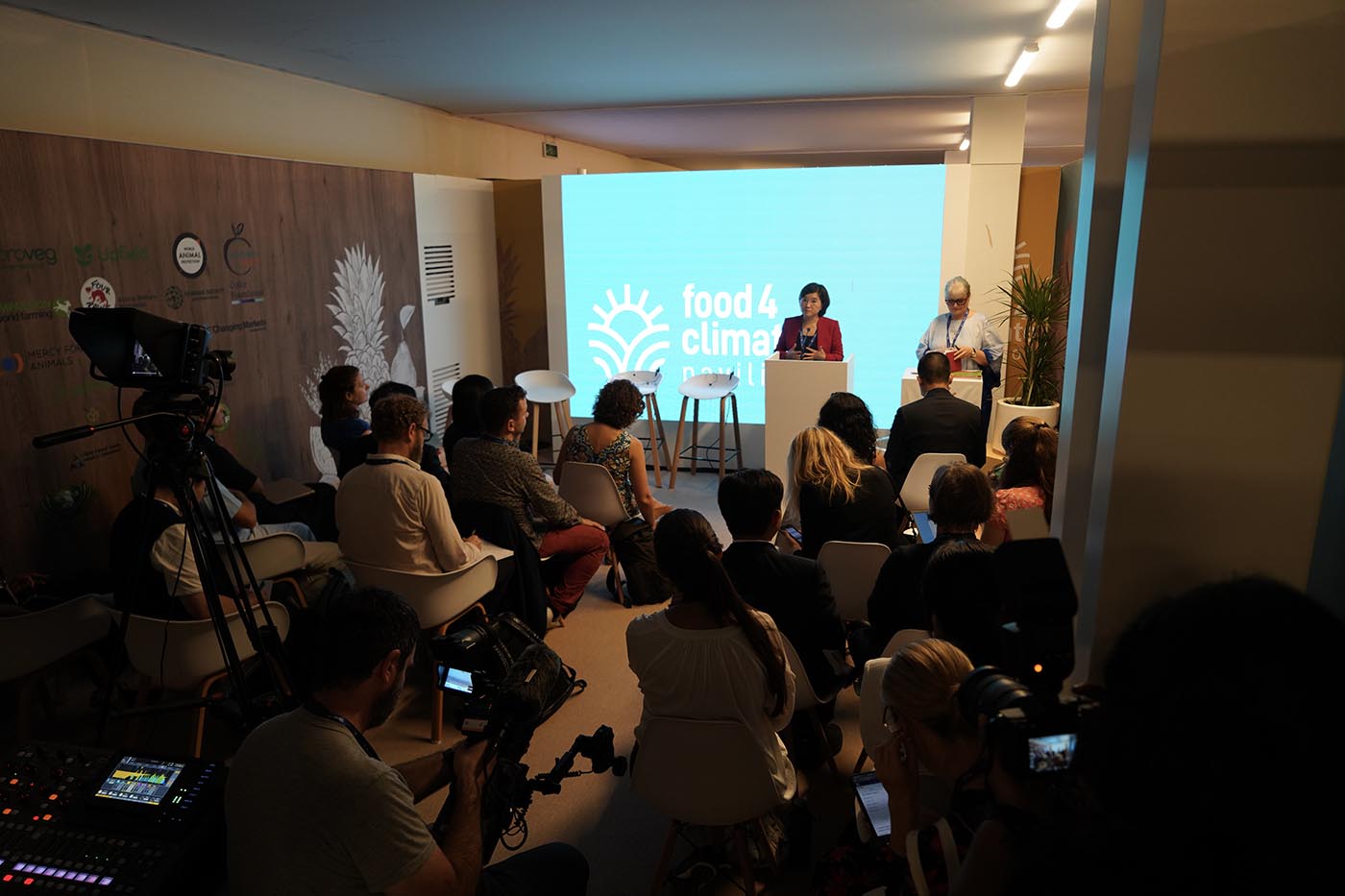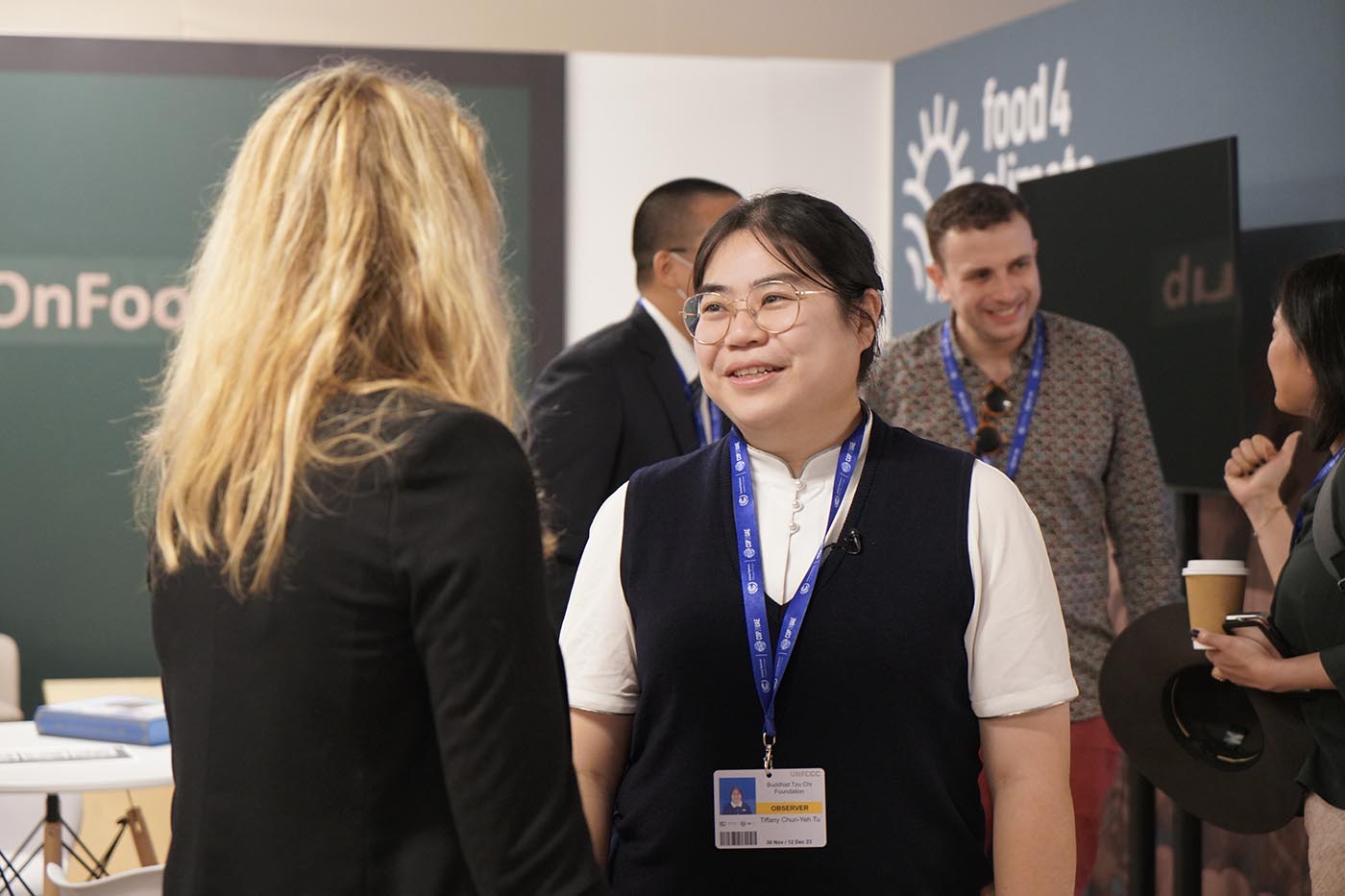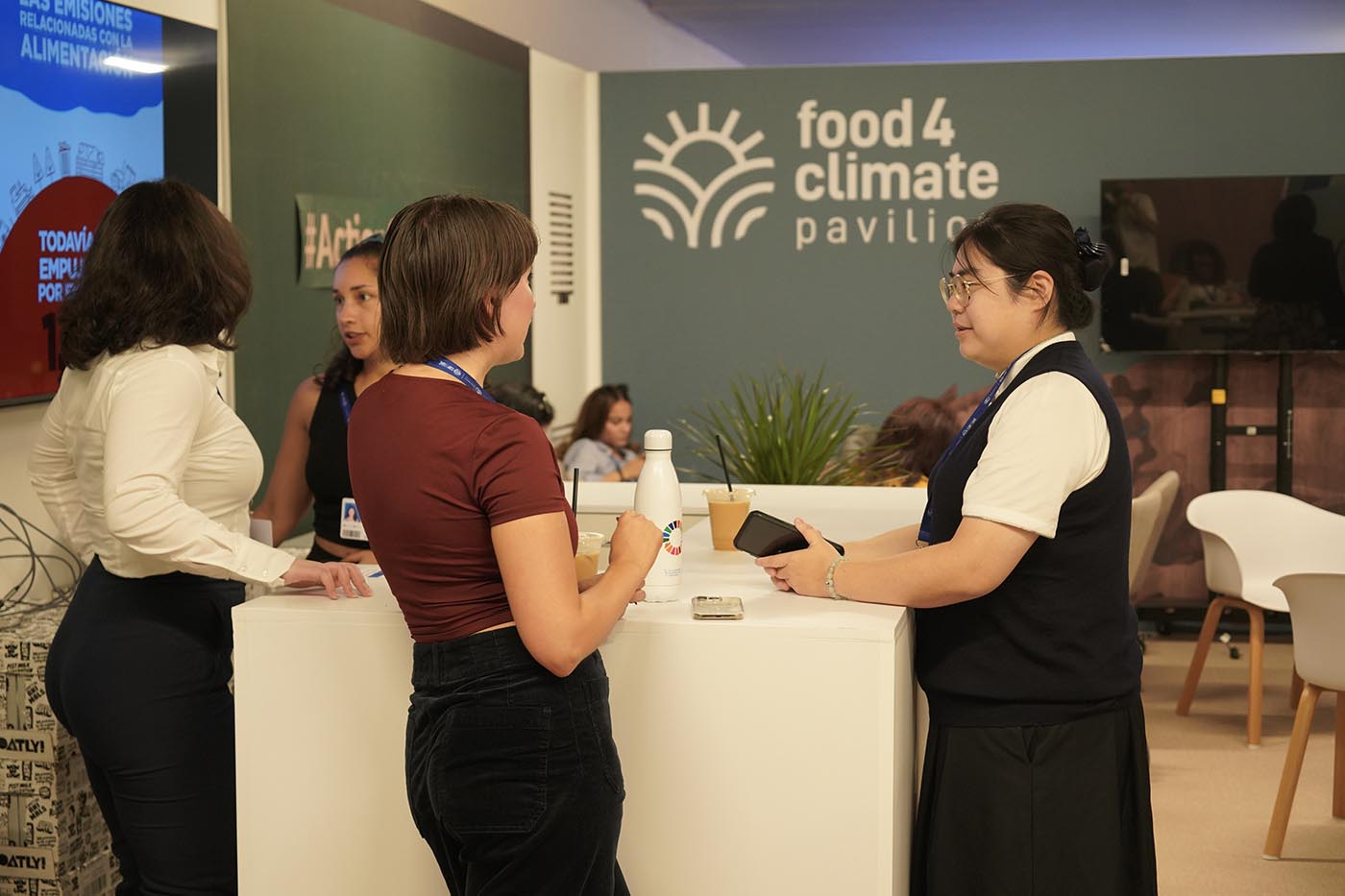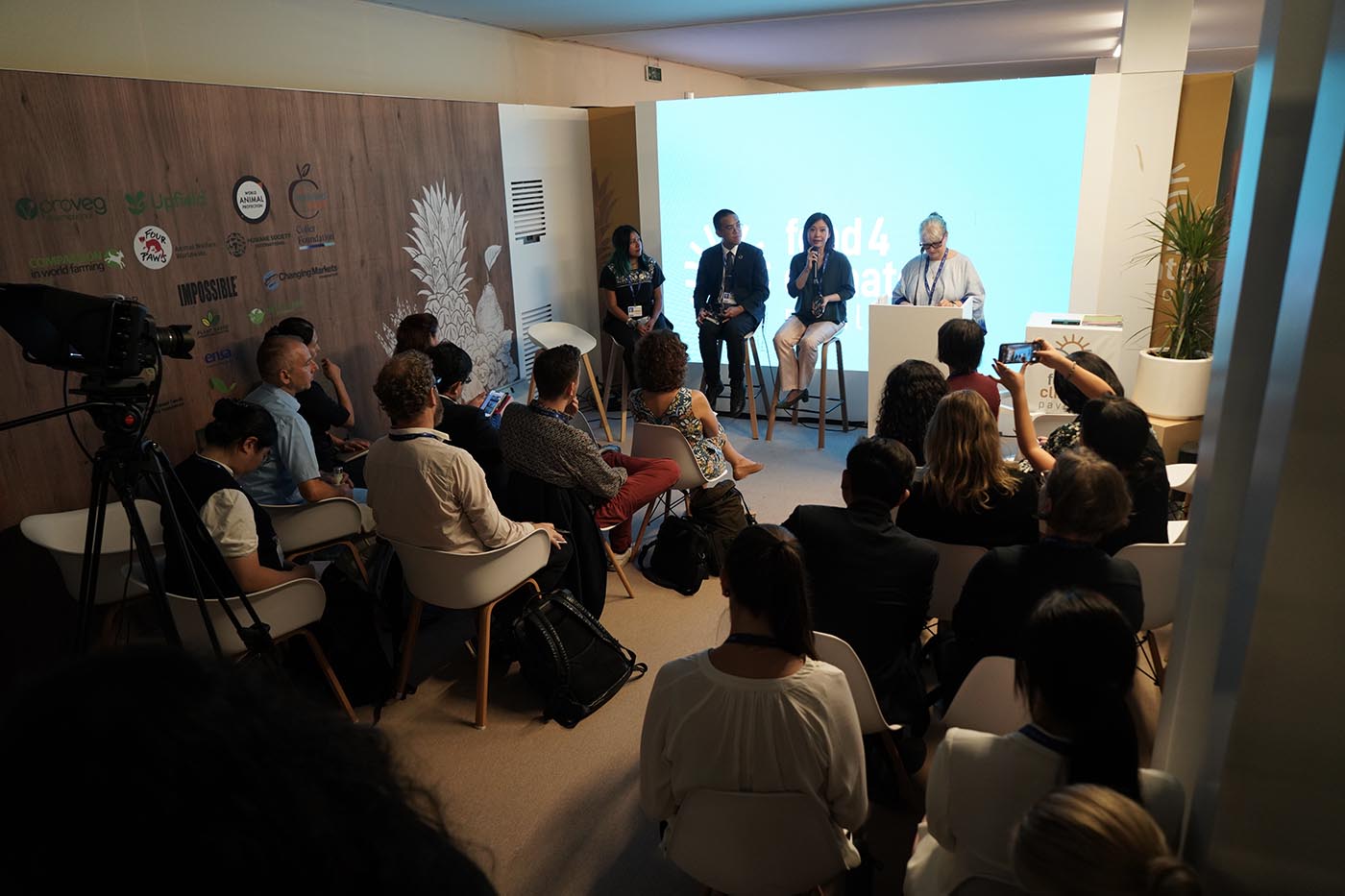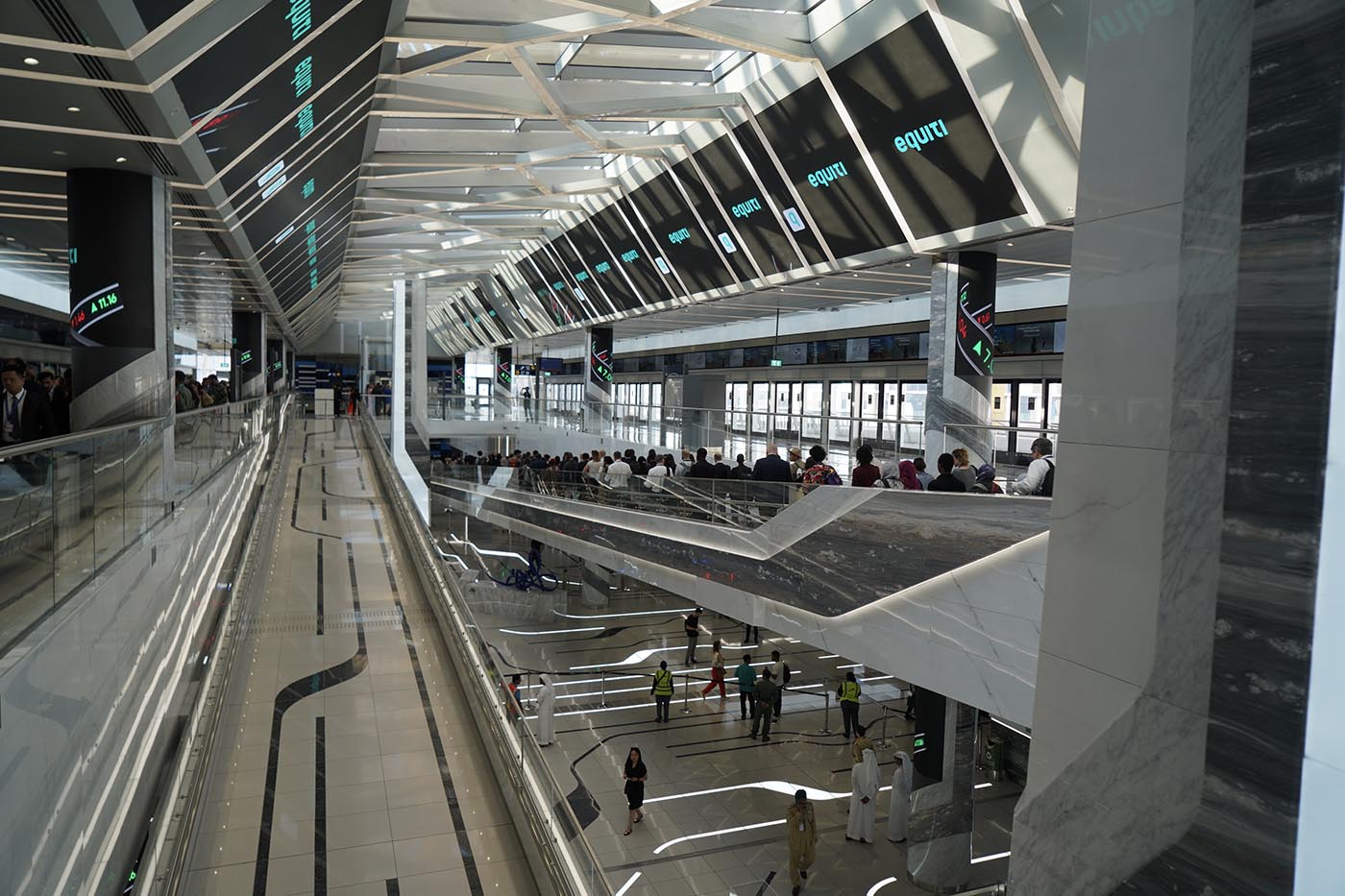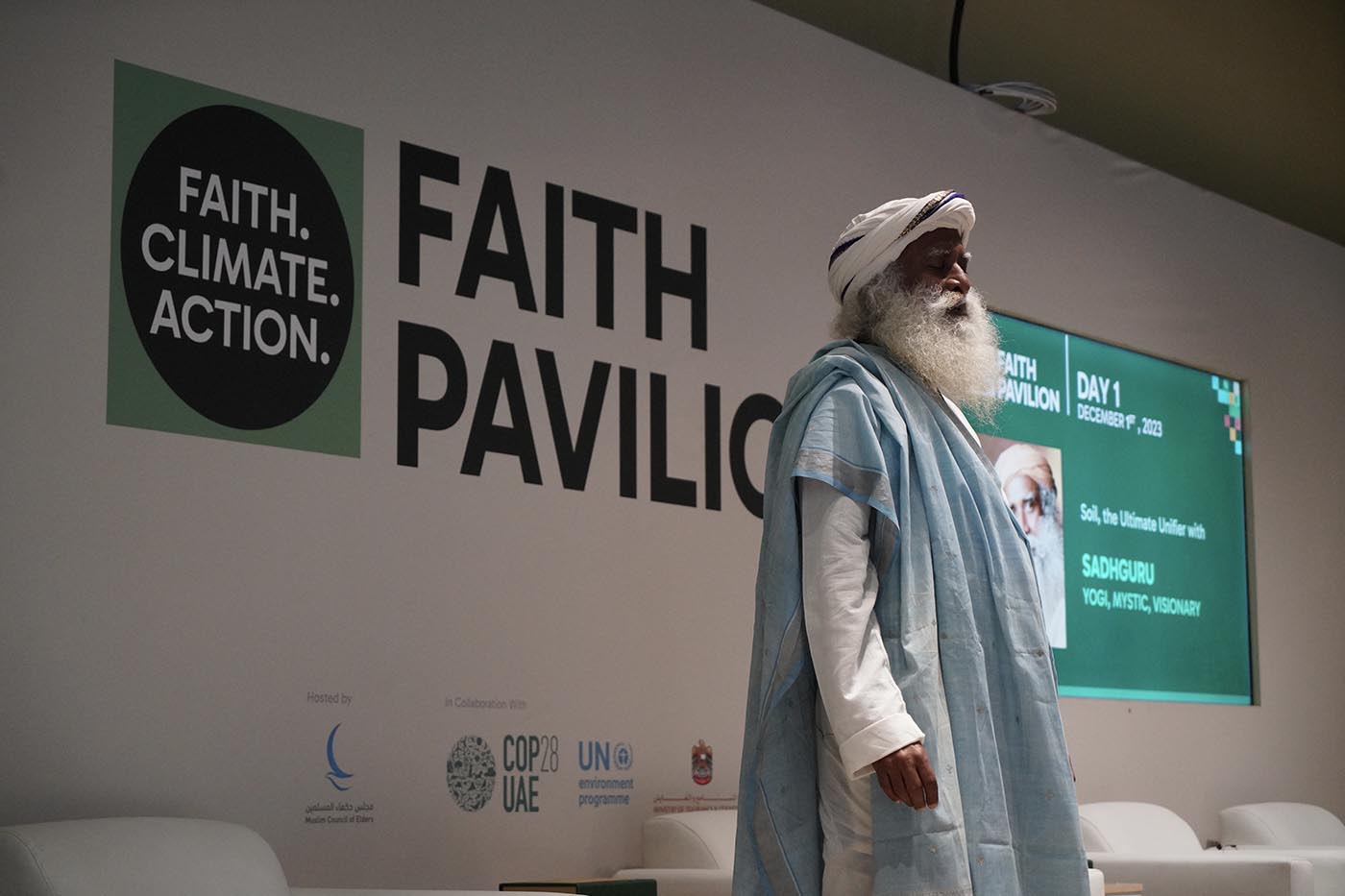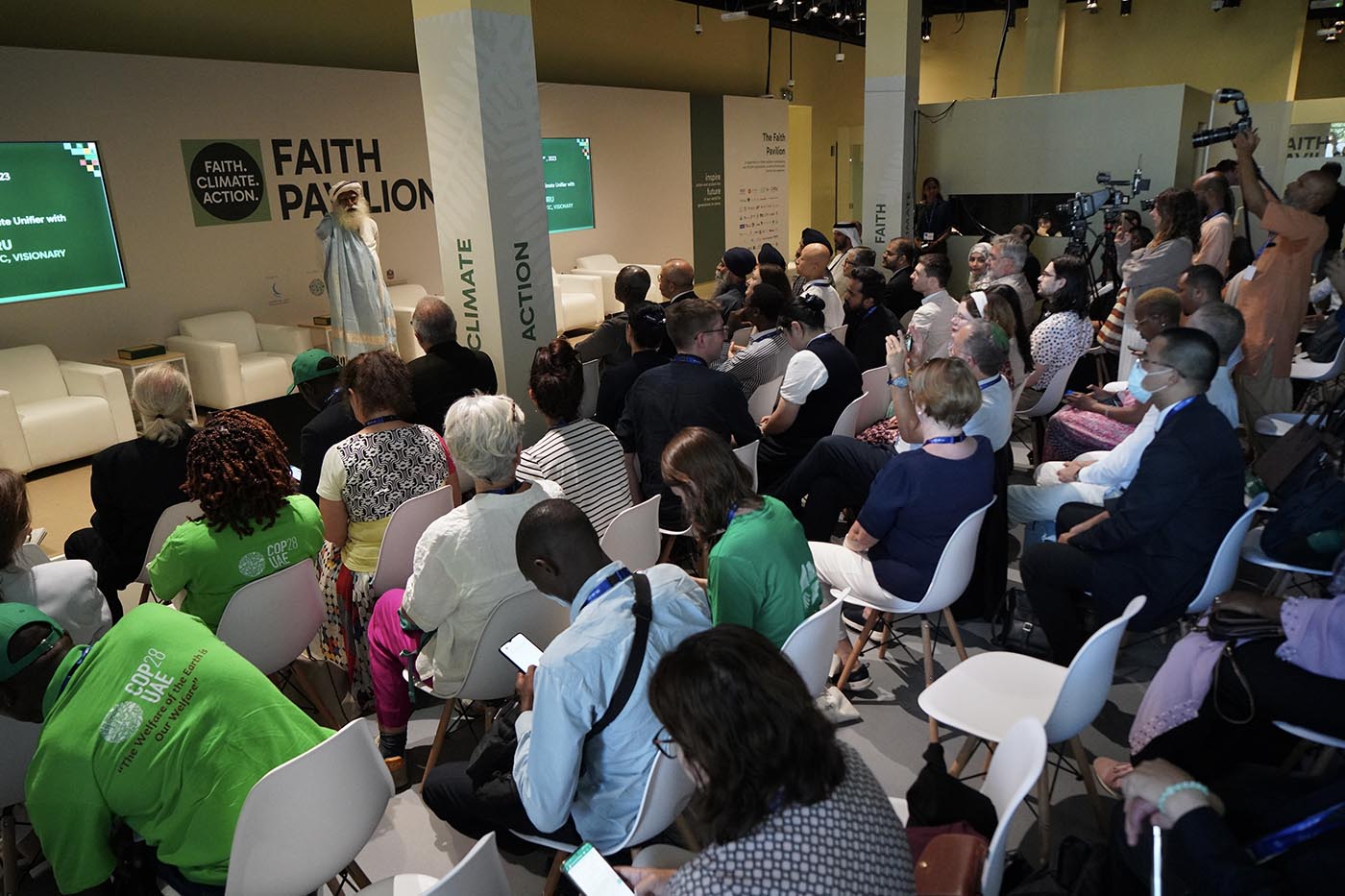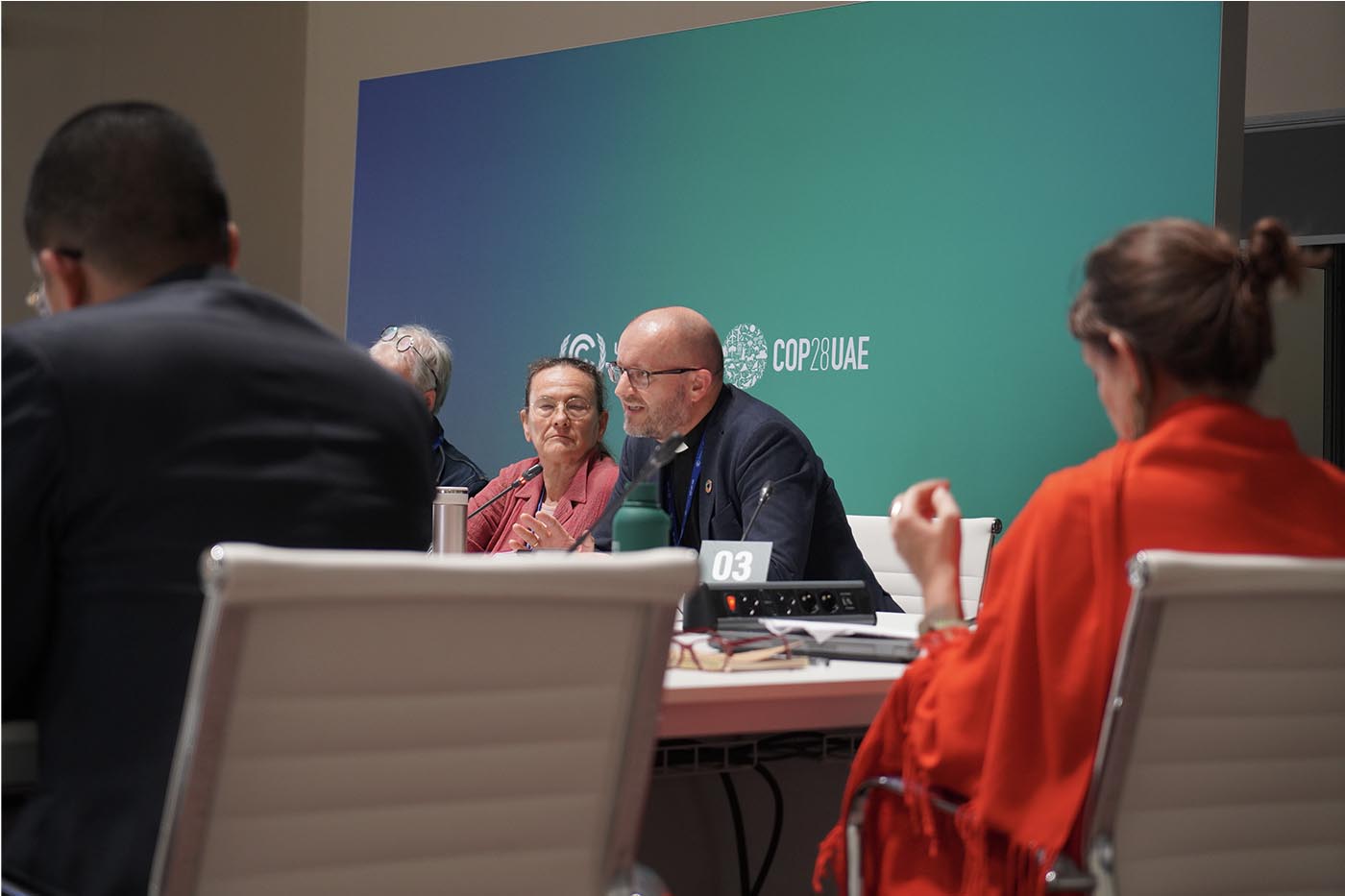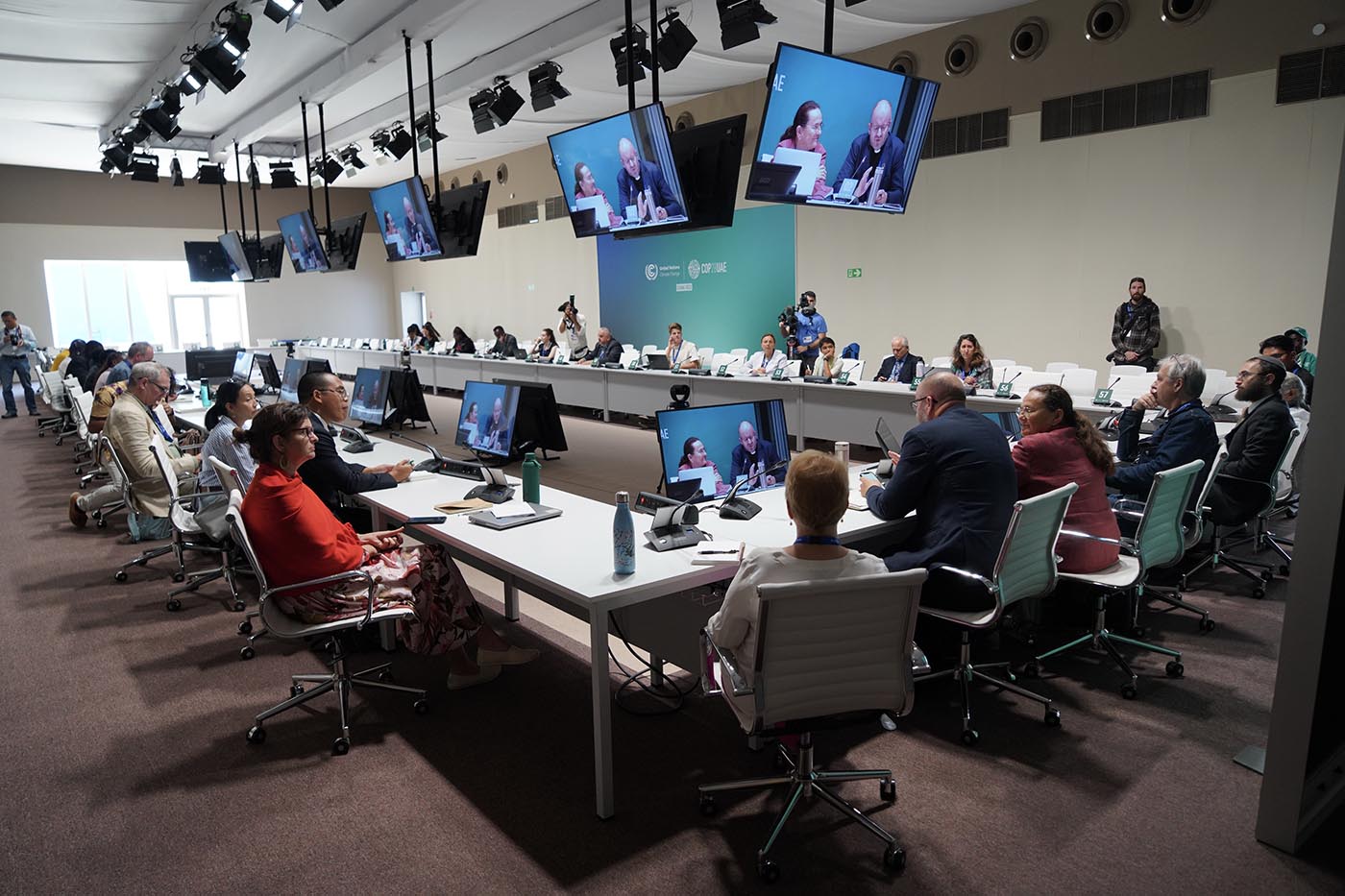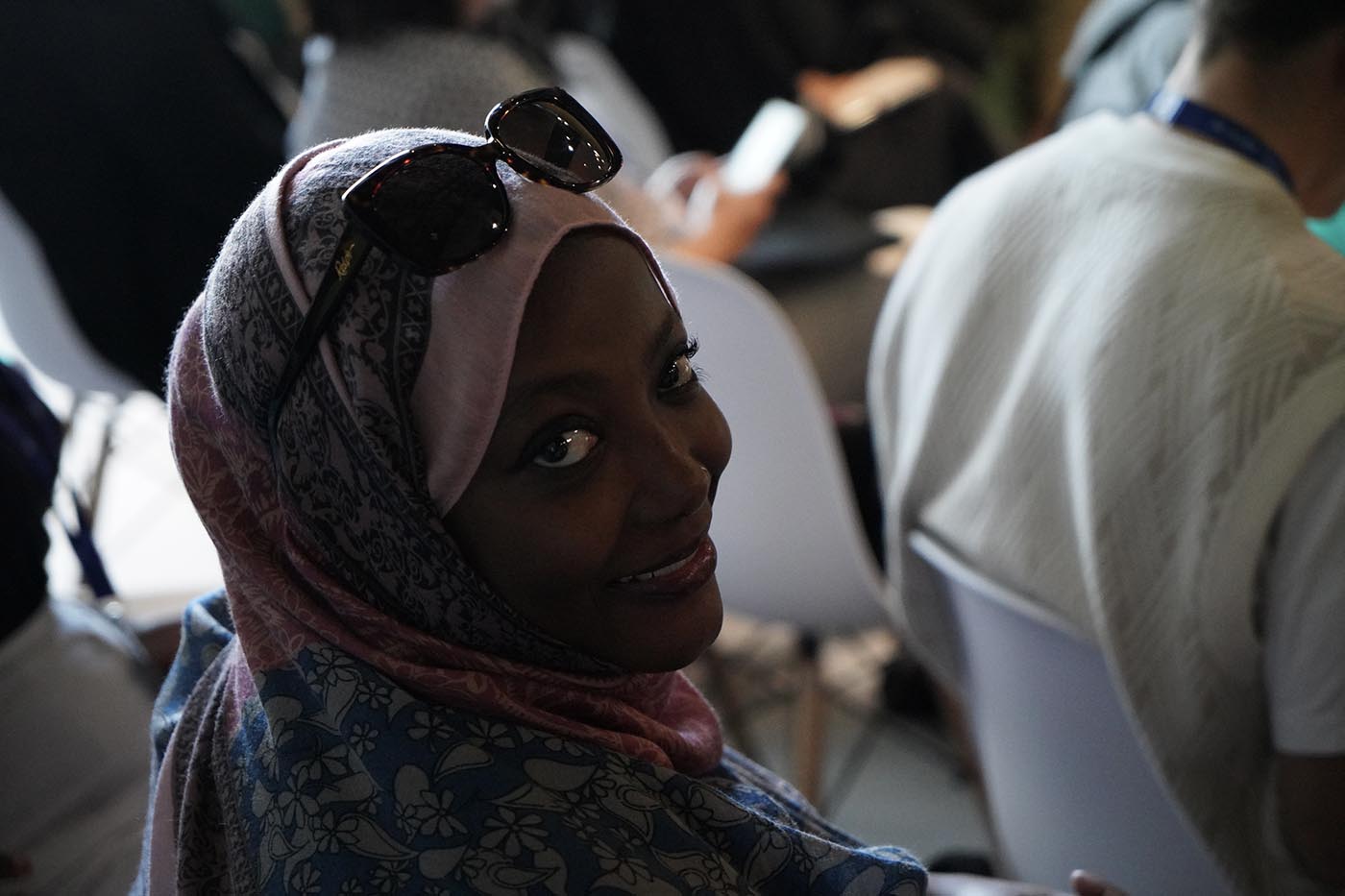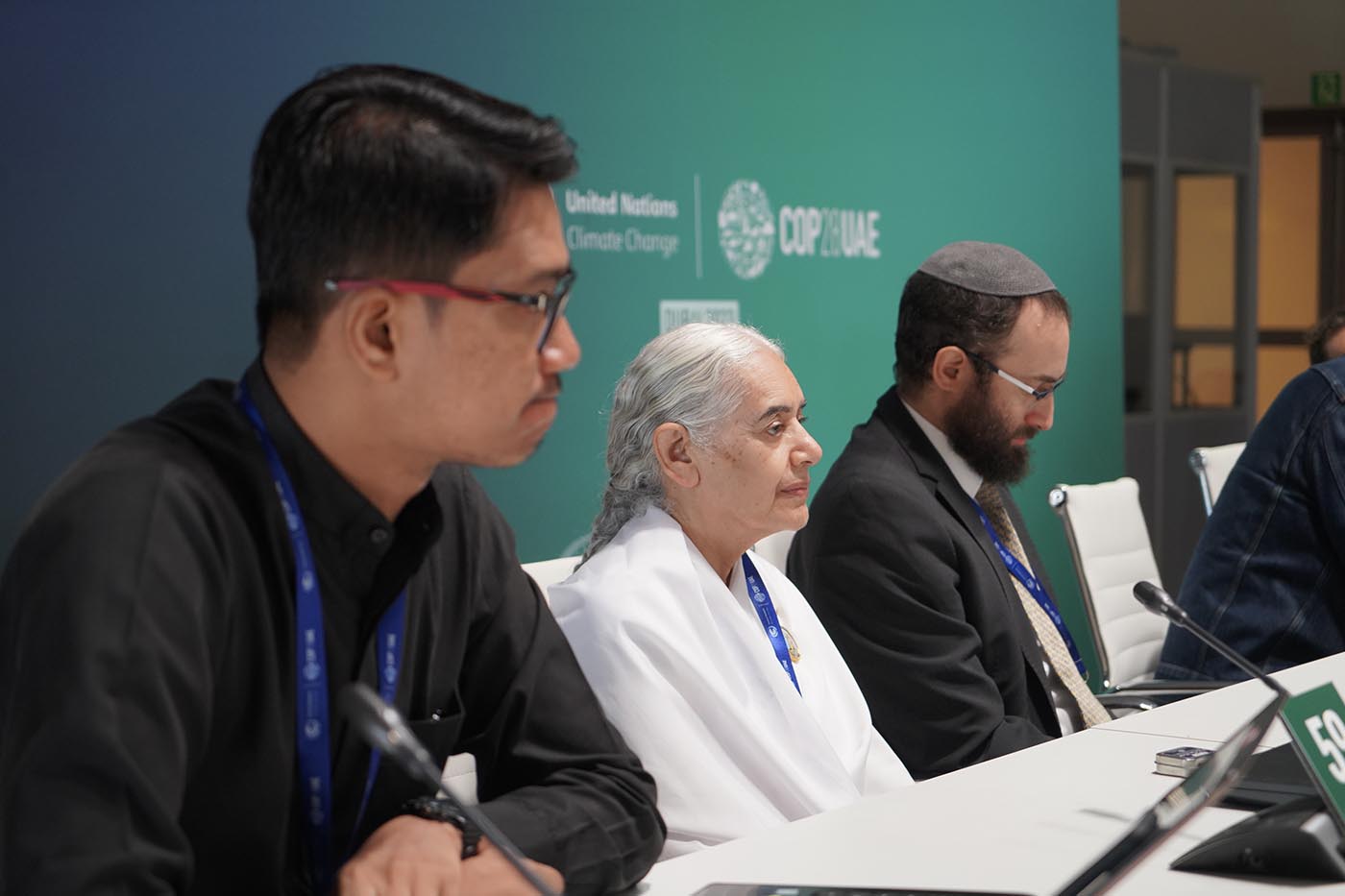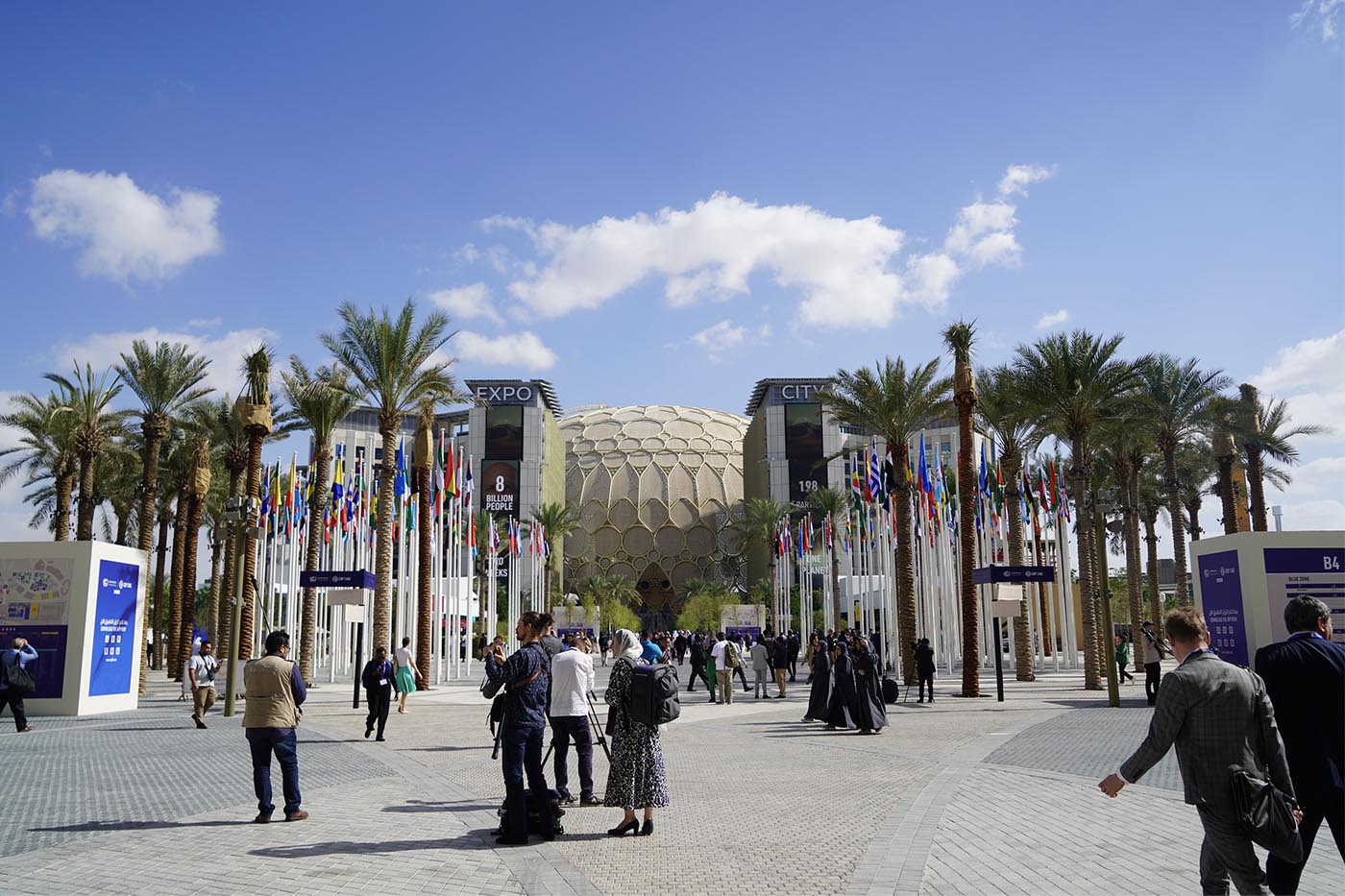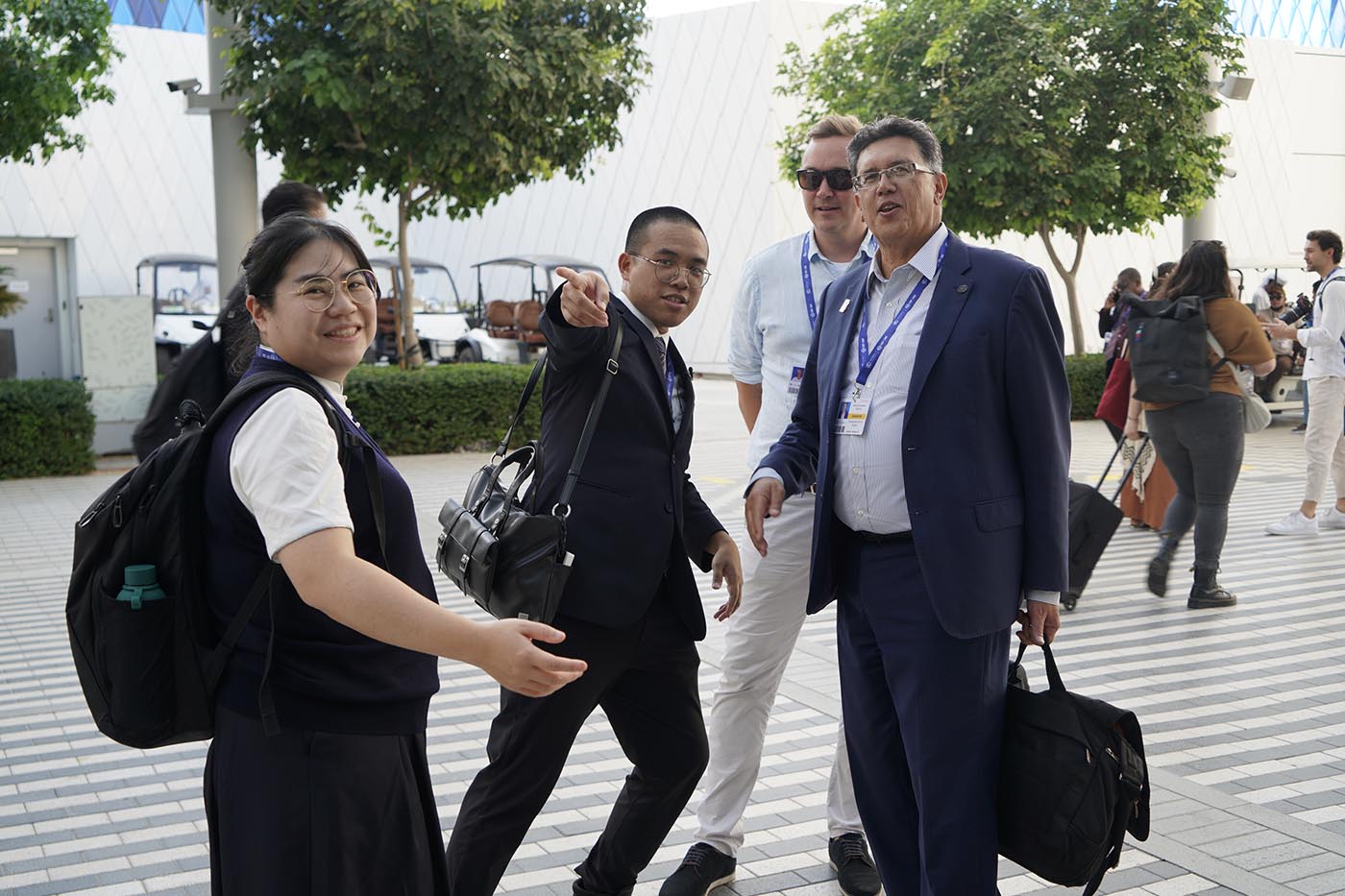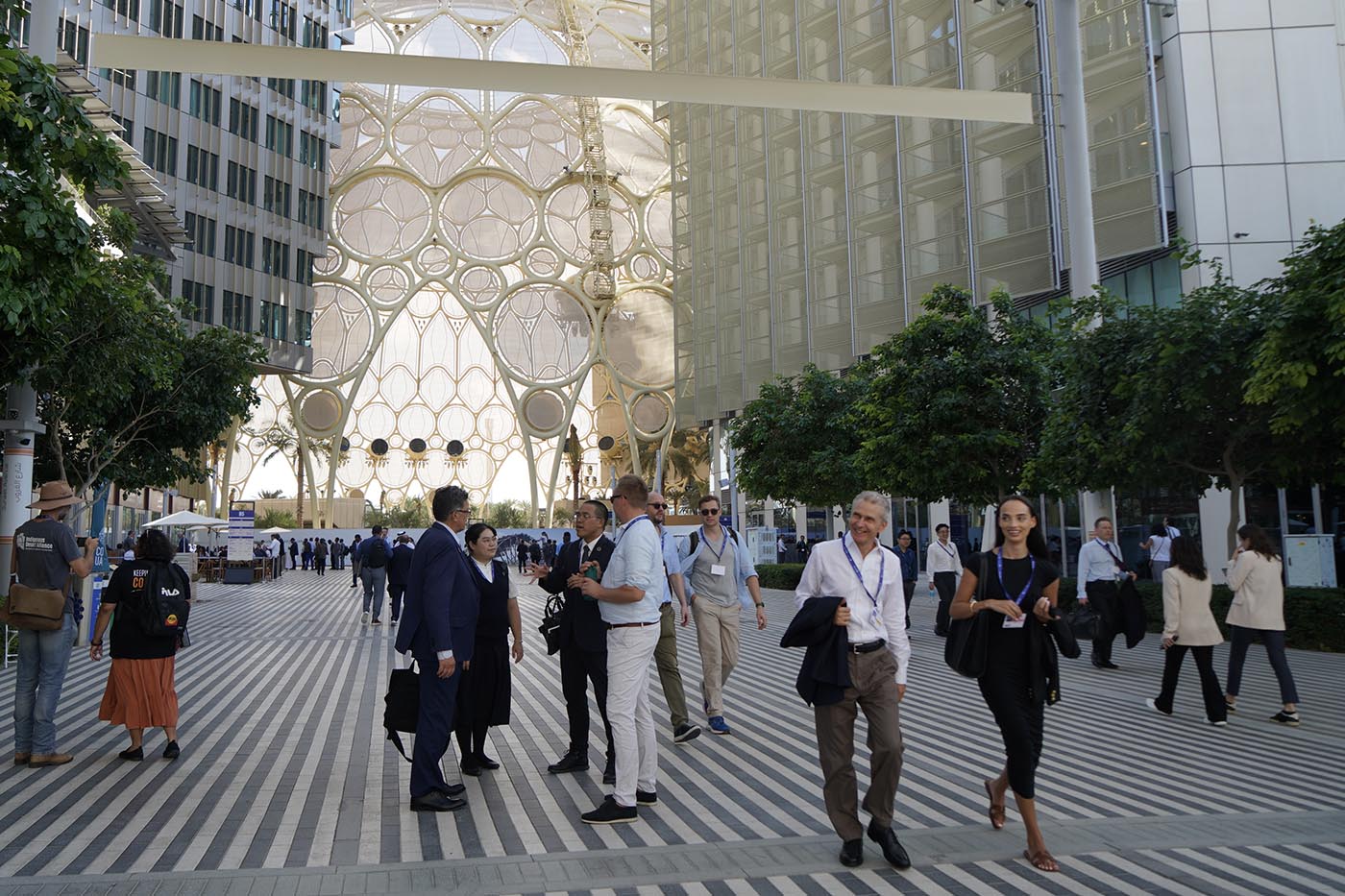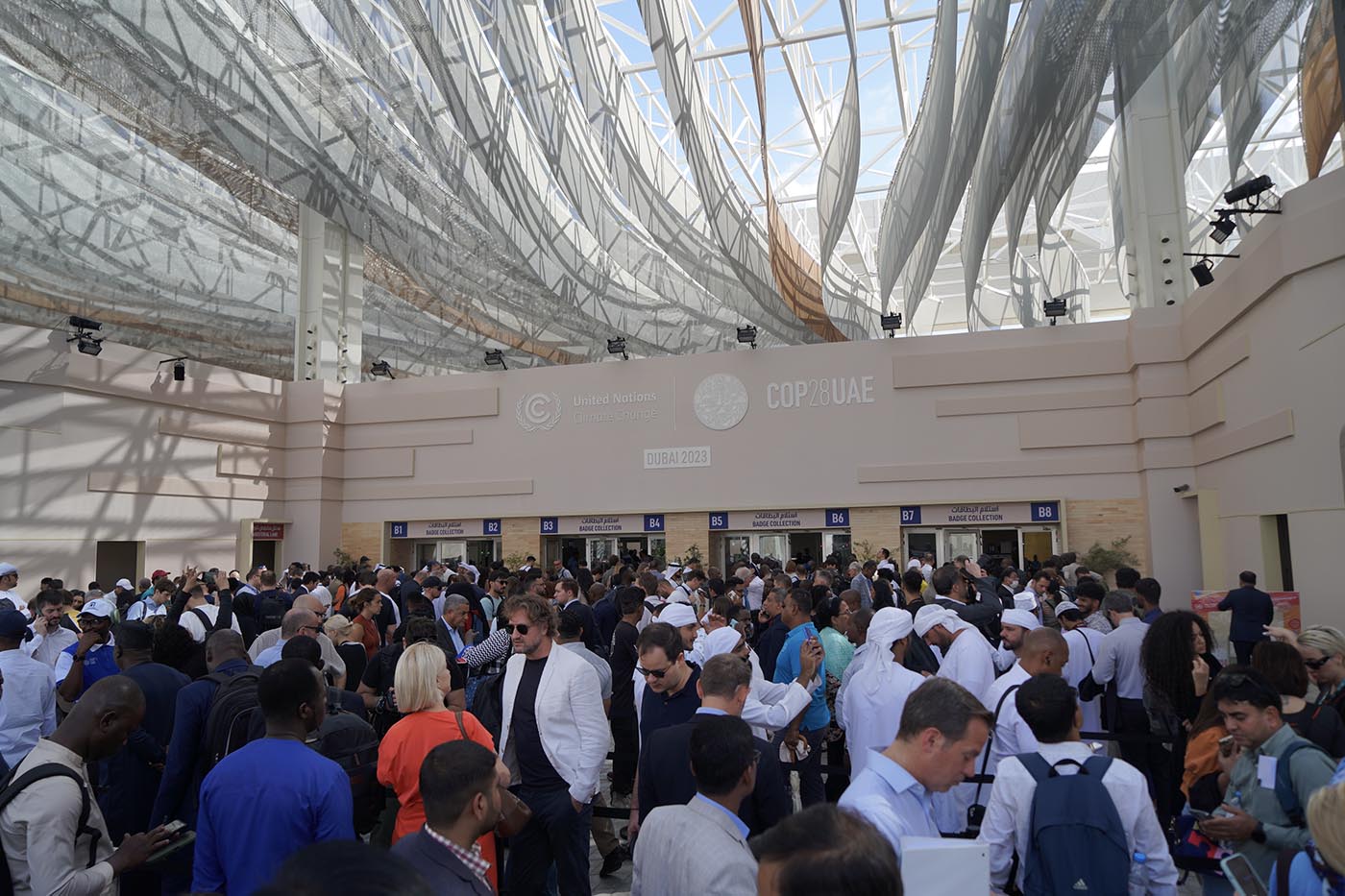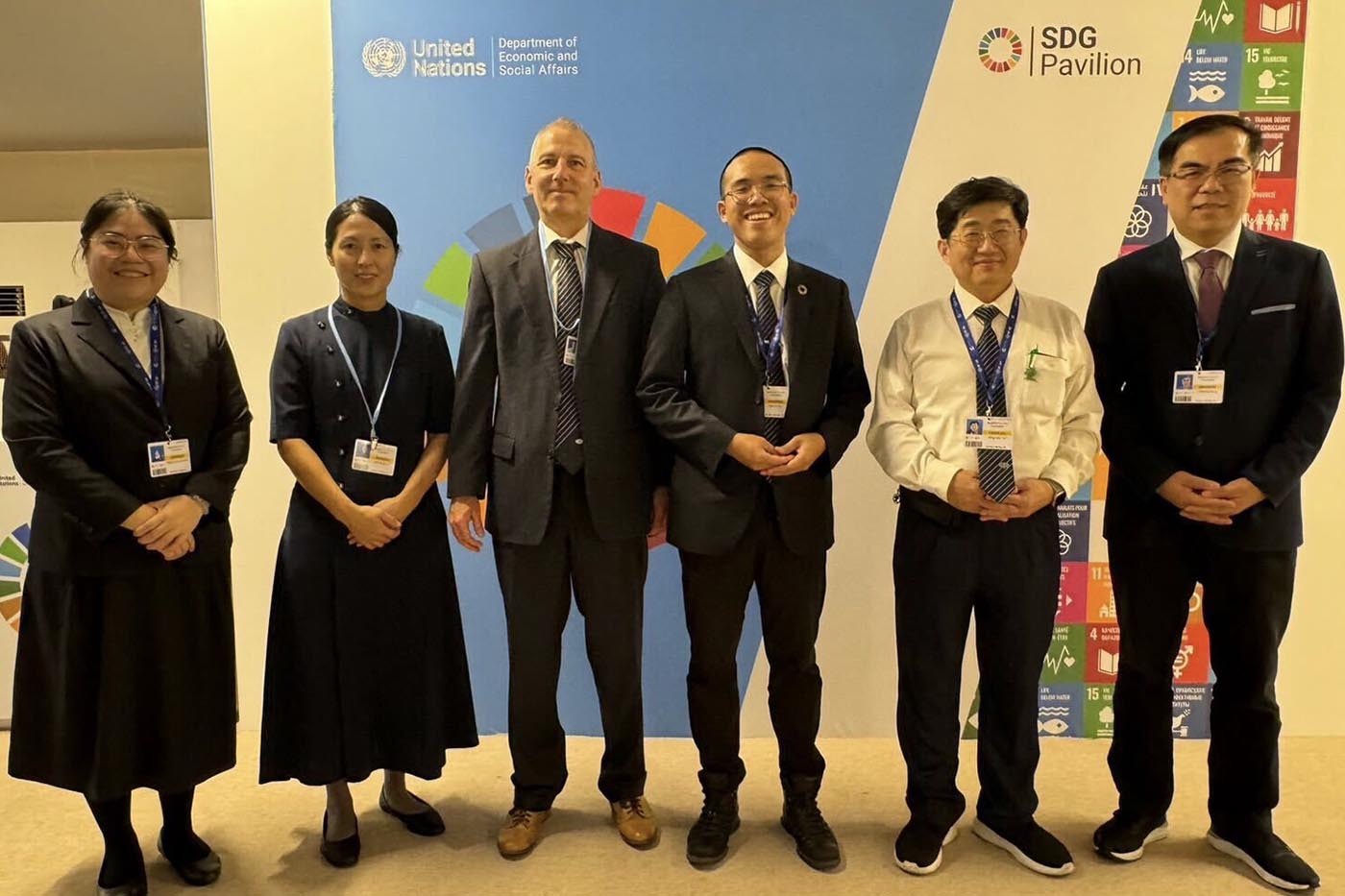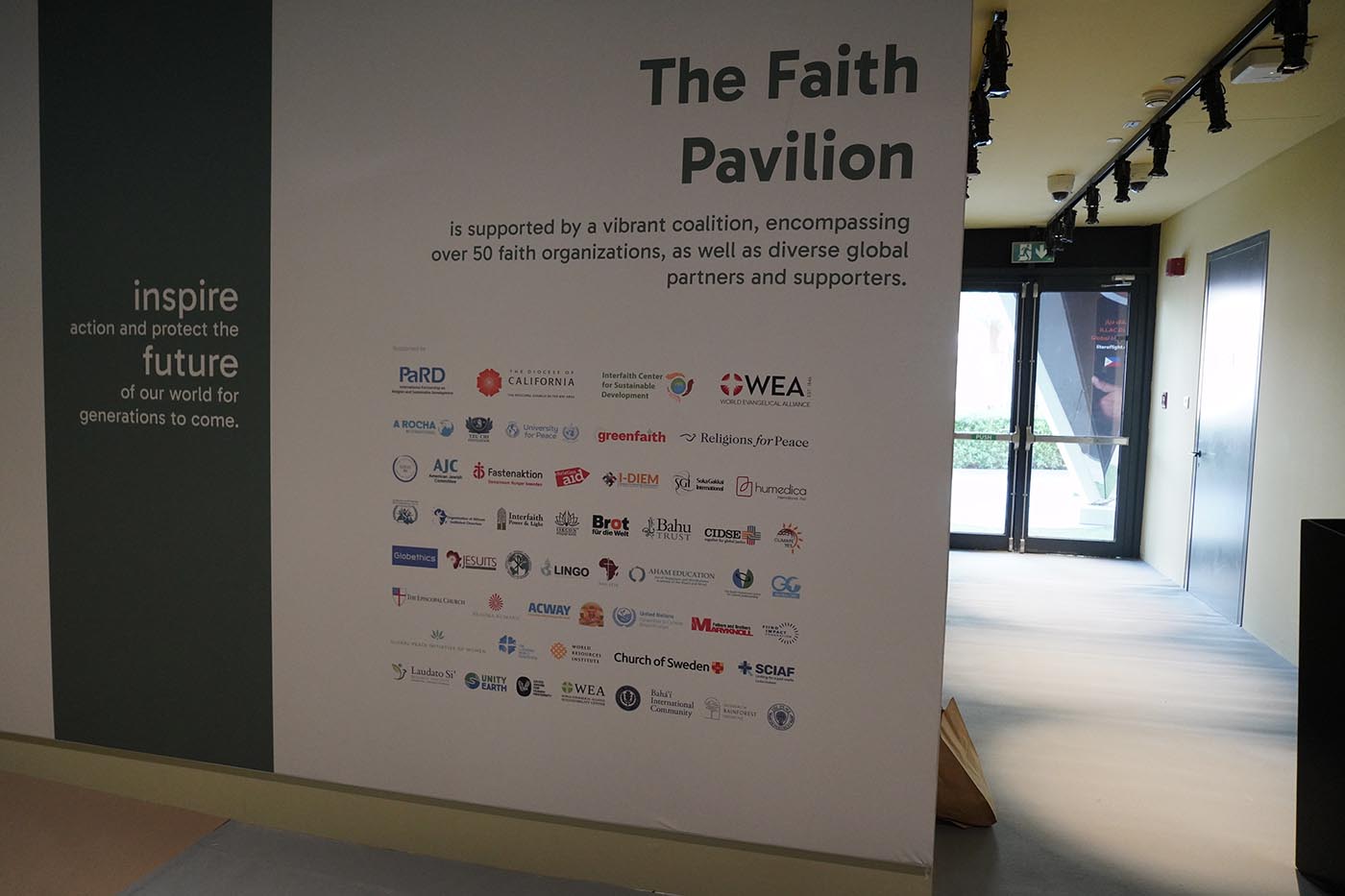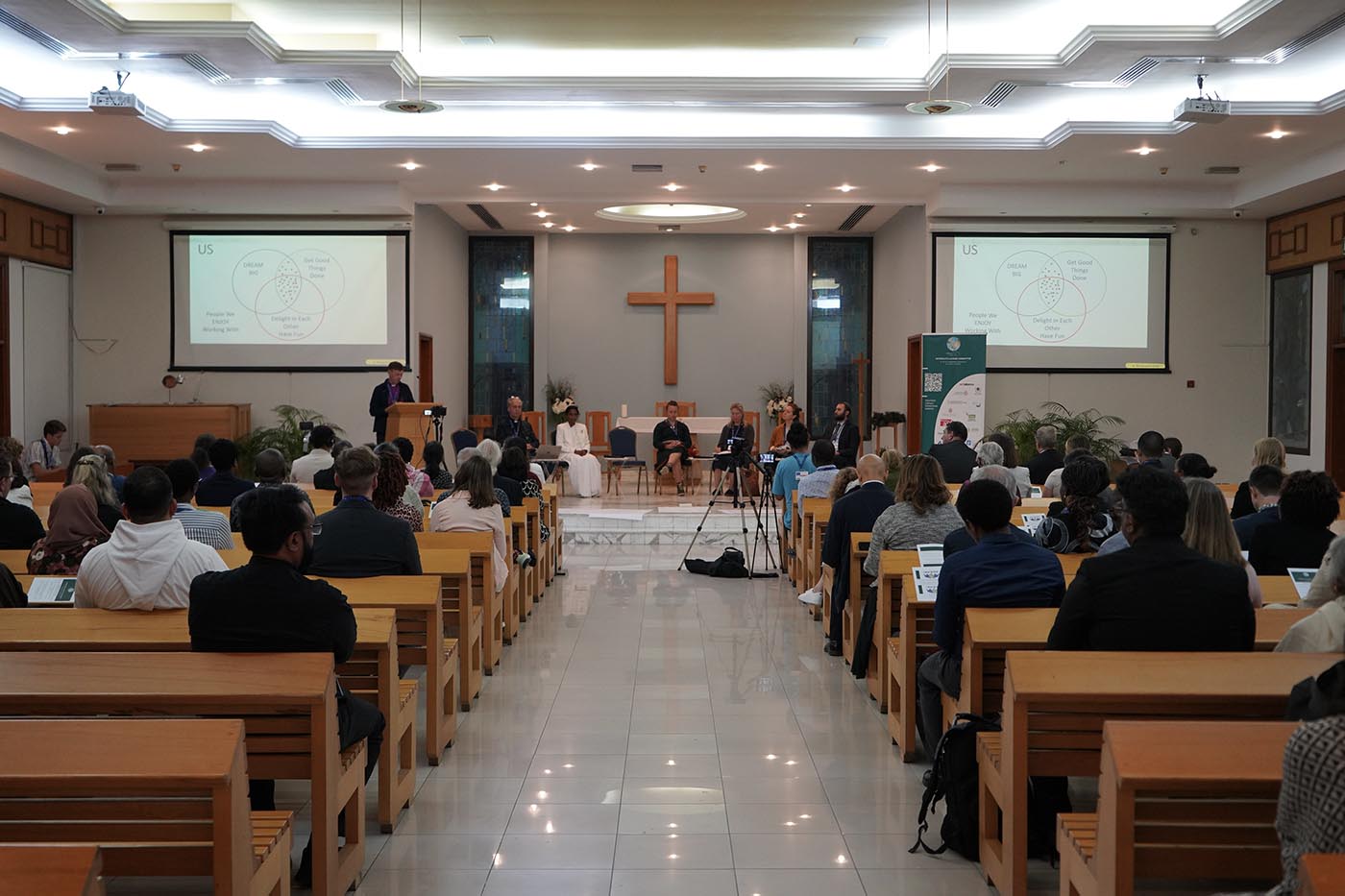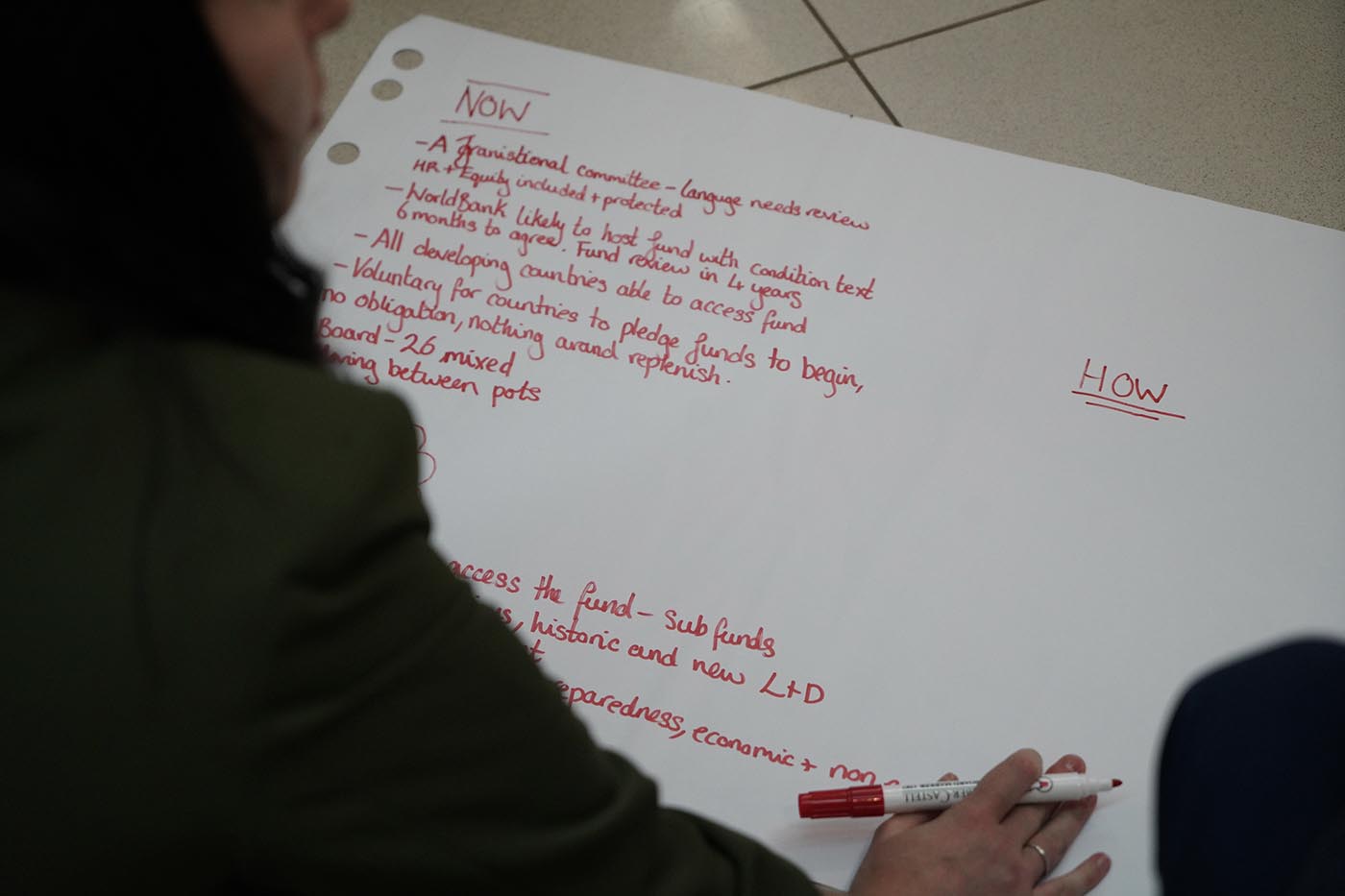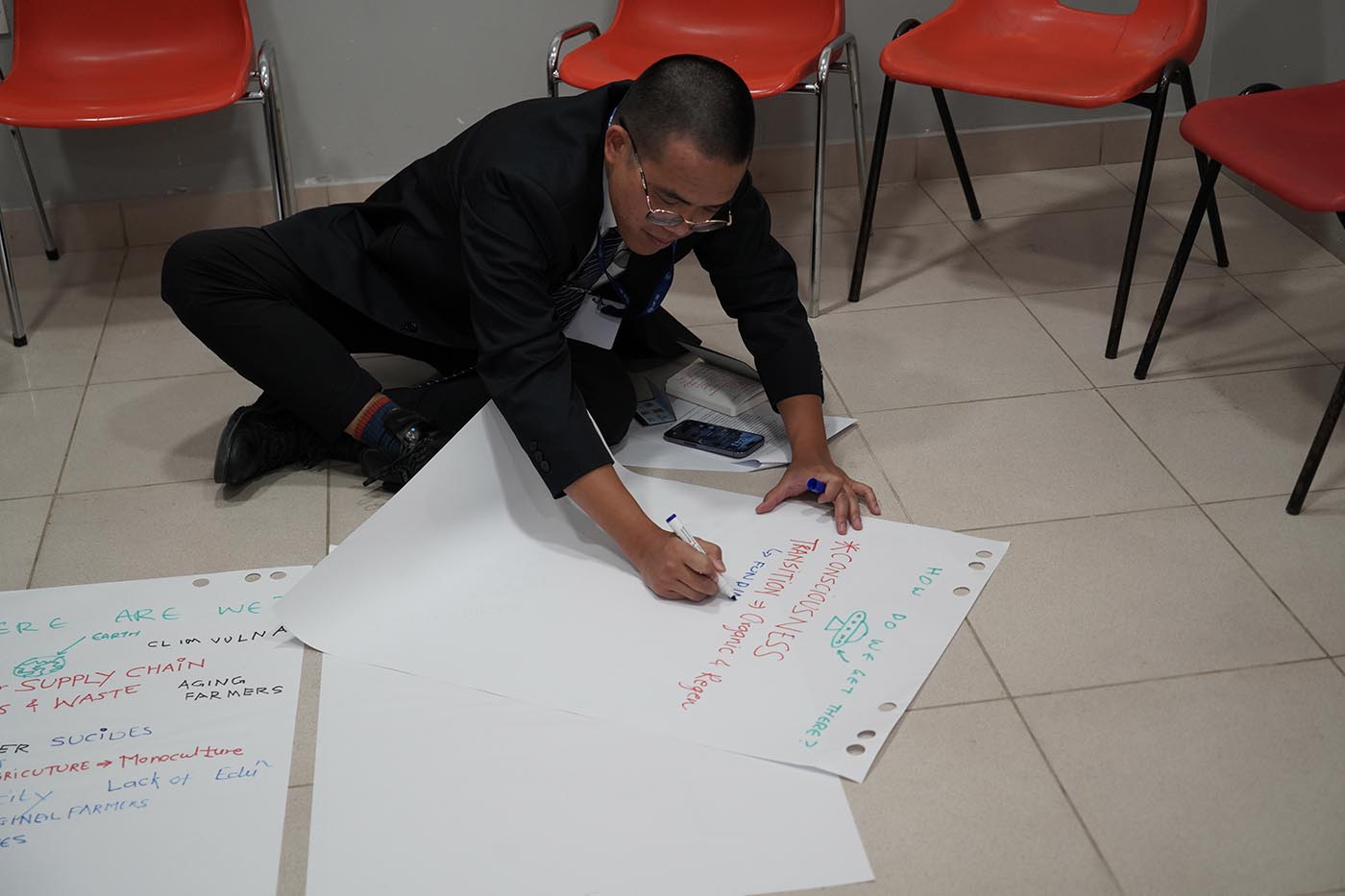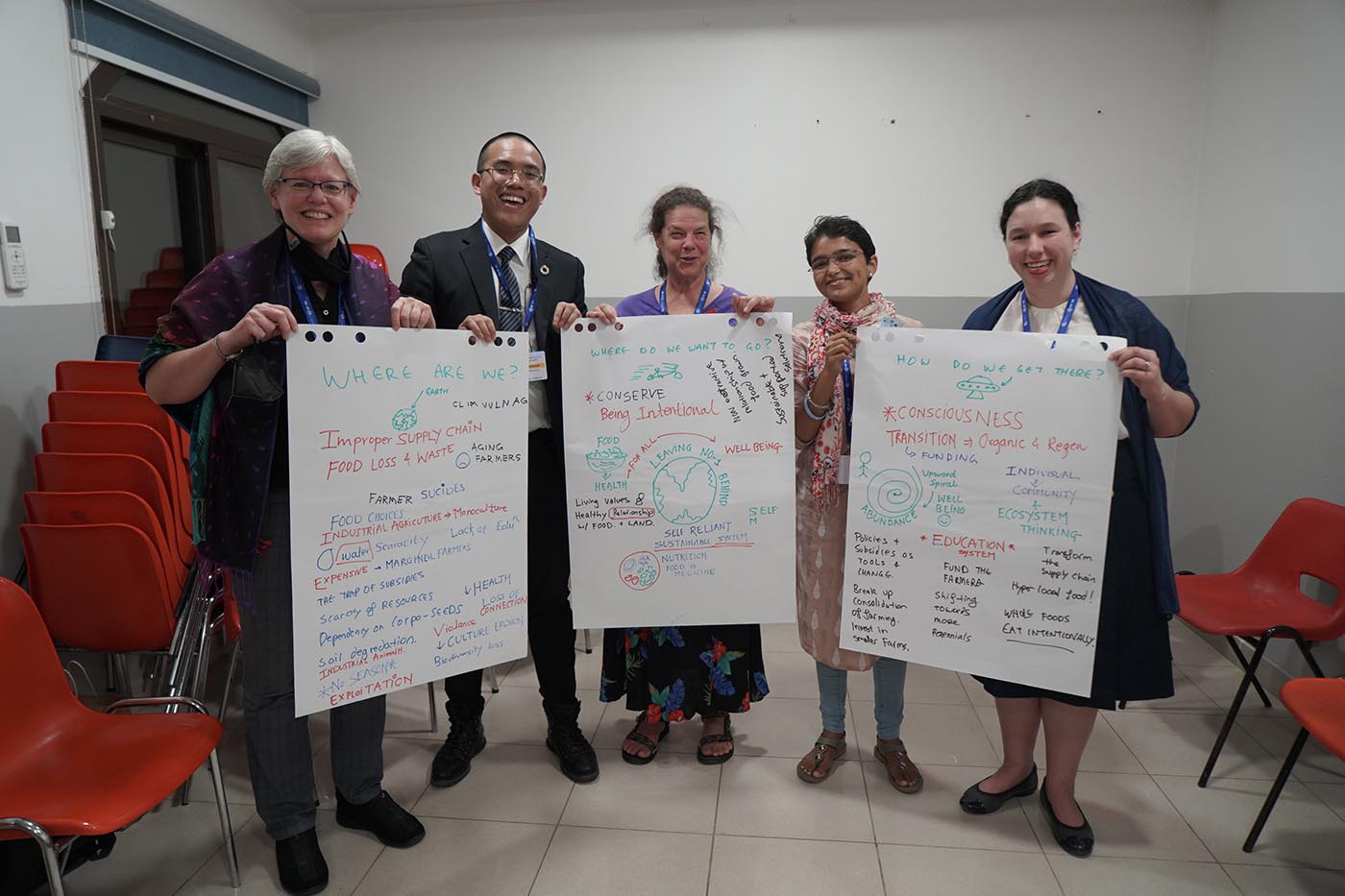UNITING THE WORLD TO TACKLE CLIMATE CHANGE
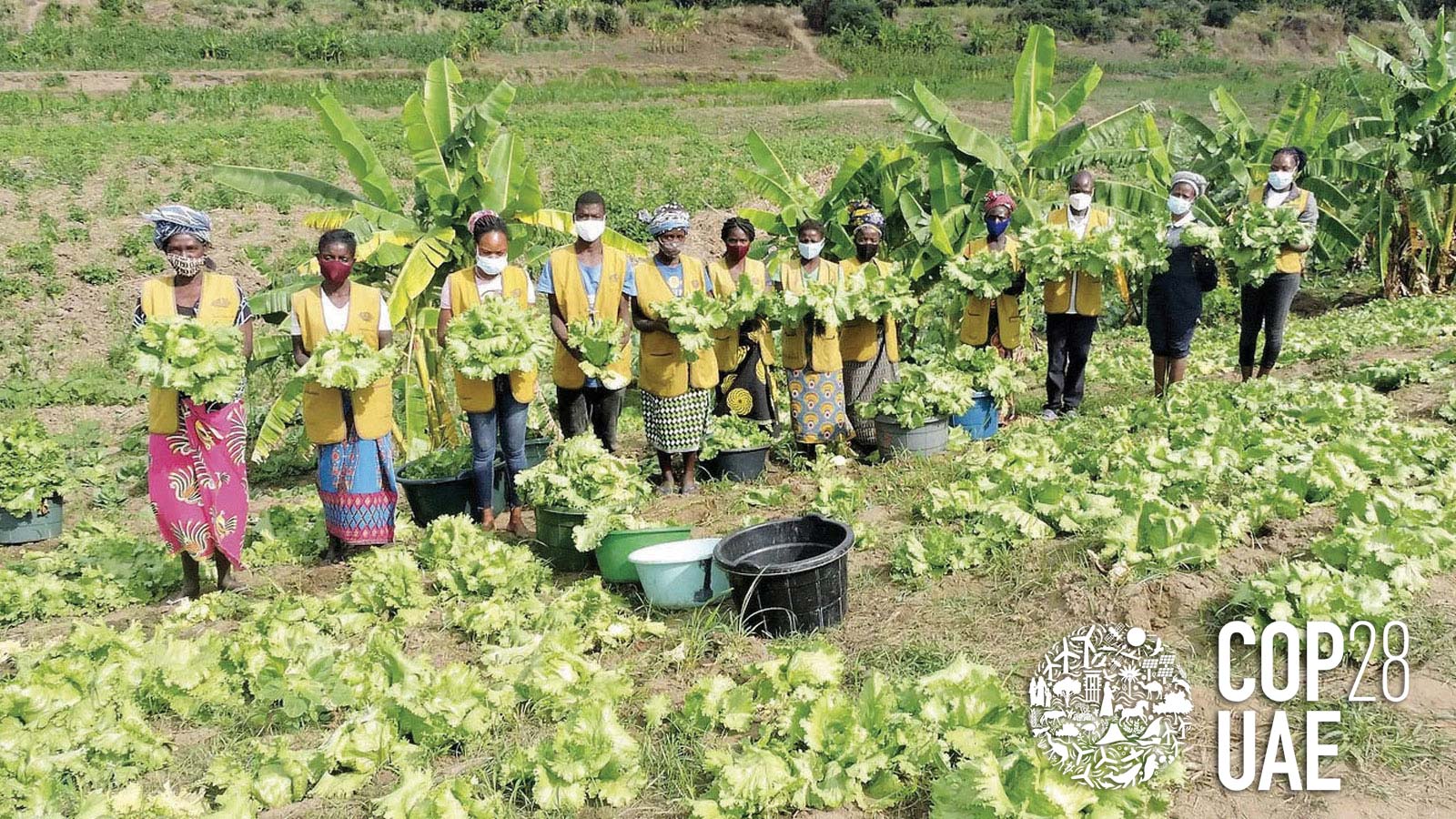
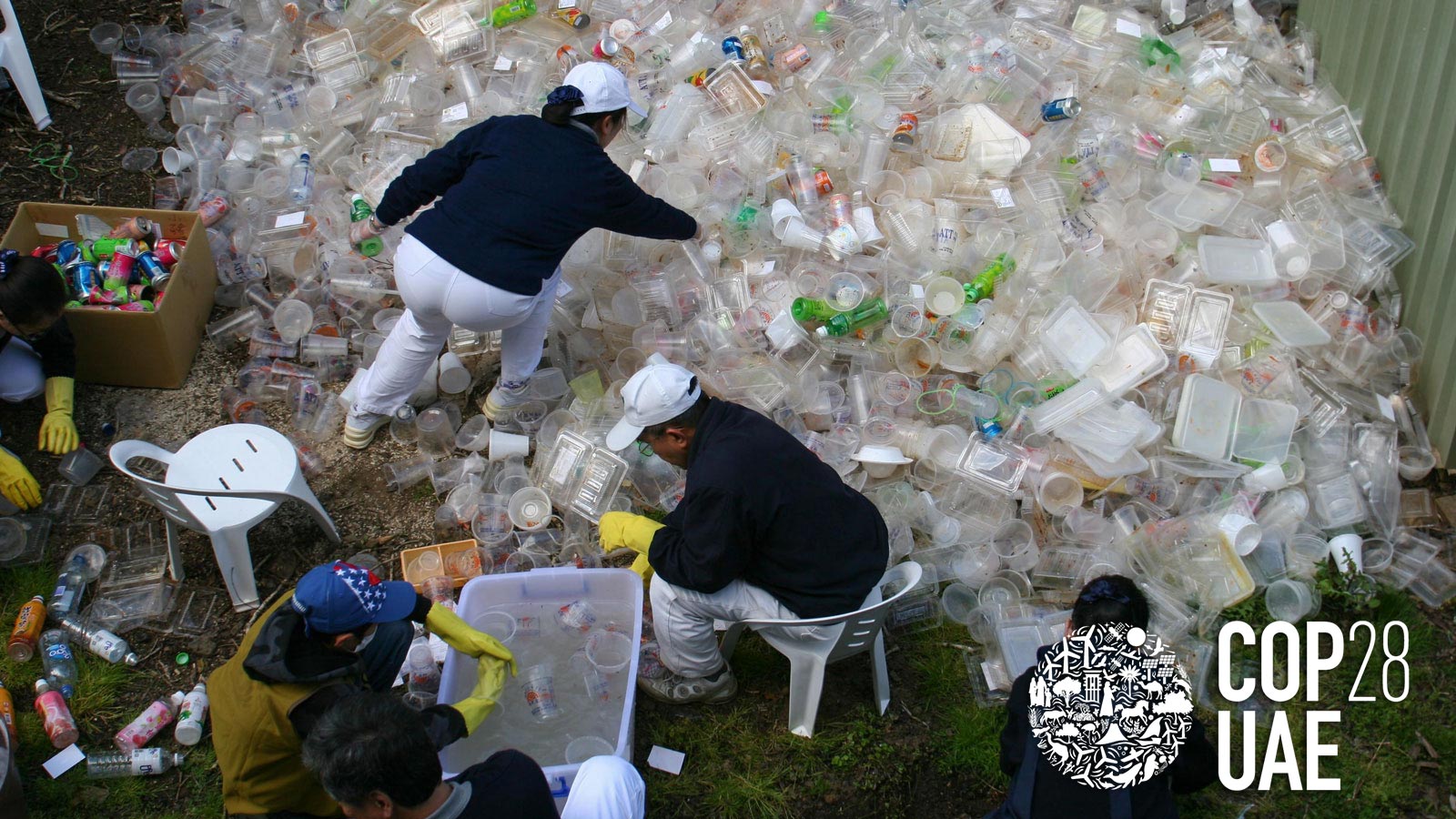
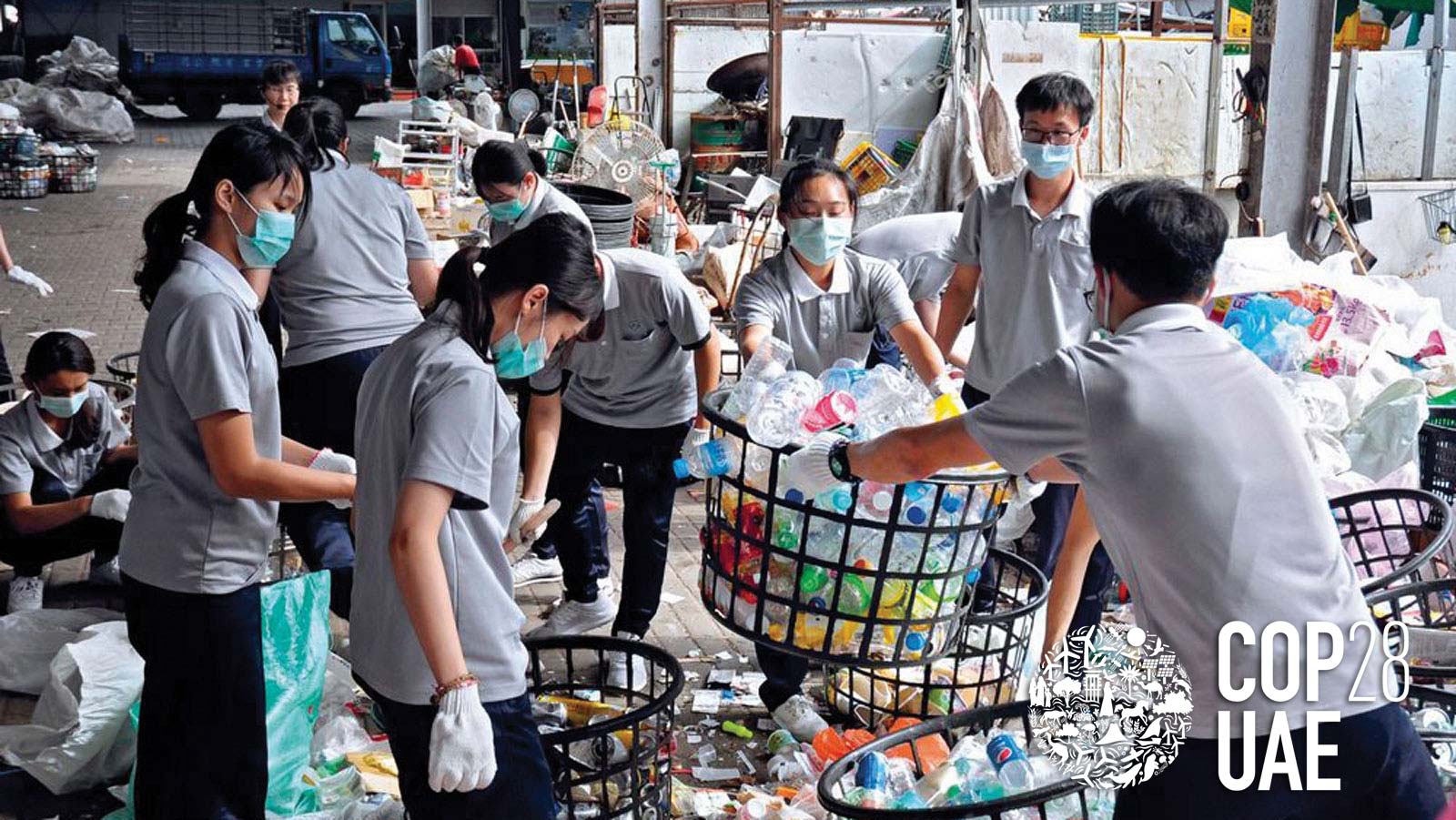
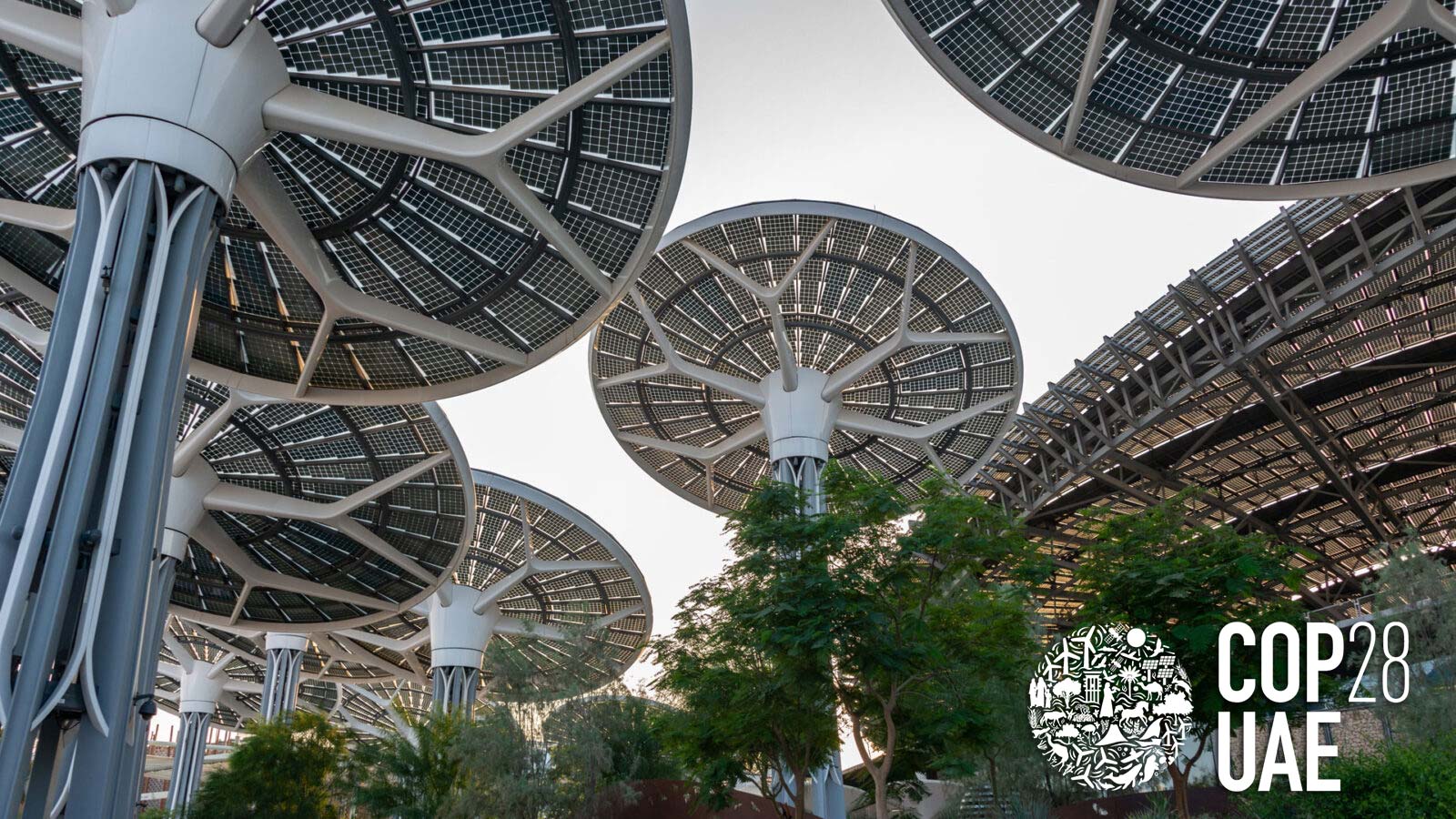
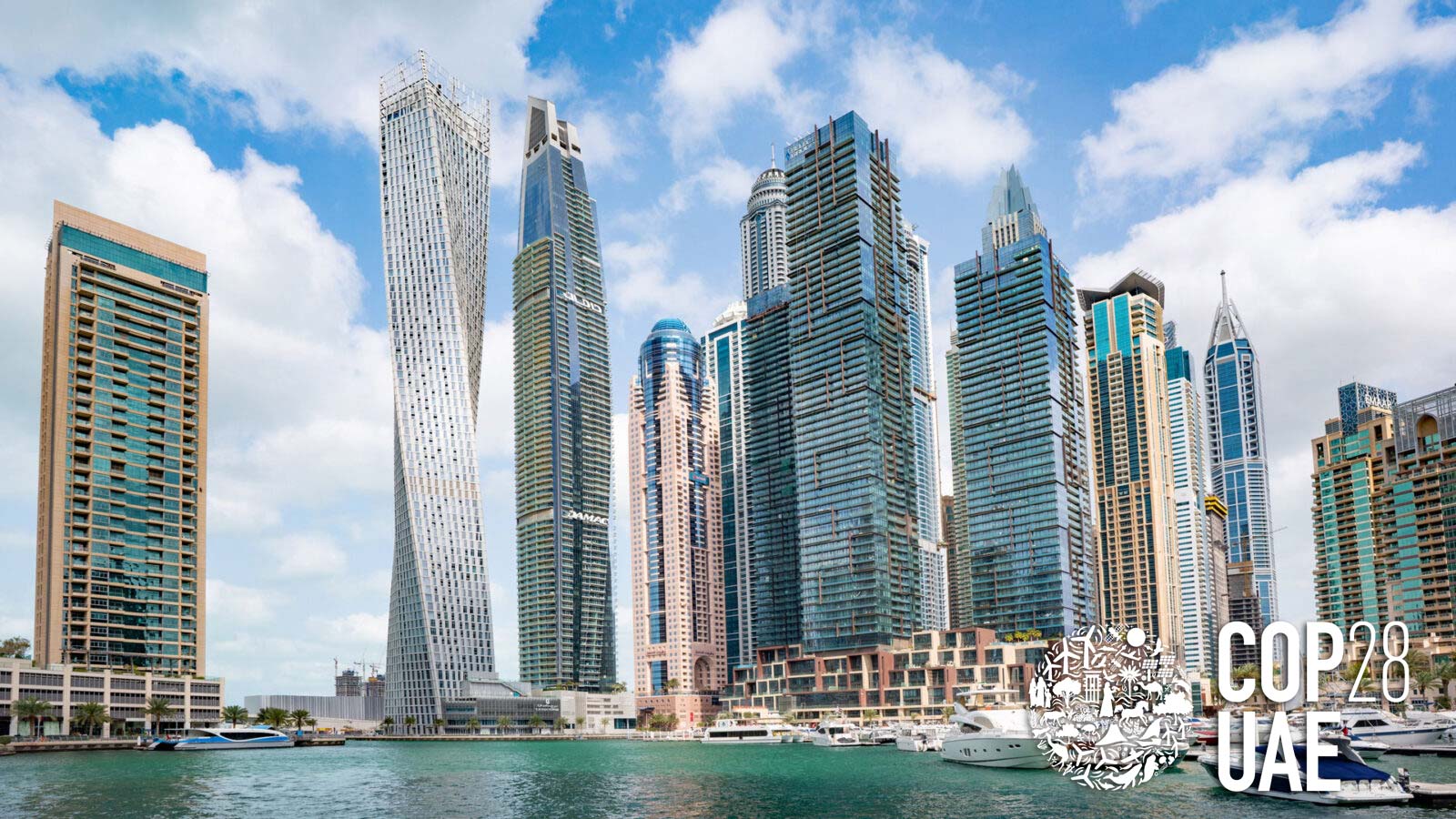
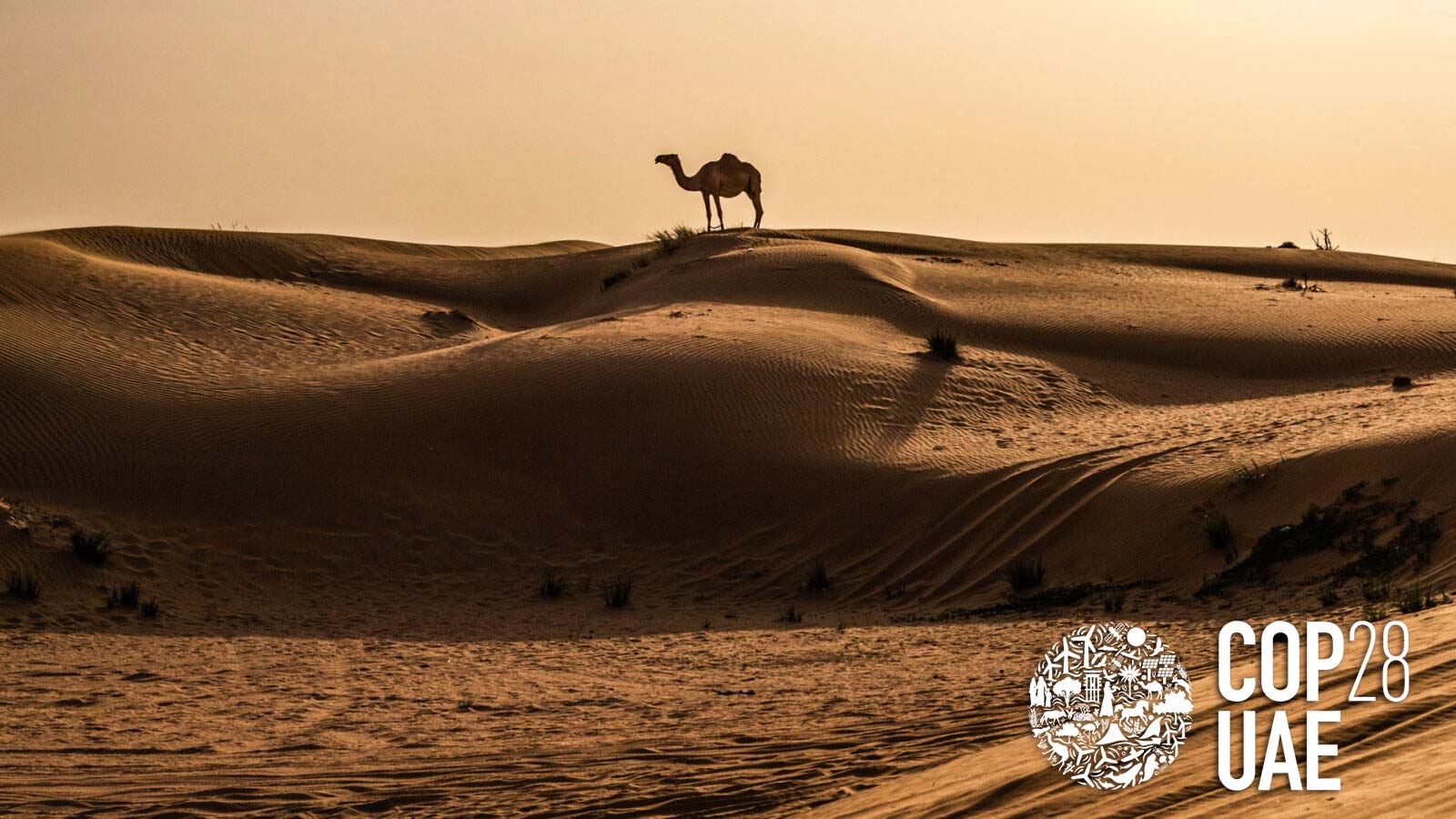
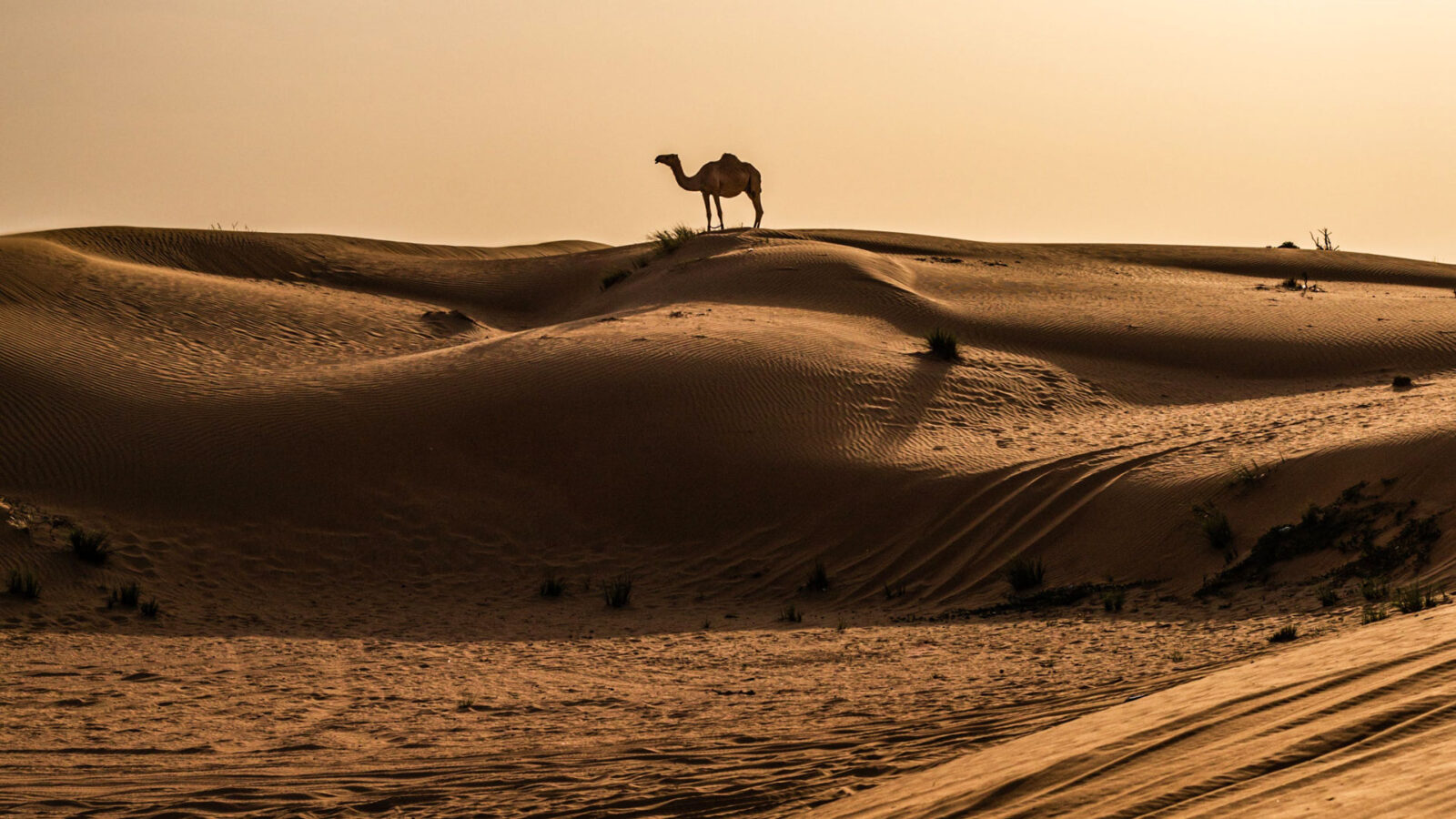
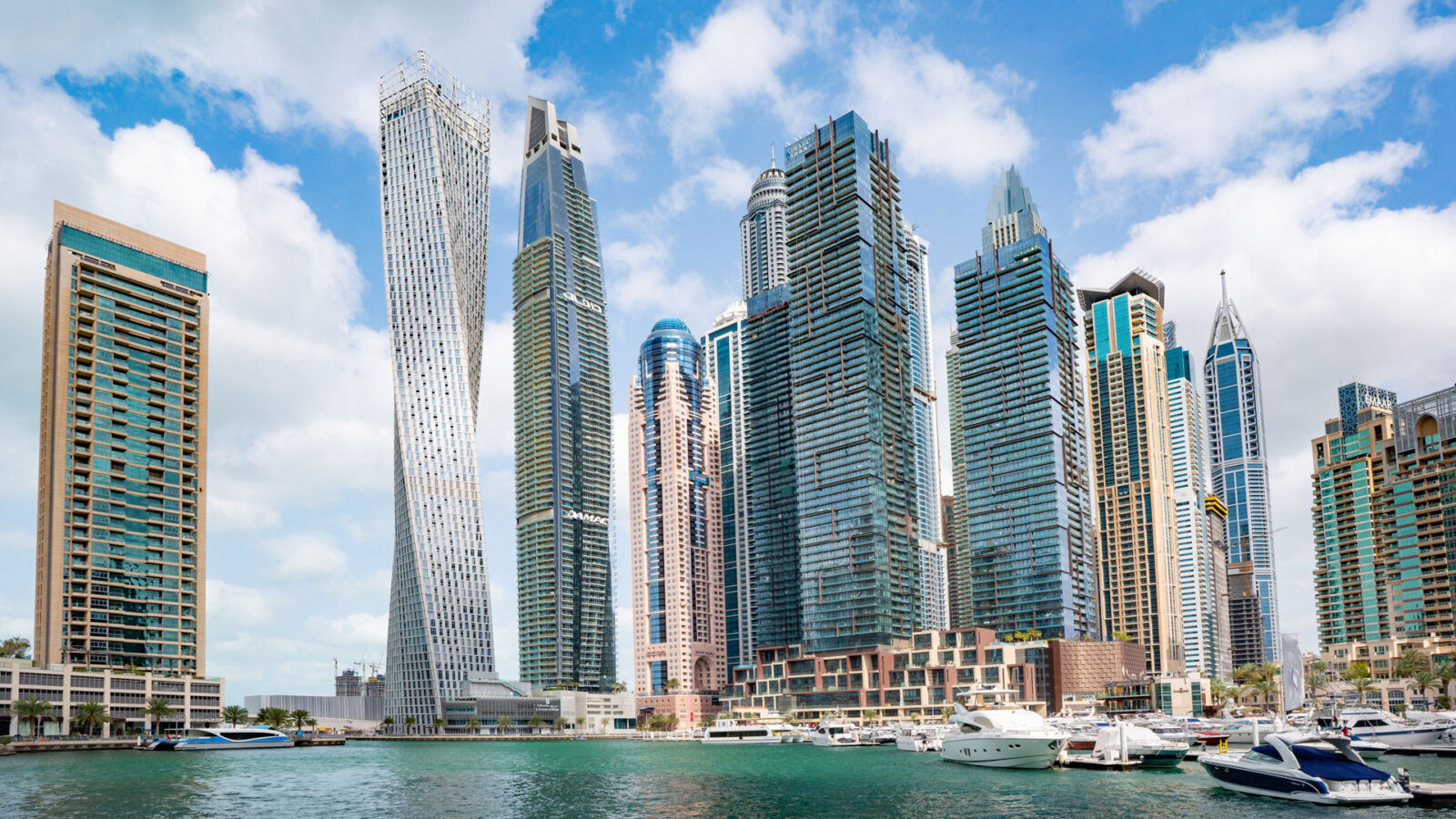
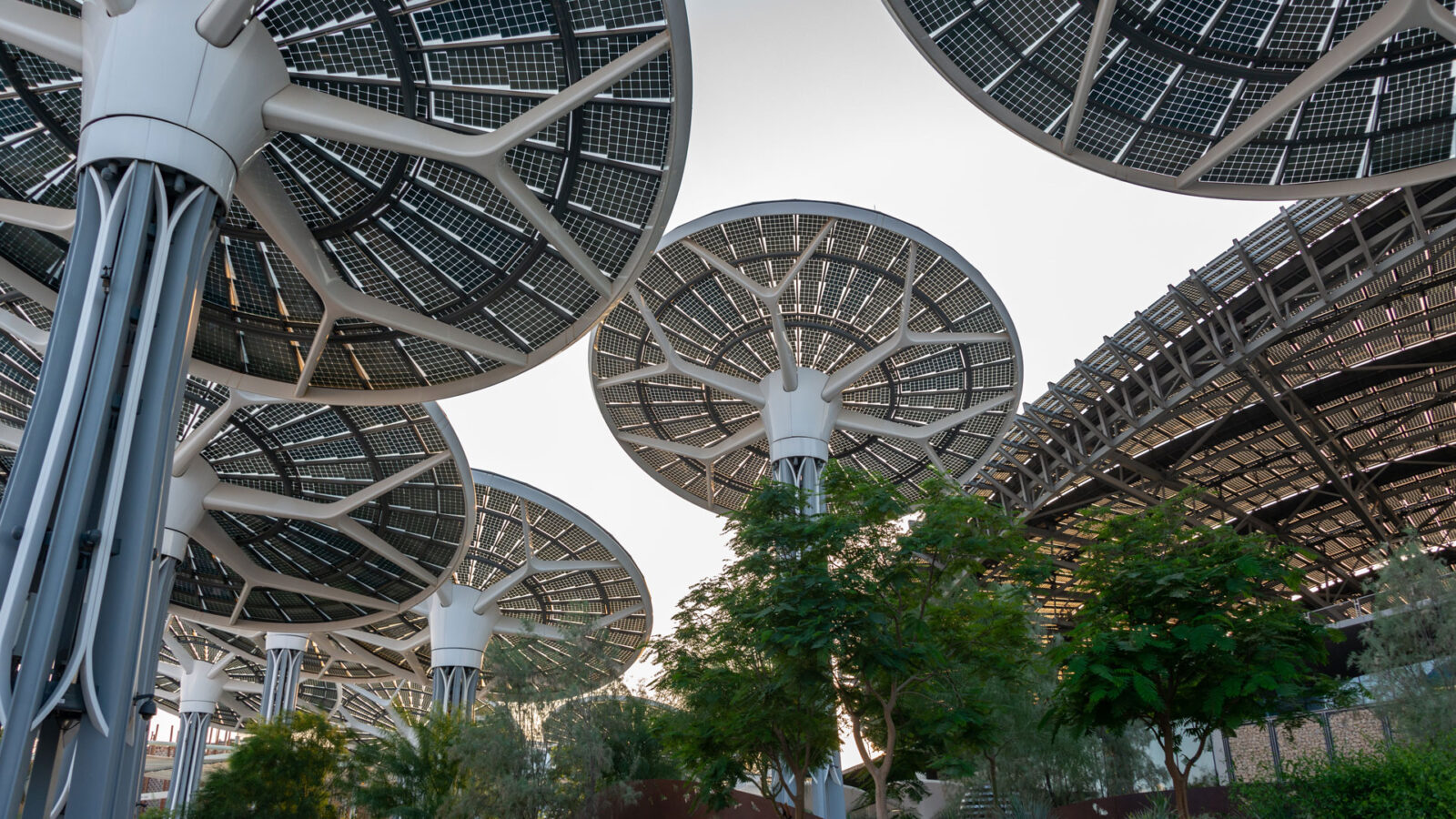
UNITING THE WORLD TO TACKLE CLIMATE CHANGE
Tzu Chi participating in COP28
The Buddhist Tzu Chi Foundation is partaking in COP28 in the Expo City Dubai, to join in on dialogue surrounding action and collaboration.
Videos
Stay up to date on the latest video interviews and stories from COP28.
Events
Learn more about the events and talks that will be happening at the COP28 and follow along to see what we’re accomplishing:
Informal Interfaith Gathering in the Spirit of Talanoa Dialogue @COP28
3:30 – 8:00 pm GST – Christ Church Jebel Ali
More Info
Talanoa is a word used in Fiji, Tonga, and Samoa, to describe an inclusive process of sharing stories and experiences as a crucial problem-solving tool. This year, Frank Bainimarama, President of COP23 and Prime Minister of Fiji, has introduced this concept to us all so we can work together on these most challenging issues.
The methodology of a Talanoa Dialogue leads participants to address the following questions: “Where are we?” / “Where do we want to go?” / “How do we get there?” As faith communities engaged in climate action all over the world, the Talanoa Dialogue guides us to discuss climate challenges and solutions: where we are; where we want to go; and how we get there.
This gathering also aims to provide a nourishing and hopeful atmosphere for climate justice advocates at the opening of COP, as well as space to look at solutions from different angles. This interfaith gathering in the spirit of the Talanoa Dialogue will also offer an opportunity to create an Interfaith Talanoa Call from the voices present – expressing concerns, demands, and hopes, to be delivered to the UNFCCC Executive Secretariat.
Organized by: Interfaith Liason Committee, Buddhist Tzu Chi Foundation
A Health Imperative/Call to Action for the Health Ministerial, featuring leading Cities: We need Healthy Plant-rich Diets
11:15 am – 12:00 pm GST – Food4Climate Pavilion
More Info
Greening hospitals is not enough. We need health ministers to lift up greater access to healthy diets for a sustainable future. This side event will bring together inspiring case studies from cities and health ministers, and share discussions from multiple faith traditions, youths, Indigenous Peoples, and the WHO, on the need for nutritious, plant-rich diets for resilient health, climate, and food systems.
Organized by: World Health Organization, ProVeg International and Buddhist Tzu Chi Foundation
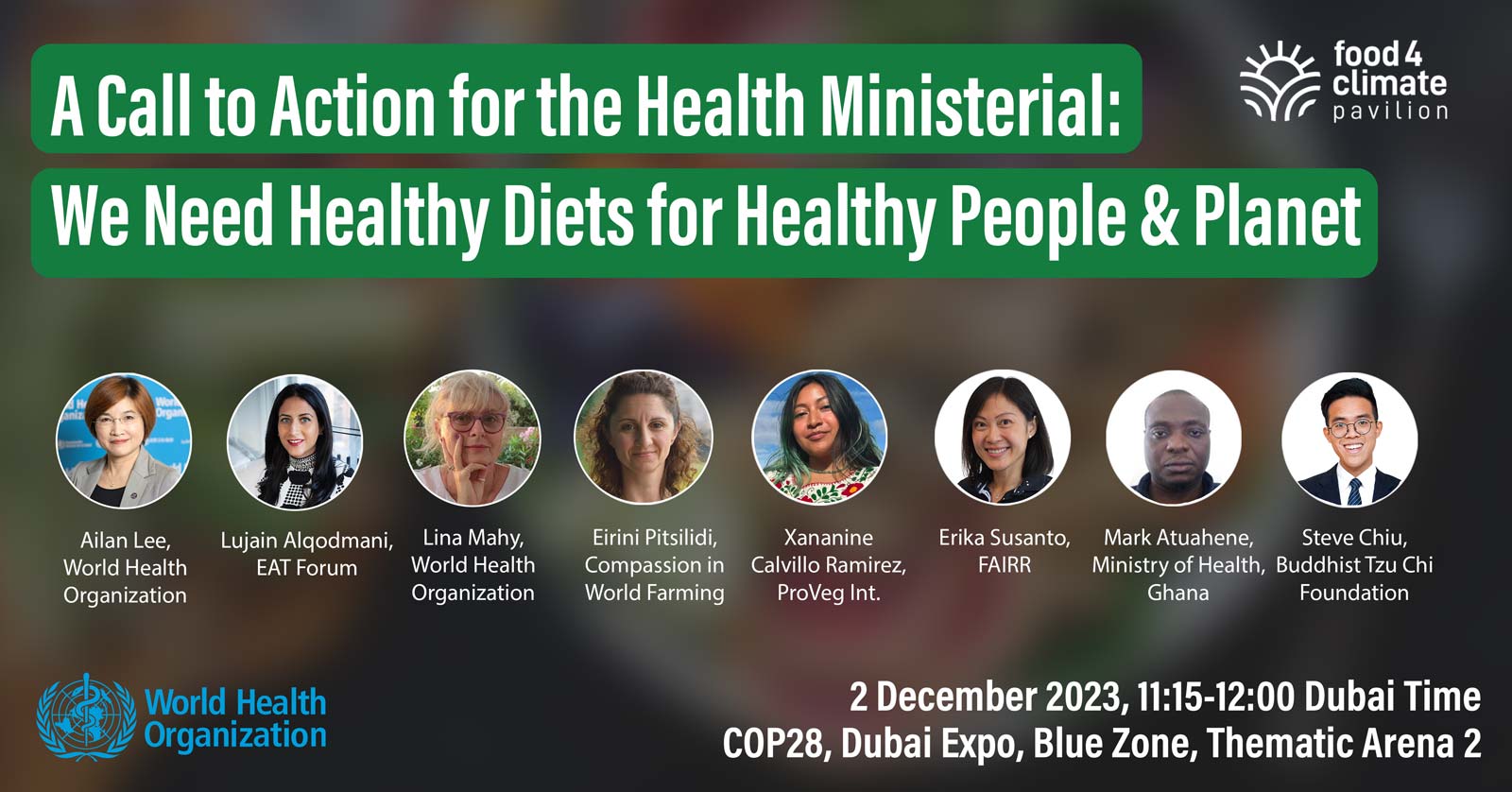
Interfaith Feminist Climate Justice for the Human Right to a Healthy Environment
10:30 am -11:30 pm GST – Faith Pavilion
The effects of our changing climate on humanity are profound.
Impacted by climate change-induced disasters, beliefs, whether spiritual in nature or otherwise, often depict Mother Earth as a celestial maternal entity of giving and sustenance; our one true home. Yet, humanity’s extractive practices continue to damage the environment with far-reaching effects, leading to inequities that violate one’s human rights.
Between 2030 and 2050, climate change is projected to cause 250,000 additional yearly deaths from malnutrition, malaria, diarrhea, and heat stress, having an amplified gendered impact on climate-vulnerable communities with less robust health infrastructures.
This event will host an interfaith and intergenerational panel to share the positive actions rooted in a values-based approach that are being undertaken in climate-vulnerable communities globally for creating a healthy society and a healthy environment.
Organized by: Green Hope Foundation
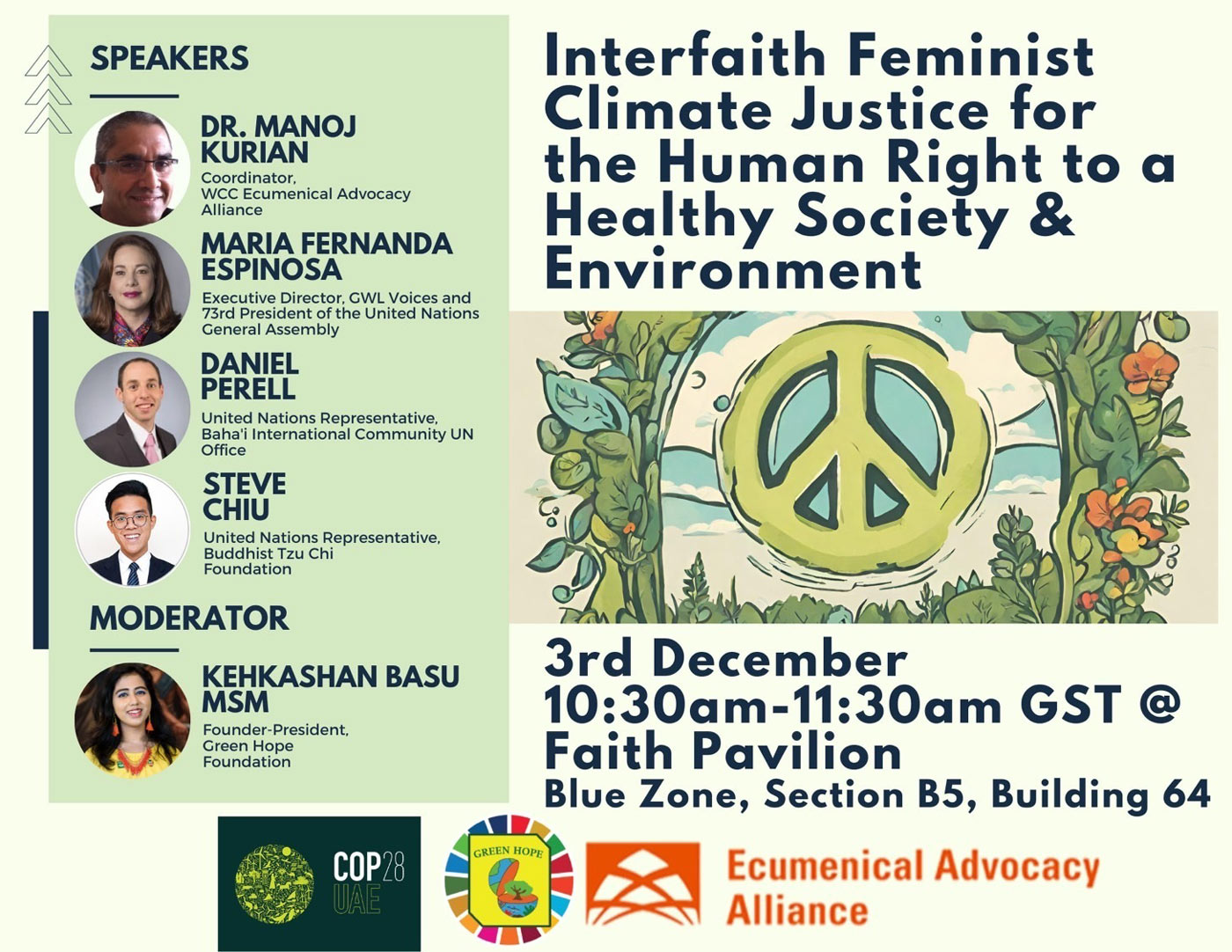
“Greening Education through Clean Energy Innovation to Implement Climate Justice”
09:00 – 10:45 am GST – Global Alliance for a Sustainable Planet Pavilion
Climate change is deeply intertwined with social injustices – working as an inequality multiplier that further oppresses racialized communities, indigenous people, children and young people, and women and girls, in all their diversity, as well as other stakeholders in climate-vulnerable communities, which includes affecting access to education.
Innovation in clean energy technology that drives the greening of education can substantively uplift those in climate-vulnerable communities suffering from loss and damage out of poverty, while ensuring access to green education, stopping land degradation, creating decent green jobs, and achieving a just transition to clean, renewable energy that leaves no one behind. This side event will discuss how we can facilitate the greening of clean energy innovation to address the extensive negative impacts of loss and damage through the lens of climate justice – the role that our most vulnerable stakeholders are playing globally – to ensure the greening of education at all levels of learning, from elementary school to higher education. This event will additionally share case studies of positive actions undertaken by underserved communities in all their diversity across the world to implement clean energy innovations that are creating positive impacts in greening education, thereby achieving climate justice.
Organized by: Green Hope Foundation
Food systems transformation: elevating healthy diets & protein diversification as climate solutions
01:15 – 2:45 pm GST – SE Room 7 (125 pax)
The science is clear: policy options are available. So, how do we bridge the gap between knowledge and action?
Food systems account for around ⅓ of total GHG emissions. Achieving the 1.5°C Paris Agreement limit will be unattainable without drastically changing the way we produce and consume food – particularly high-methane foods, like meat and dairy.
More than half of all diet-related emissions can be traced back to the production of animal products whose GHG footprint is twice as large as that of plant-based foods. Animal agriculture is also among the main drivers of deforestation and biodiversity loss. This event will explore government actions needed to create resilient, just, and climate-compatible food systems by diversifying protein sources. It will also highlight important initiatives and actions undertaken by different faith communities and community leaders who engage with climate action for food system transformation at the grassroots level.
Organized by: Baha’i International Community, Brighter Green, Buddhist Tzu Chi Foundation, Compassion in World Farming, ProVeg International and Religions for Peace
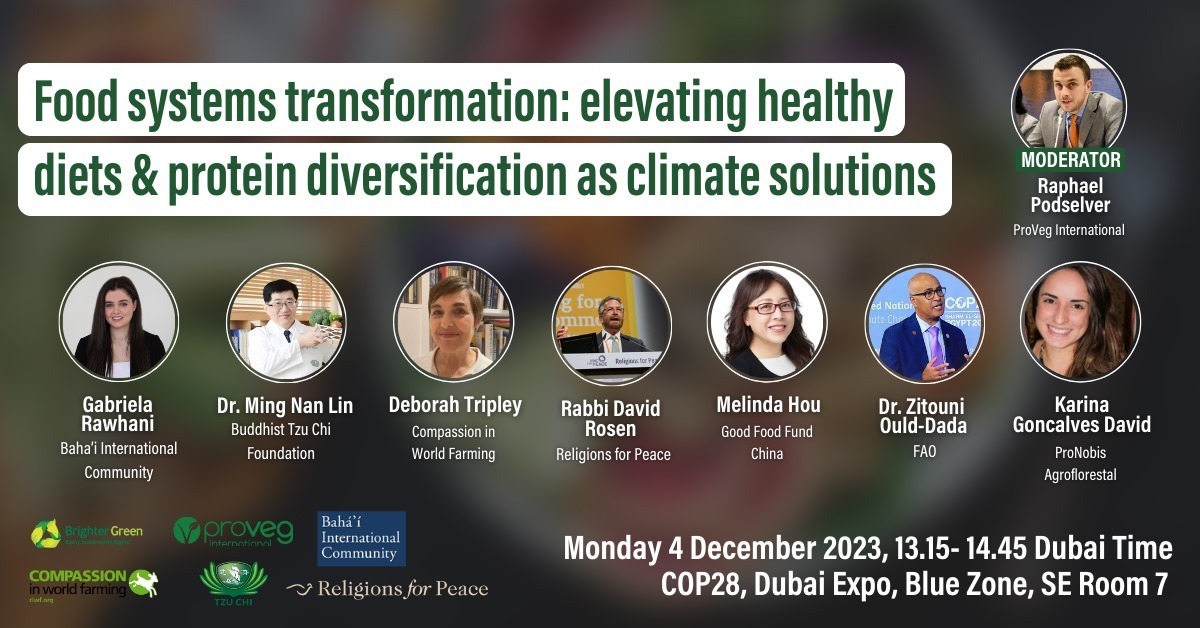
Exhibition in Blue Zone
All day – Booth 29, Blue Zone
The exhibit will showcase artistic visuals from communities and youth around the world, reflecting on the question: “What is the future you wish to live in?” The event is a wonderful means of showing the policymakers gathered at COP28 the beautiful possibilities that exist with ambitious climate action.
Organized by: Baha’i International Community and Buddhist Tzu Chi Foundation
Exhibition in Blue Zone
All day – Booth 29, Blue Zone
The exhibit will showcase artistic visuals from communities and youth around the world, reflecting on the question: “What is the future you wish to live in?” The event is a wonderful means of showing the policymakers gathered at COP28 the beautiful possibilities that exist with ambitious climate action.
Organized by: Baha’i International Community and Buddhist Tzu Chi Foundation
A Values-Based Approach to Food Systems
06:30 – 07:30 pm – GST – Food & Ag Pavilion
Moving humanity toward a more sustainable and harmonious relationship with the natural world will require a strong and actionable consensus, along with collective will, around key principles and values that shape the affairs of the international community. A level of agreement has been established around foundational principles such as stewardship, interdependence, and justice. But such ideals have yet to take hold as the accepted foundation for collective global action. During COP28, a group of organizations are coordinating a “Values Roadshow” that creates spaces across many different Pavilions and events to explore humanity’s shared values and clear principles to be collectively embraced to advance climate justice. This side event will reflect on the key values that drive food system transformation.
Organized by:Baha’i International Community, Bhumi Global, Buddhist Tzu Chi Foundation and Soka Gakkai International
Exhibition in Blue Zone
All day – Booth 29, Blue Zone
The exhibit will showcase artistic visuals from communities and youth around the world, reflecting on the question: “What is the future you wish to live in?” The event is a wonderful means of showing the policymakers gathered at COP28 the beautiful possibilities that exist with ambitious climate action.
Organized by: Baha’i International Community and Buddhist Tzu Chi Foundation
Nature-Based and Spiritual Technologies for Climate Resilient Food Systems
11:30 am – 01:00 pm GST – Digital X Green Pavilion
Much of the conversation about climate mitigation and adaptation revolves around technological solutions such as low-carbon electricity generation, carbon capture, gene editing of food crops, etc. However, no less important are solutions based on indigenous and ancient religious knowledge – what we can call nature-based and spiritual technologies. In this seminar, panelists discuss nature-based and nature-inspired solutions for climate resilience in food systems, as well as community empowerment through the promotion of a volunteering spirit, with examples including community gardens and farms that not only provide sustenance for volunteers but also for orphans and seniors. A crucial aspect of these technologies is their inter-generational nature, where community elders with passed-down knowledge work together with young volunteers, entrepreneurs, and activists to implement solutions on a community basis. Finally, the impact and applicability of nature-based and spiritual technologies on global sustainability efforts will be discussed.
Organized by: Buddhist Tzu Chi Foundation
Culture, Values, and Spiritual Perspectives: Mobilising Action Towards a Just Food System Transition
02:00 – 02:45 pm GST – Food4Climate Pavilion
How can values be put into action?
Faith-based and culturally rooted organizations play a pivotal role in catalyzing efforts toward an equitable shift in our food systems and climate action. The journey toward transforming our food systems into more just and sustainable ones necessitates the active involvement of all stakeholders. Yet, food systems are intricately woven into the fabric of culture, local traditions, ancestrality, and spirituality. To ensure a truly equitable transition, it is imperative that these diverse perspectives are incorporated, enhancing the discourse surrounding food systems transformation and equitable transitions. This inclusion also serves to shape and influence the formulation of policies that prioritize the well-being of individuals and communities.
Organized by: Young Professionals for Agricultural Development, Baha’i International Community, Buddhist Tzu Chi Foundation, Brot für Die Welt and World Vision
Interfaith Liason Committee, Buddhist Tzu Chi Foundation
09:30 – 10:00 am GST – Faith Pavilion
Bringing together policymakers, civil society representatives, and diverse faith traditions, this session at the Faith Pavilion will invite COP28 delegates to slow down and meditate, pray, and be in a space of mindfulness in reflection on the Climate Crisis, and the role we each play in creating the transformation we wish to see take place.
Organized by: Interfaith Liason Committee and Buddhist Tzu Chi Foundation
‘Ethical Development Pathways for Climate Resilient Food Systems
10:30 – 11:15 am GST – Faith Pavilion
Recognizing the need for a whole-of-society approach to address an equitable and just transition towards localized and climate-resilient food systems, and the critical role that behavior change plays in this process, the Buddhist Tzu Chi Foundation, the Faith and Food Coalition, and the SHE Foundation, bring together aspirational and inspirational game-changing solutions to provide insights and narratives based on ethical development pathways for the creation of climate-resilient food systems.
Organized by: Buddhist Tzu Chi Foundation, Faith and Food Coalition and SHE Foundation
A Visual Expression of Humanity’s Values
11:00 – 11:45 am GST – Faith Pavilion
Moving humanity to a more sustainable and harmonious relationship with the natural world will require a strong and actionable consensus, along with collective will, around key principles and values that will shape the affairs of the international community. A level of agreement has been established around foundational principles such as stewardship, interdependence, and justice. But such ideals have yet to take hold as the accepted foundation for collective global action.
During COP28, a group of organizations are coordinating a “Values Roadshow” that creates spaces across many different Pavilions and events to explore humanity’s shared values and the clear principles to be collectively embraced to advance climate justice. This side event will bring together faith traditions for an interfaith visual arts workshop.
Organized by: Baha’i International Community, Parliament of the Worlds Religions, Soka Gakkai International, Green Hope Foundation, GreenPeace MENA, Bhumi Global and Buddhist Tzu Chi Foundation
Activities
See our photos from COP28.
On day 10 of our presence at COP28, we focused on food. Seeing advocacy encouraging plant-based eating on our way, the Tzu Chi delegation attended several panels at the Food4Climate Pavilion, a space at the conference dedicated to parallel events focusing on food’s role in the climate crisis.
One particular side event was “From South to North: Exploring Sustainable Food Systems Policy Innovations,” co-hosted by Mercy For Animals, Humane Society International, and Food for Justice. It emphasized that the approach to food systems transformation needed to take current local/regional systems into account, and that solutions could not be one-size-fits-all.
To reconnect ourselves with our purpose here at COP28, we rolled up our sleeves and got to work—literally.
Alongside the Green Hope Foundation, we ventured out into the UAE’s wetlands. Together with our team and other volunteers, we planted young mangrove trees, which are adaptive to loose, wet soil and salt-water.
We are grateful for everyone’s team spirit and working together to #greenify our planet.
Ethical food choices aren’t just to help protect sentient beings; it also makes sense as a natural solution to the climate crisis.
Here at COP28, in addition to advocating for the widespread adoption of vegetarian and plant-based diets, we are also touched to see conference organizers take these goals to heart by providing conference go-ers with 1.5°C-aligned menus across more than 90 culinary providers. This also means more plant-based options – and we are glad to see #vegan and vegetarian foods that showcase how delicious, tasty, and filling they can be.
Furthermore, on Dec. 1, the COP28 Presidency announced that 134 world leaders have signed up to its landmark agriculture, food and climate action declaration. The Declaration is intended to strengthen food systems, build resilience to climate change, reduce global emissions, and contribute to the global fight against hunger, all in alignment with the UN’s SDGs.
The importance of the inclusion of faith-based groups cannot be underscored when it comes to urban planning & development.
On day 6 at COP28, Tzu Chi’s representative to the UN, Steve Chiu was invited to partake in a workshop organized by UN-Habitat and sponsored by the Templeton Religion Trust to lay the foundation for such plans.
The workshop focused on an initiative called “Faith for Cities,” in which urban planning, sustainability, and the power of faith-based communities intersect. Around the world, faith leaders, houses of worship, and other faith-based organizations are at the forefront of both crises and change. At the meeting, Christopher Elisara, the Executive Director of the World Evangelical Alliance, explained:
“Faiths have a contribution to make to cities because we’re landowners. We’re one of the largest landowners in cities… We can manage them better. We can make them serve the community better… And then as stakeholders in the community, we can ask for better policies, transportation policies, better housing policies, sanitation, and so on and so forth.”
Through this initiative, UN-Habitat seeks to leverage the power of faith-based communities to implement and promote the United Nations SDGs, or Sustainable Development Goals, in cities around the world. With estimates that suggest 68% of the world’s population will live in cities by 2030, the support of faith-based groups in urban development will be crucial.
At the same time, an interactive art exhibition was setup for conference-goers at Tzu Chi’s booth, where they could see art created by children including those who’ve been displaced and students of Tzu Chi’s Academies, as well as express their vision for the future via sticky notes.
At day 5 of COP28, we partook in another side event hosted by the Green Hope Foundation called “Greening Education Through Clean Energy Innovation to Implement Climate Justice.”
It focused on the ways in which the lack of energy solutions and the climate crisis together impact education and access to it globally. Panelist Jacqueline Kimeu, Energy and Climate Change Coordinator at World Wildlife Fund Kenya, explained its trickle down effect:
“If there is no lighting in school, of course, children will not stay at school… If there’s no electricity… these young girls go home, they are drawn into other household chores, like cooking, fetching water. They do not have access to lighting to read, so that really exacerbates the issue.”
While concrete solutions are important, however, fellow panelist & Da Ai TV climatologist Dr. Chi Ming Peng explained that awareness and recognition of these problems and more lies at the center of real change: “such a kind of transformation needs [to be] from our hearts, so everybody agrees we should change our mind to accept a new technology.”
At the Faith Pavilion at COP28, today we attended a parallel event called “Interfaith Feminist Climate Justice for the Human Right to a Healthy Environment” organized by the Green Hope Foundation.
It addressed the many ways in which women and girls are disproportionately impacted by the #ClimateCrisis and highlighted positive actions taking place in vulnerable communities around the world.
For speaker Reverend Dallas Conyers, Southeast Climate & Energy Network, the participation and inclusion of women in decision-making processes going forward is essential:
“Because we [women] are at the frontlines of care… we know first and foremost what is needed, what we are losing ground on, and also what are the immediate steps and solutions to really get past these terrible times we’re in.”
Mei-Feng Lin, from Tzu Chi Germany, also offered remarks that expressed Dharma Master Cheng Yen’s environmental protection philosophy, explaining that small behavioral changes, in the long-term, could make a big impact:
“We all know that it is important for everyone now to take action… to change the world and to save the planet.”
Today at COP28, we tackled food systems head on.
At the Food4Climate Pavilion, the Tzu Chi delegation attended “A Health Imperative/Call to Action for the Health Ministerial, feat. Leading Cities: We Need Healthy Plant-Rich Diets,” co-organized by the World Health Organization (WHO) and ProVeg International. There, the intersection of food and climate was clear: transforming food systems means taking climate action.
According to research, food systems are responsible for 35% of the total greenhouse gas emissions. The food we eat, how it is produced and its journey from farm to plate determine how food systems affect human and planetary health.
At this panel, speakers discussed both youth and indigenous perspectives, the role of the private sector, policies that have been enacted in Ghana and how they are playing out, as well as how environments can better be enabled to encourage behavioral changes.
Of the importance of food-related conversations taking place at COP28, moderator Lina Mahy said “we’d like [to] highlight the importance of a dietary shift… and that everyone can have access to a healthy and sustainable diet. That narrative, for the moment, is not yet heard here at the COP, so we really want to link climate change and nutrition action together.”
It’s day two of the UNFCCC’s COP28 and the exhibition halls are officially open!
The Tzu Chi delegation, representing the Buddhist faith tradition, attended the opening ceremony of the climate conference’s first-ever Faith Pavilion. Among the speakers included the revered spiritual teacher Sadghuru (founder of the Isha Foundation) from India.
Later, Tzu Chi participated in the “Interfaith Roundtable Dialogue” attended by representatives of over 40 different faith traditions, including Catholicism, Brahma Kumari, Hinduism, Judaism, and many more. Steve Chiu, Tzu Chi’s Representative to the United Nations, spoke on behalf of Tzu Chi, sharing our initiatives in environmental protection, including recycling, DA.AI Technology, and our green philosophy to reduce our reliance on plastic.
Greetings from COP28, where Tzu Chi’s delegation of representatives have arrived in Dubai, the United Arab Emirates, to advocate for ambitious climate action and showcase innovative solutions around creating sustainable food systems and community based climate resilience, all while reflecting on what values lie at the heart of our global commitment to climate action.
Upholding the Fijian tradition of Talanoa Dialogue, first started in COP23, in 2017, Tzu Chi, along with partners and colleagues from the Interfaith Liaison Committee hosted a Talanoa Dialogue and Interfaith Gathering at the Christ Church Jebel Ali, reflecting on the relationship we all share with food, and on how food systems need to be transformed in order to create the world we want.
Digital Exhibition
Every year, the international community gathers at the United Nations Framework Convention on Climate Change’s Conference of the Parties (COP) to discuss climate action and negotiate countries’ commitments to addressing the climate crisis. In doing so, world leaders, government officials, and members of civil society come together to work to create a better future for all.
The Buddhist Tzu Chi Foundation and the Baha’i International Community are organizing an exhibition of digital art at COP28 from December 4 – 6, responding to the question: “what is the future you wish to live in?” in an effort to showcase visions of what ambitious climate action to protect our planet can materialize into, and share the aspirations of many for a more sustainable future.

